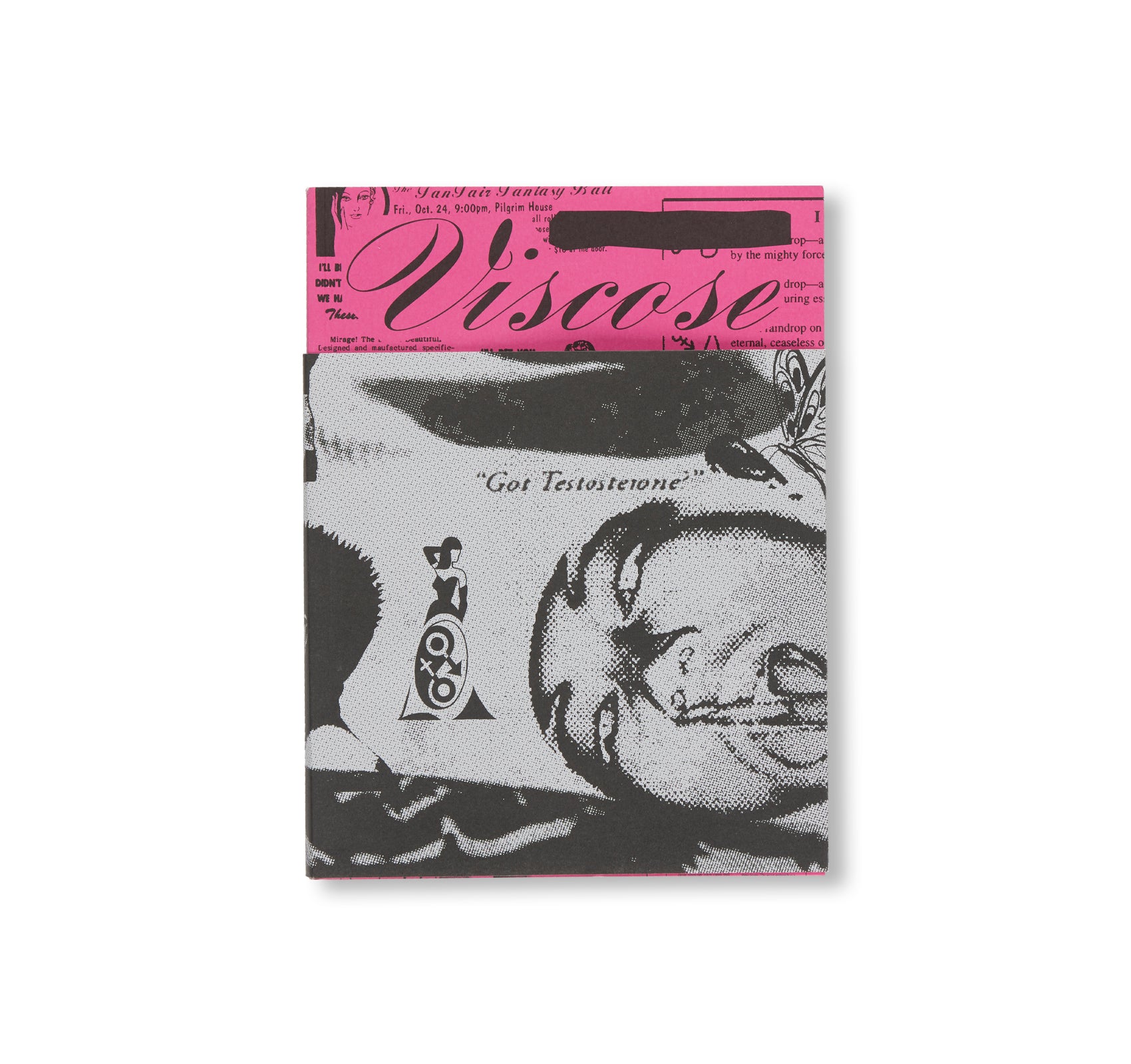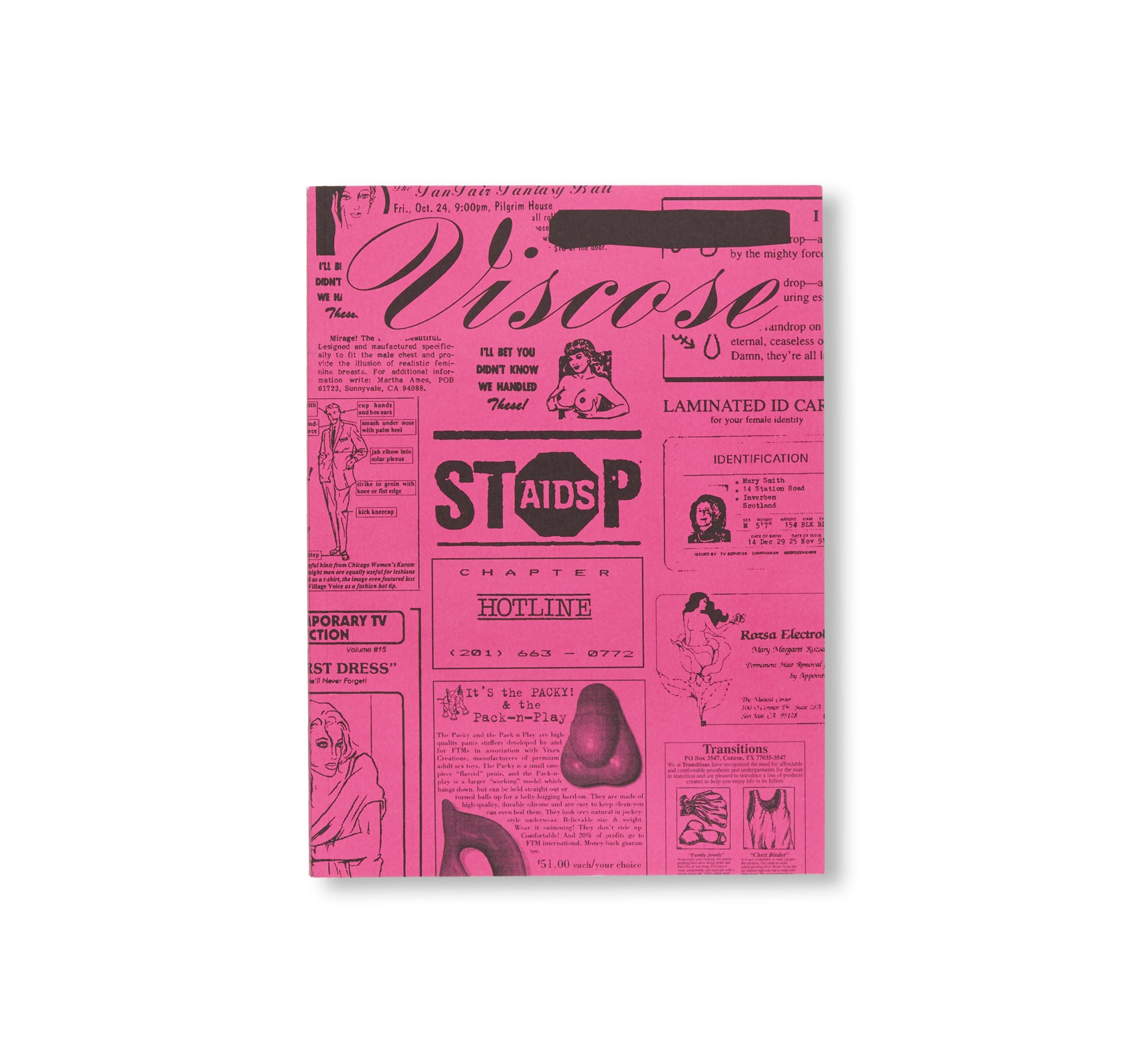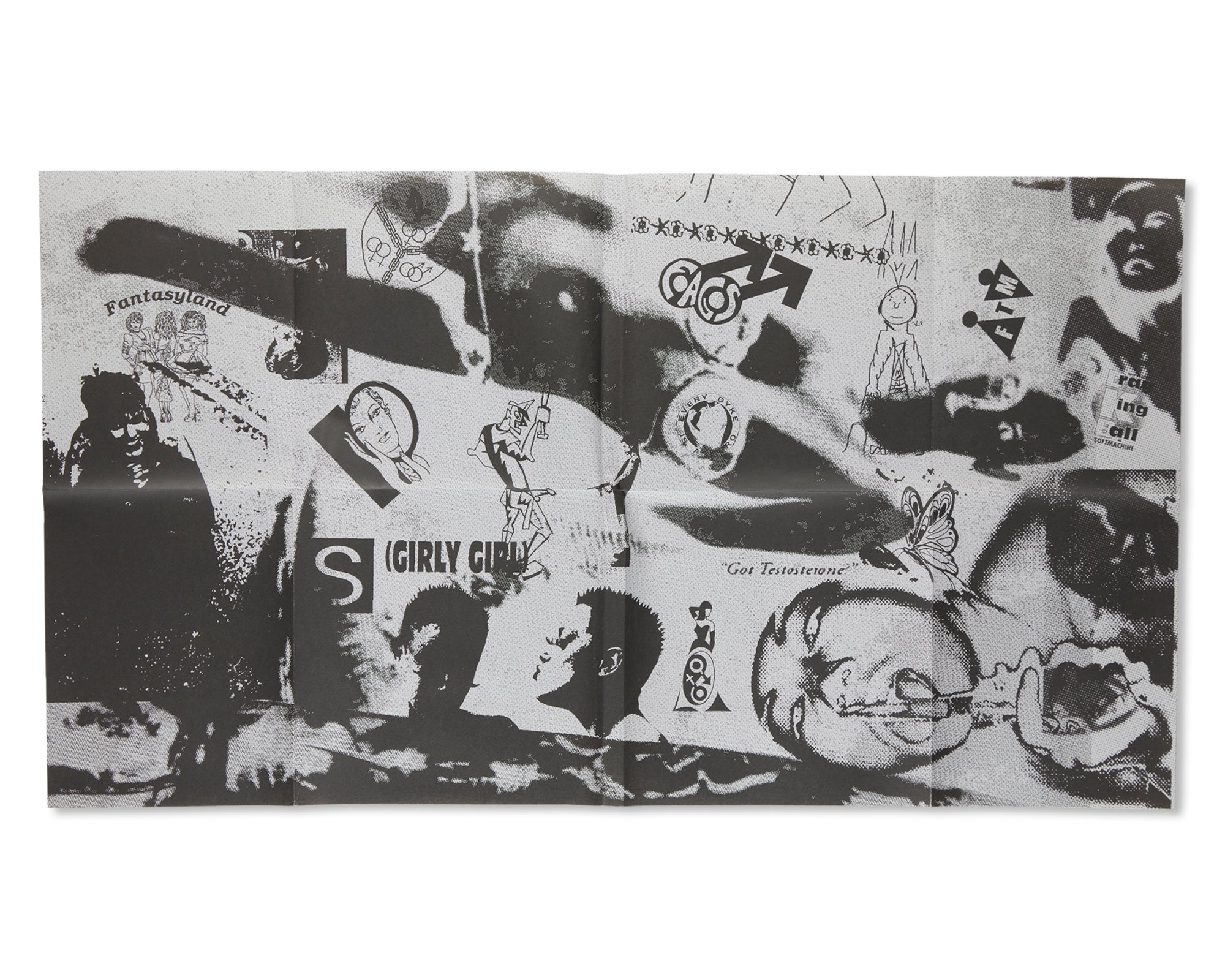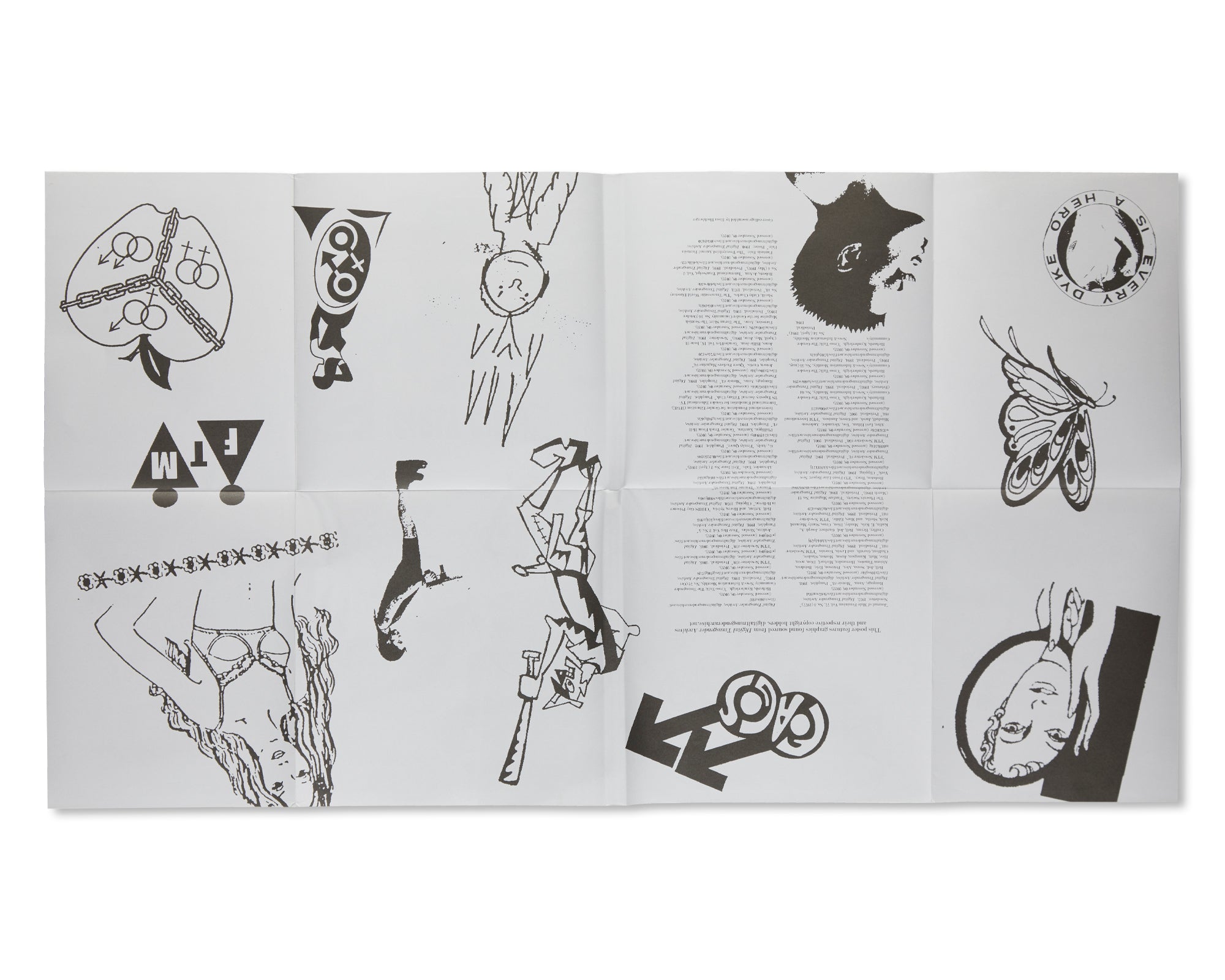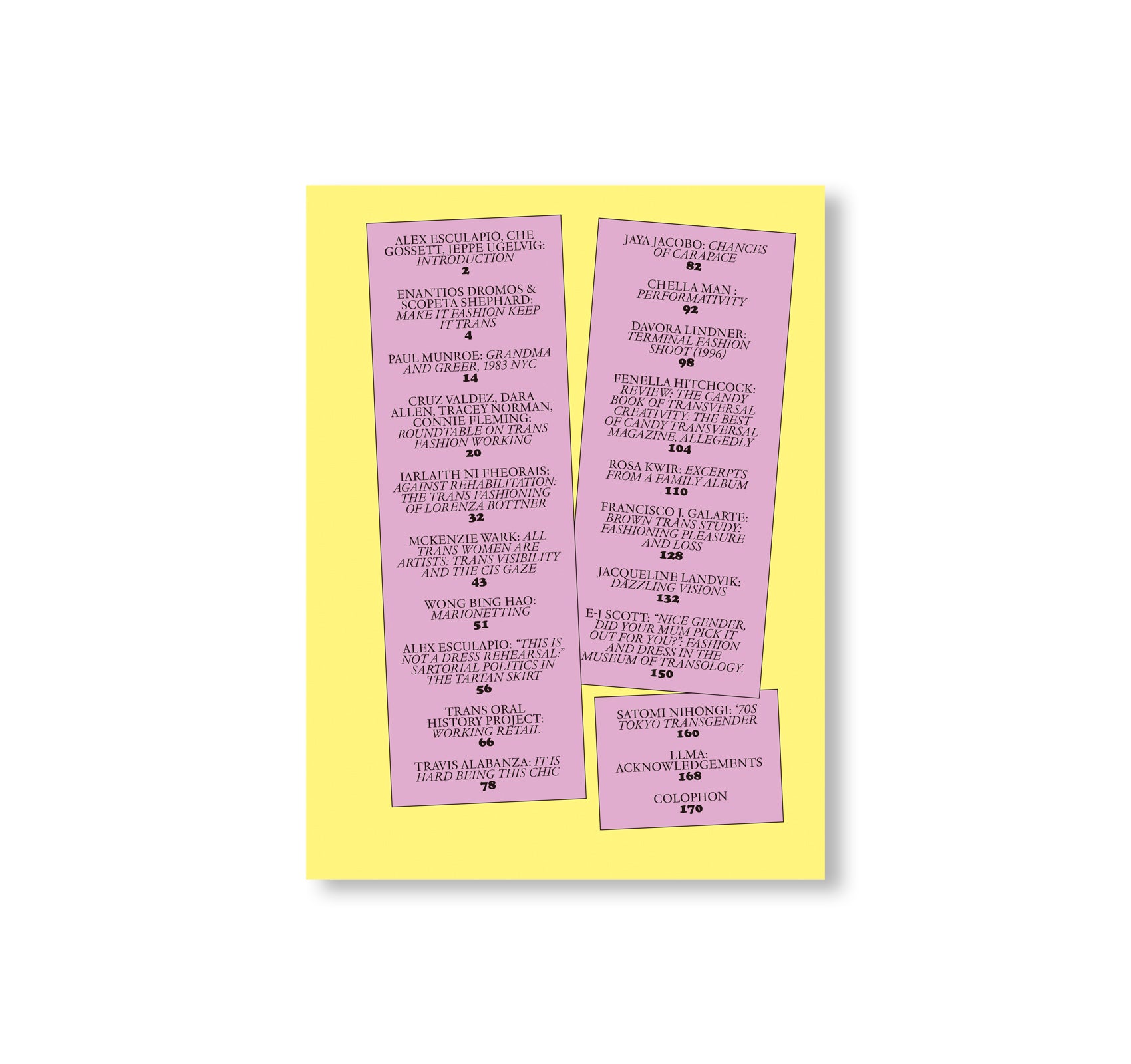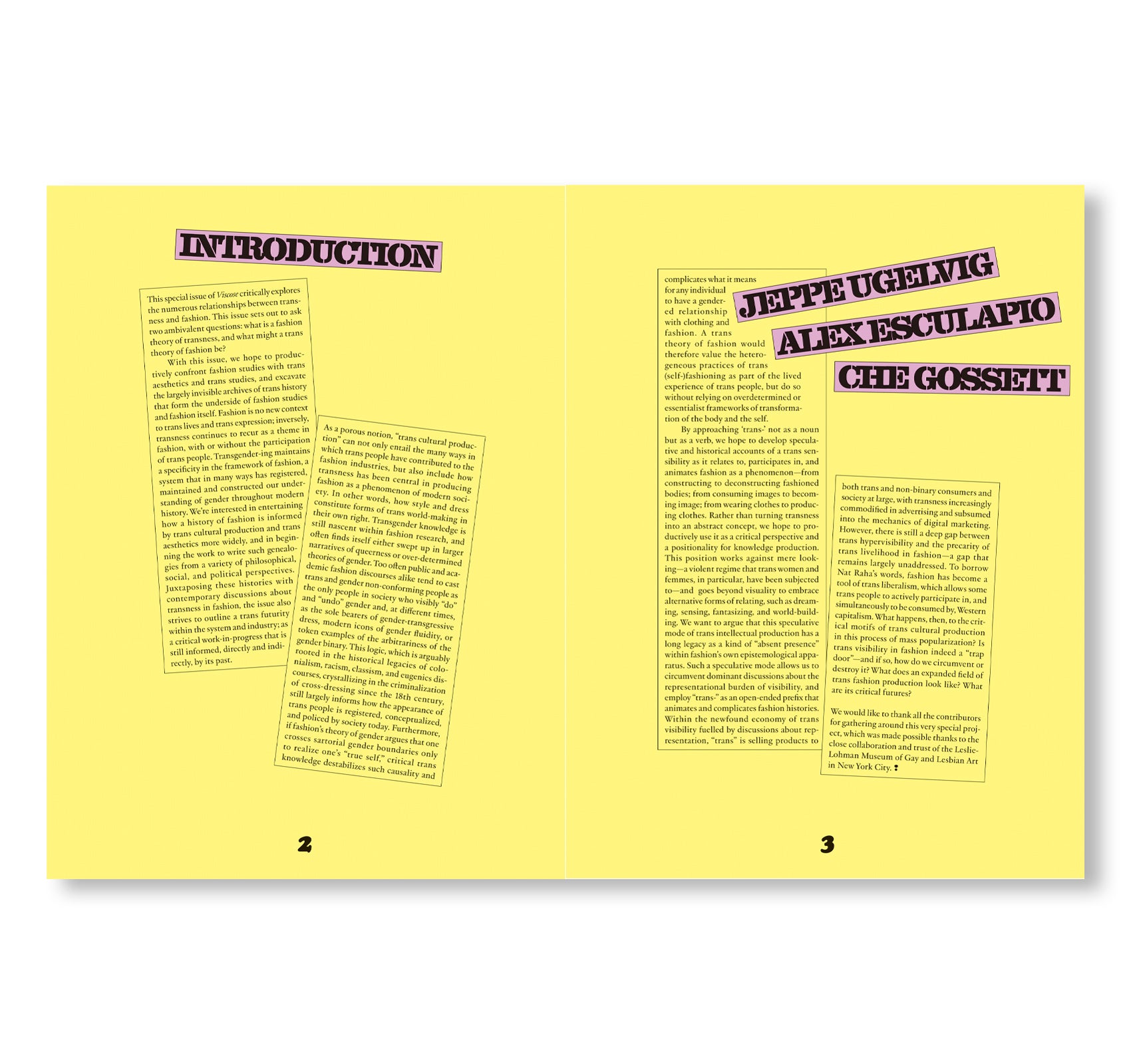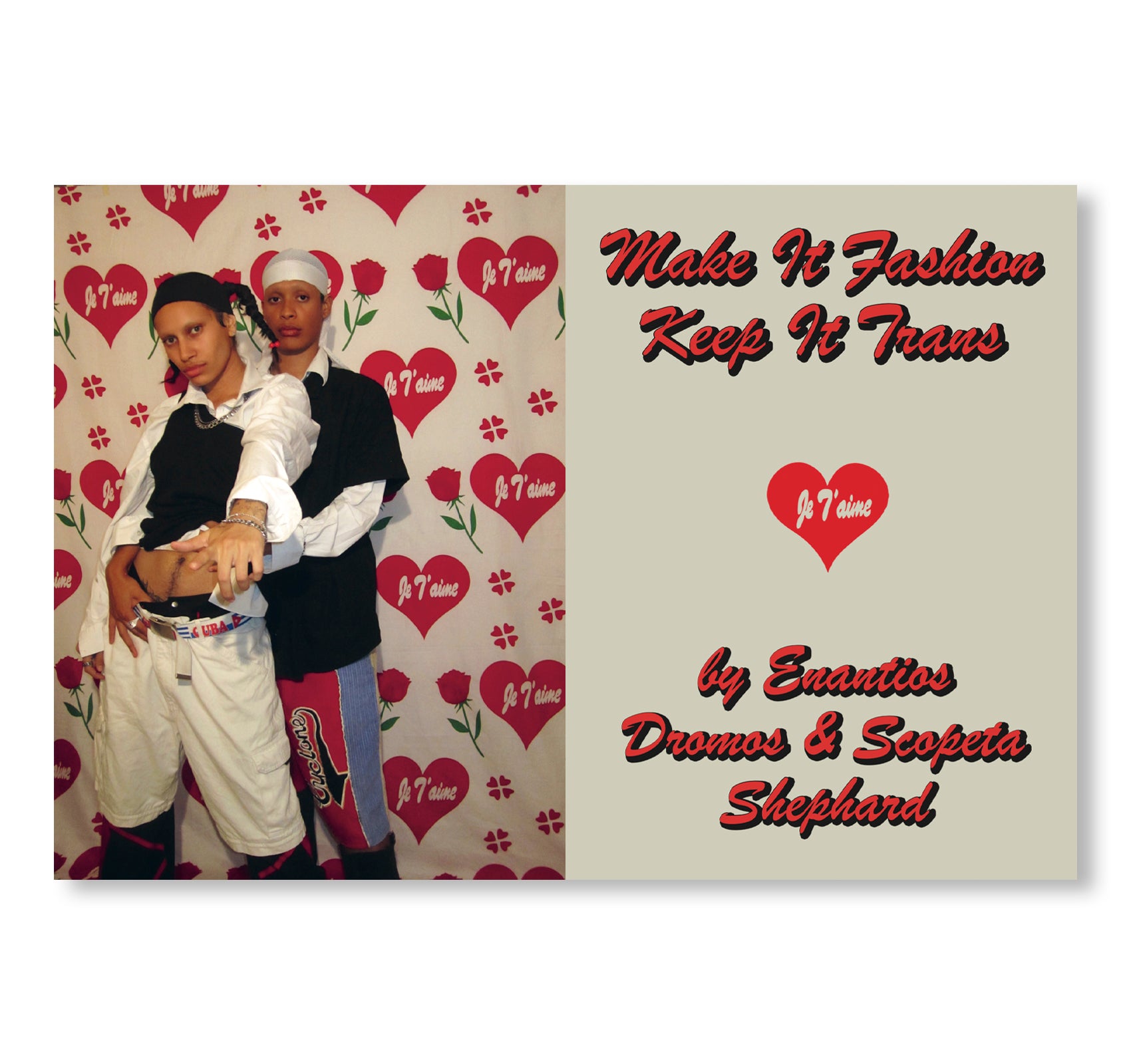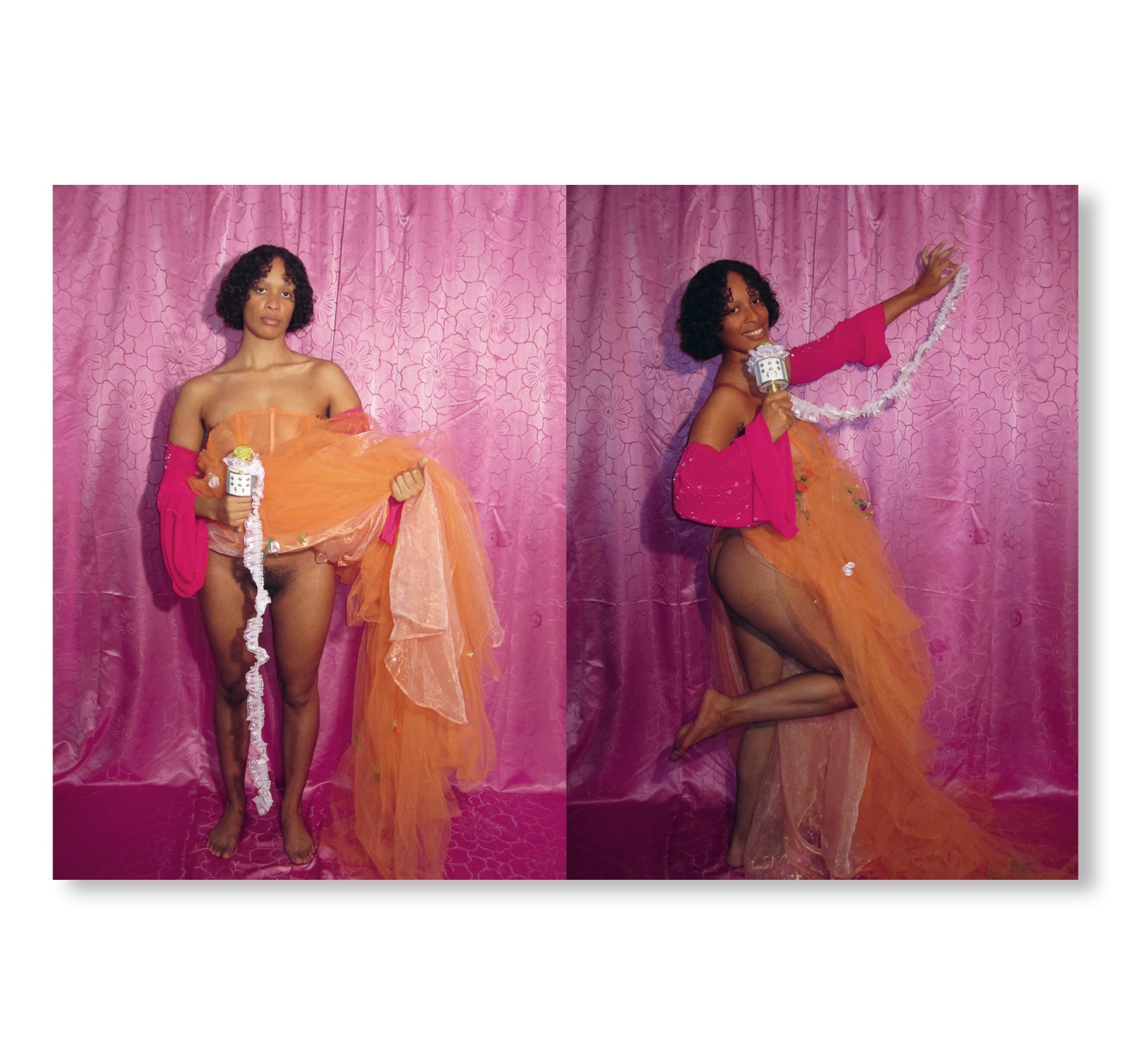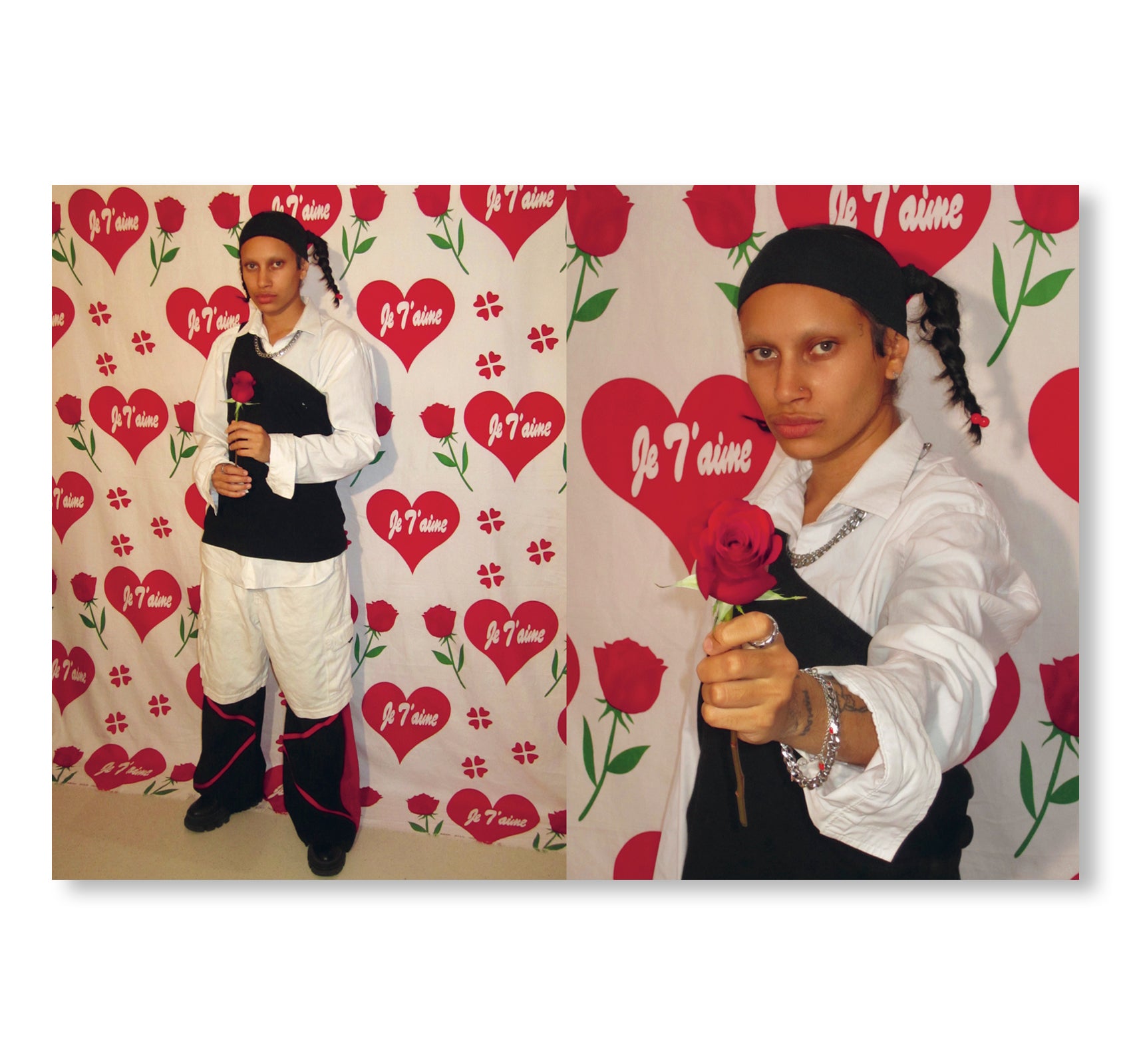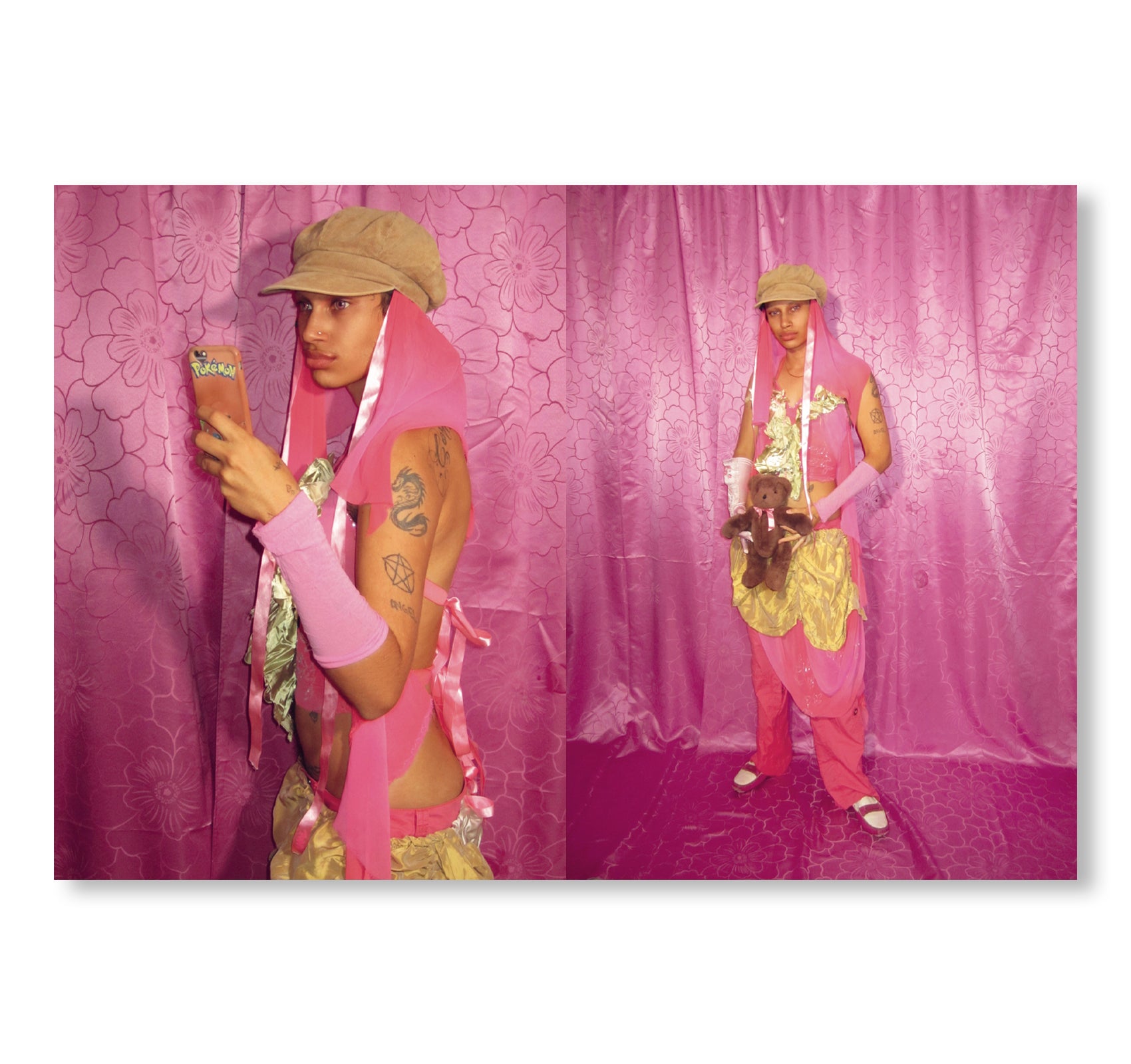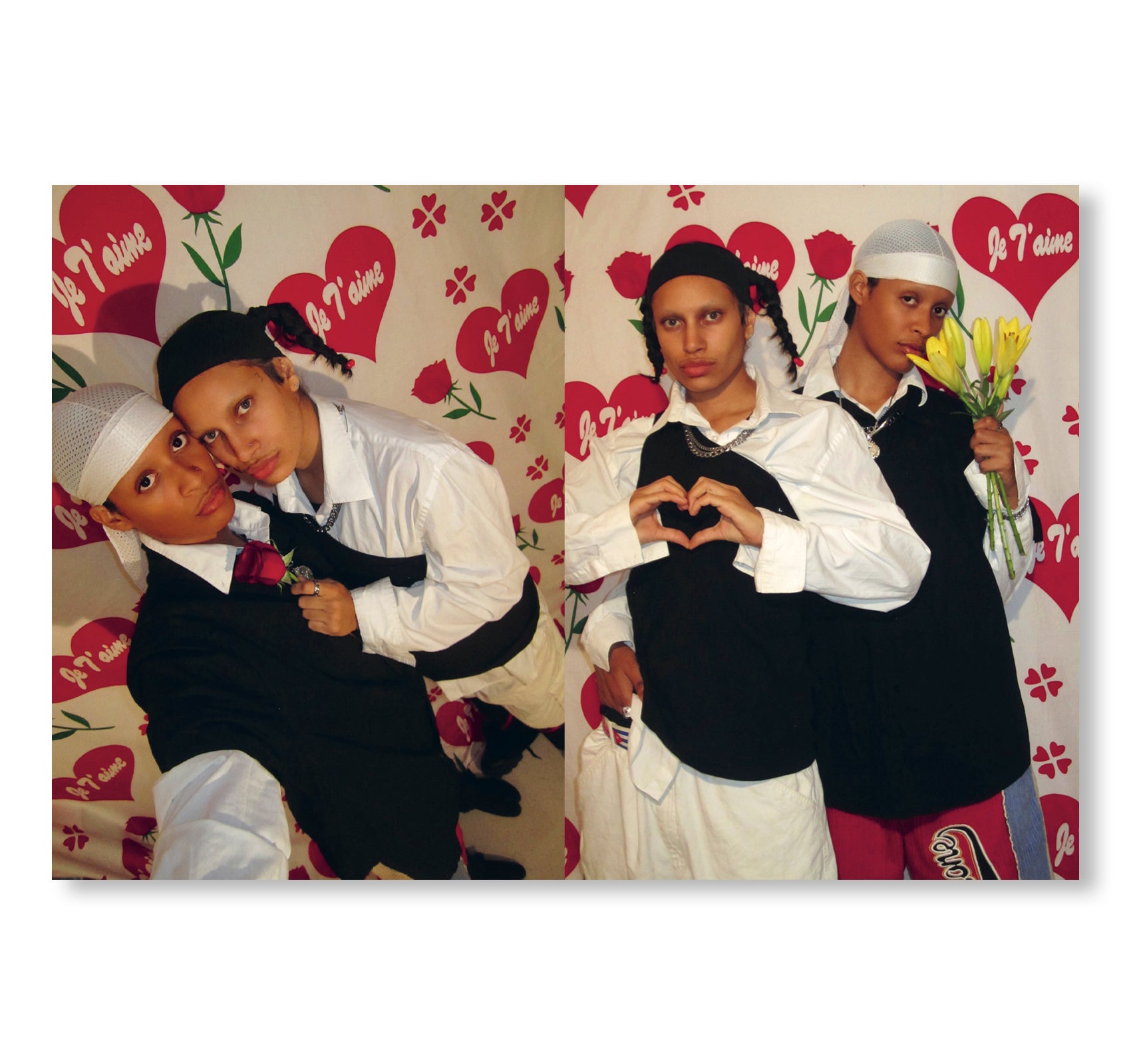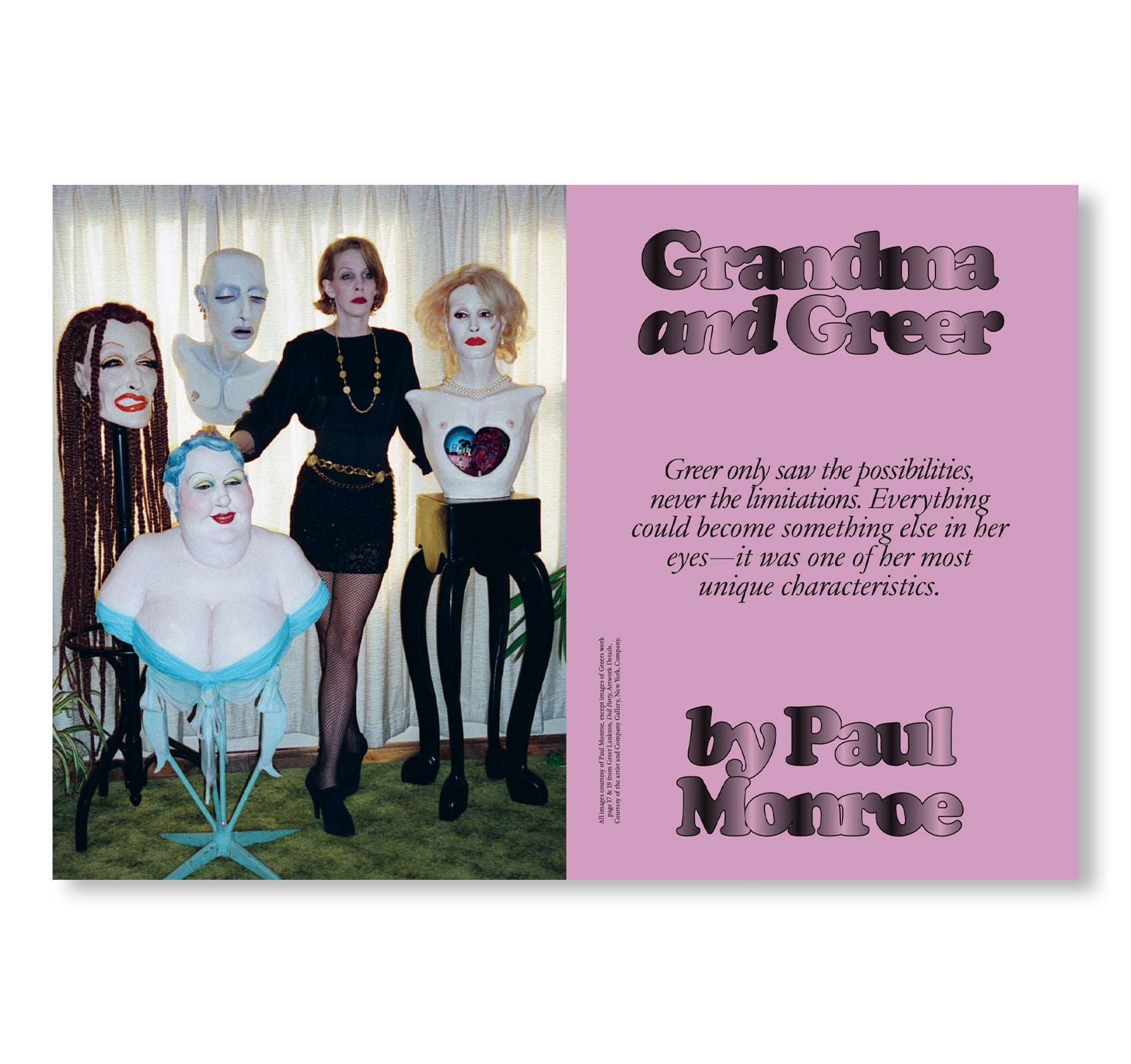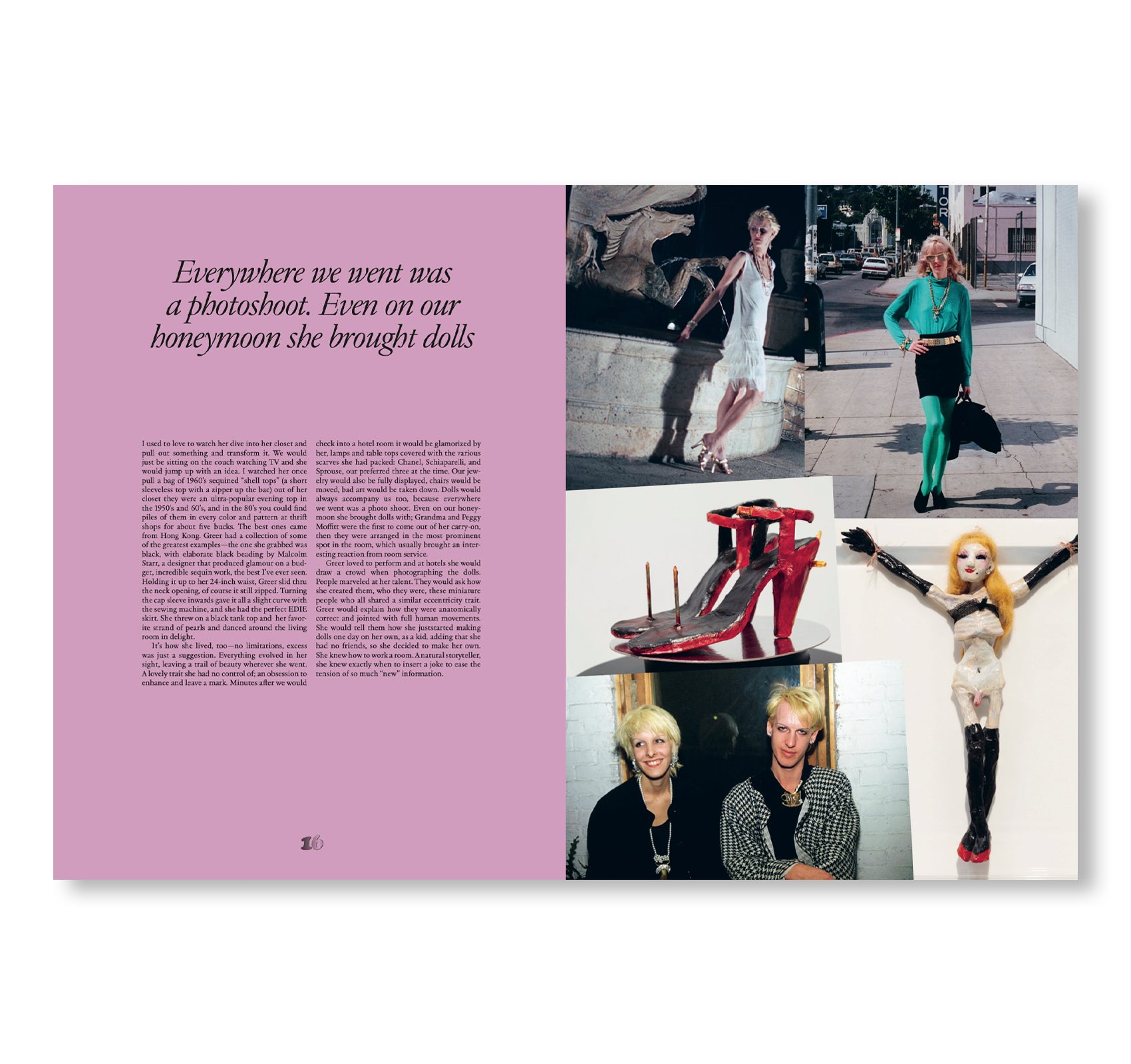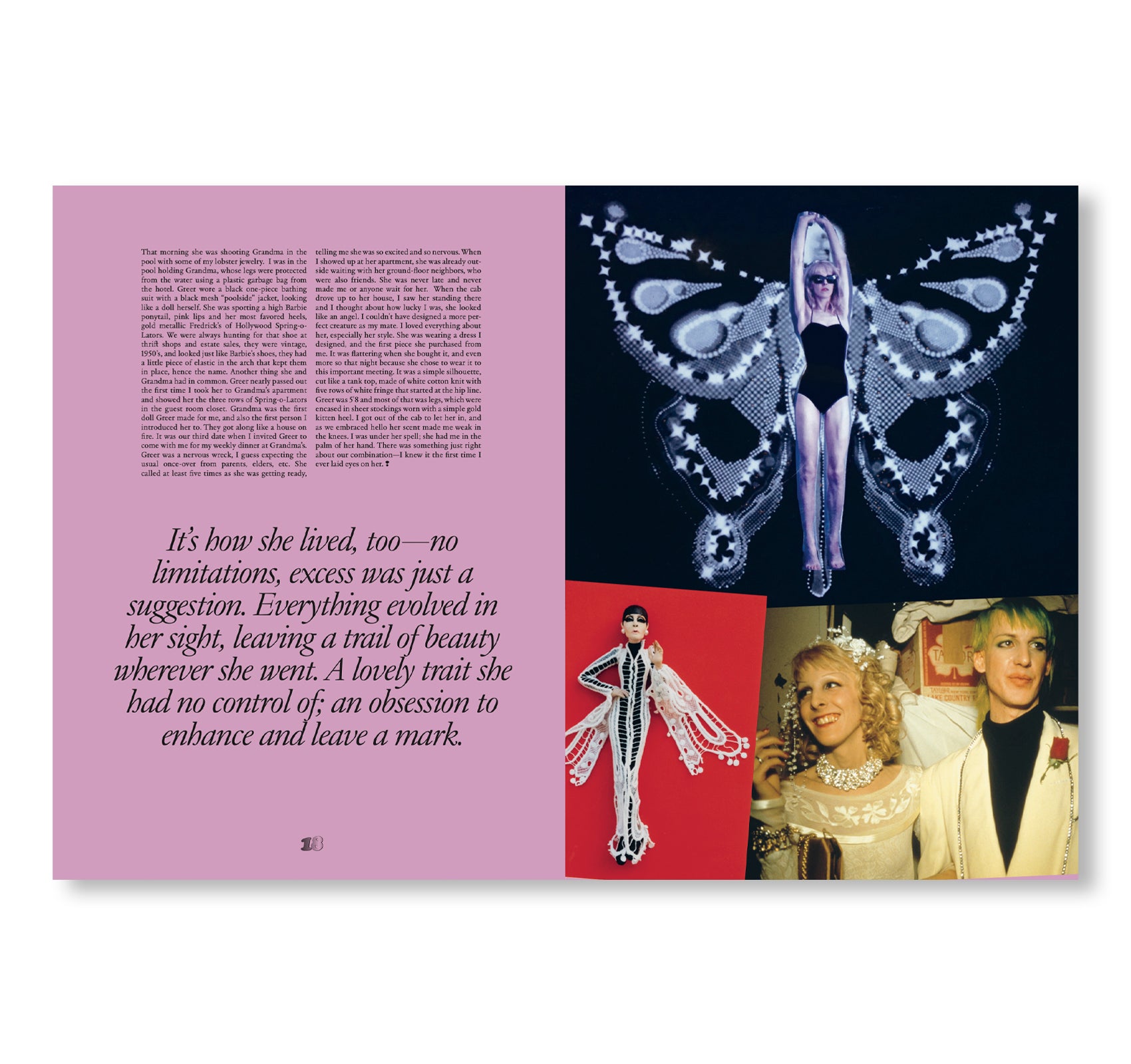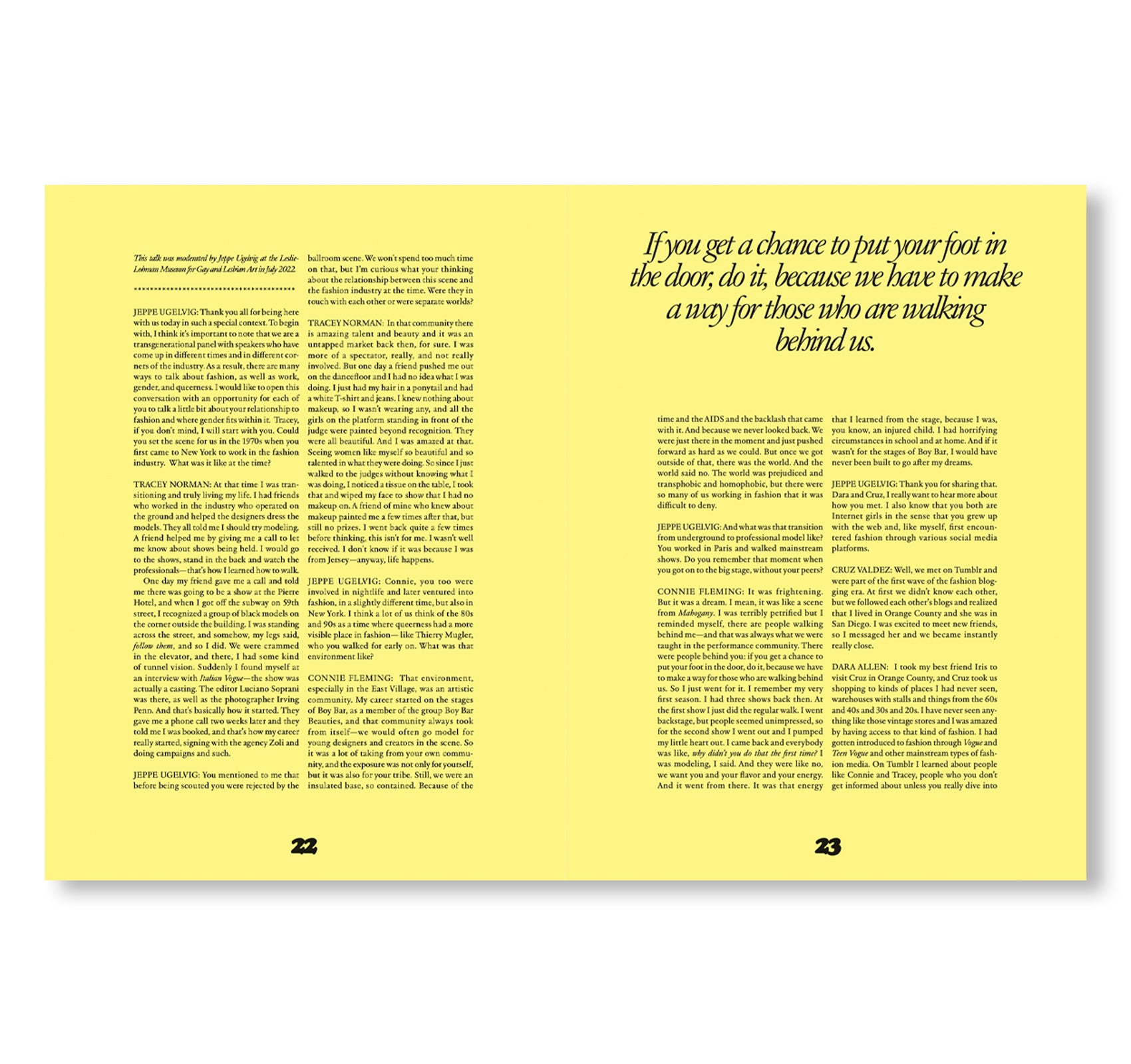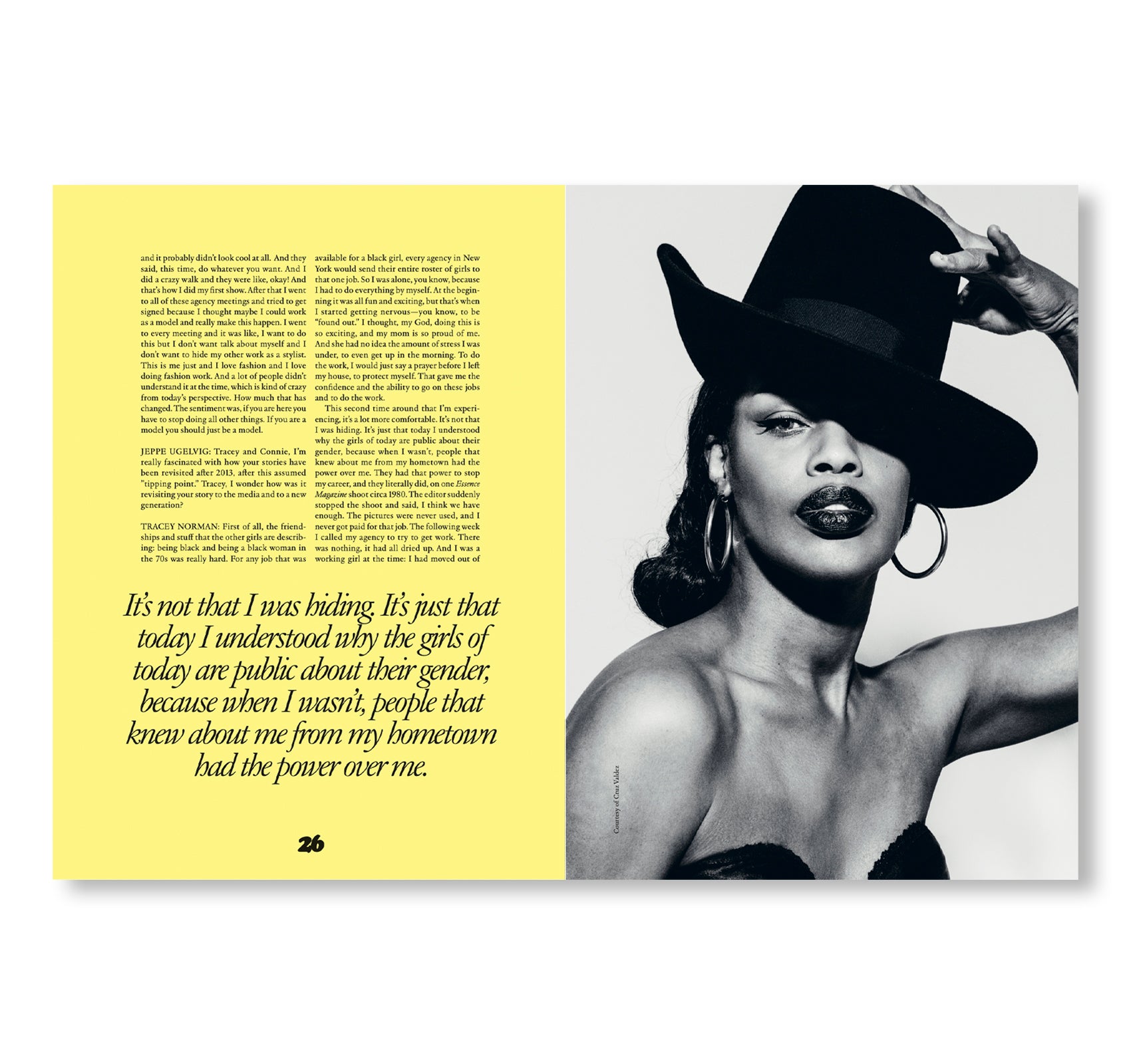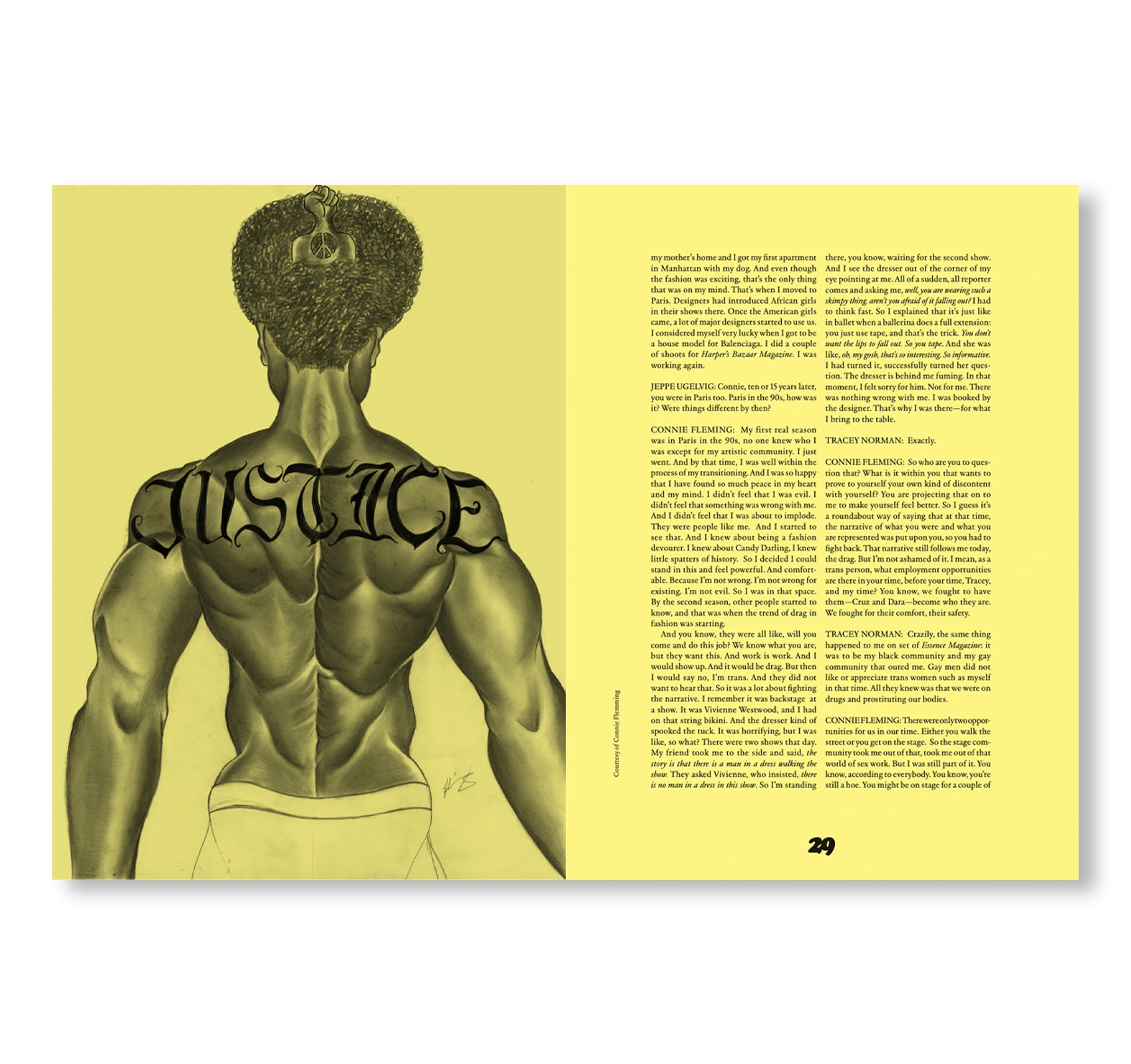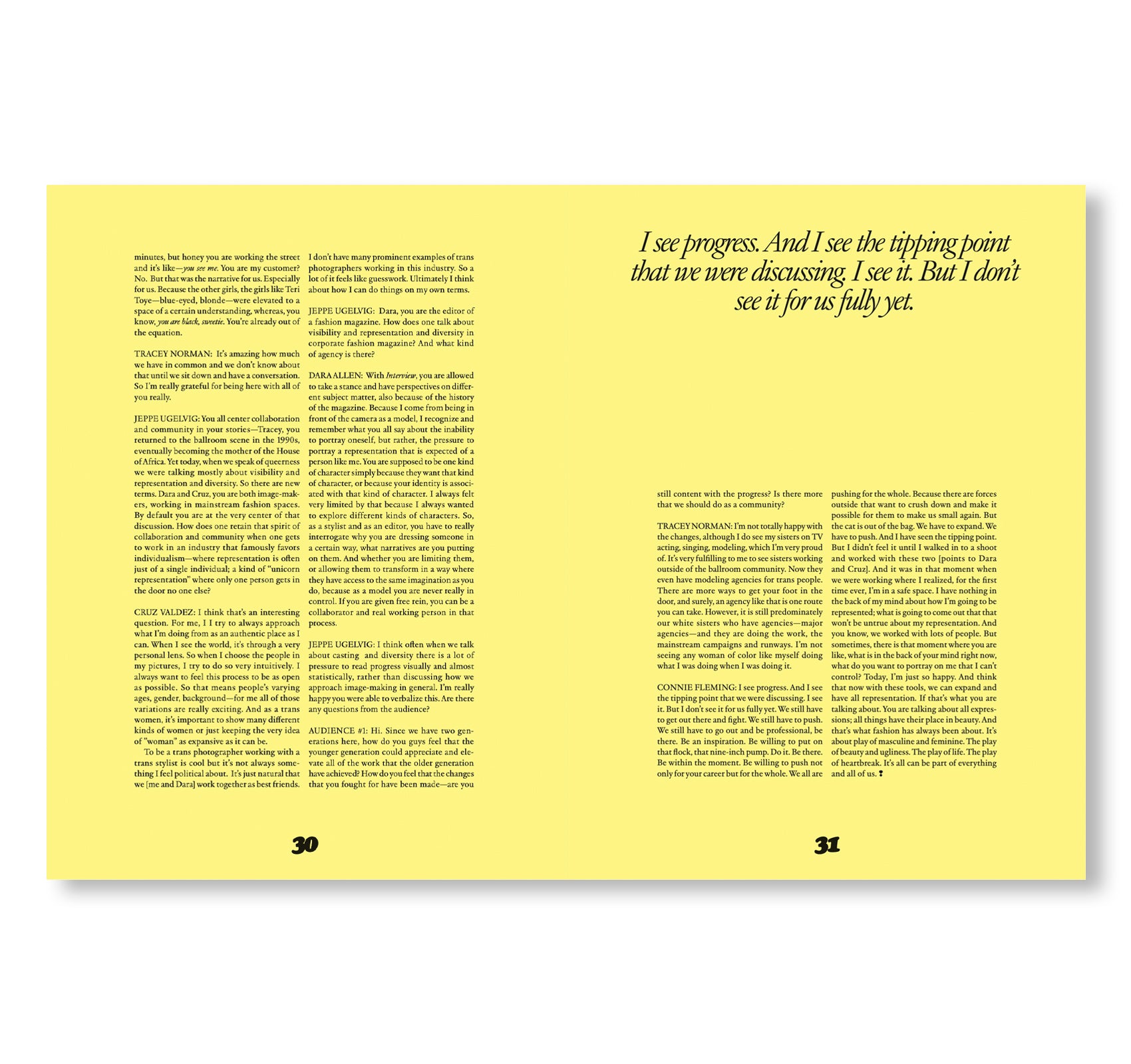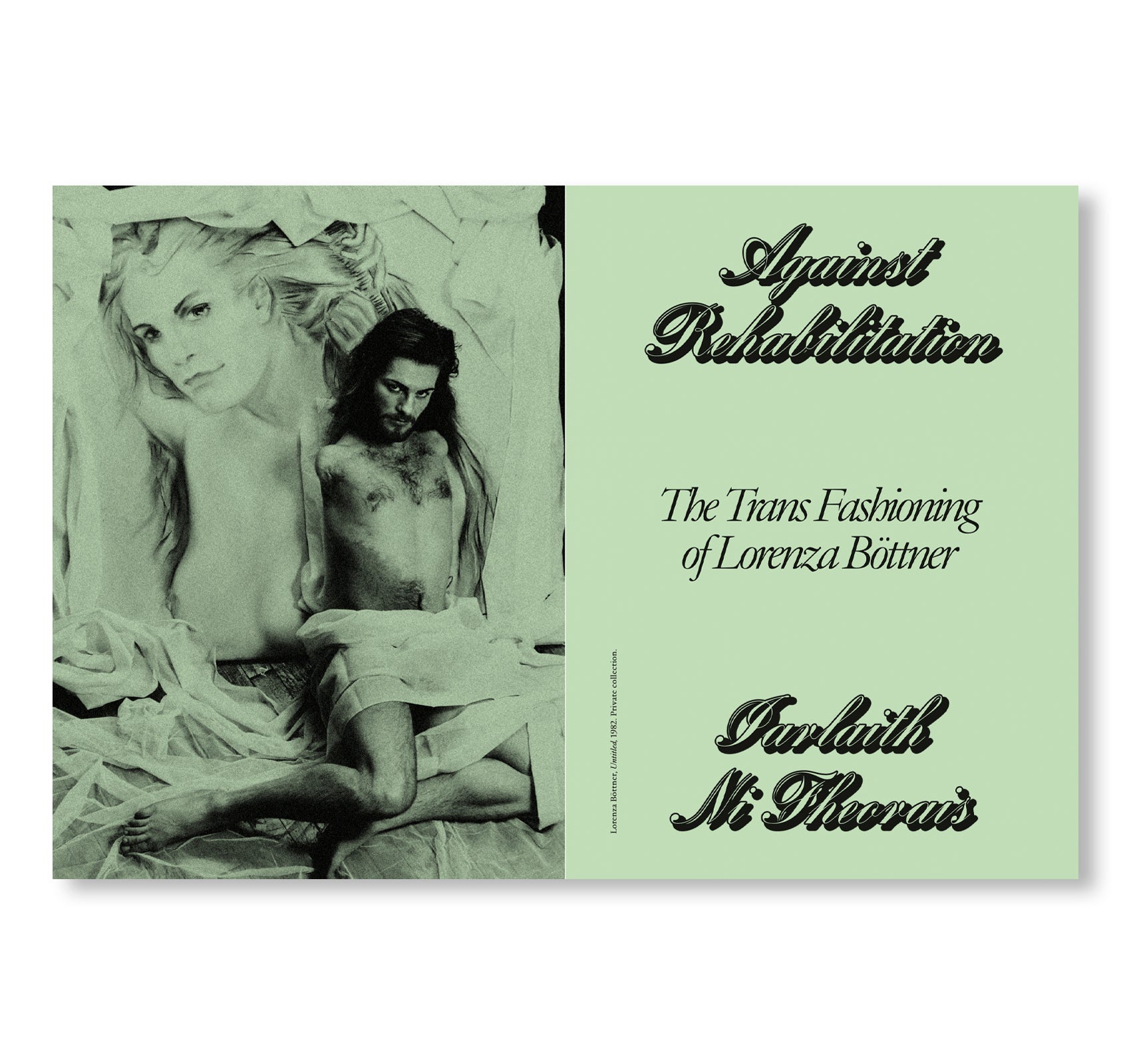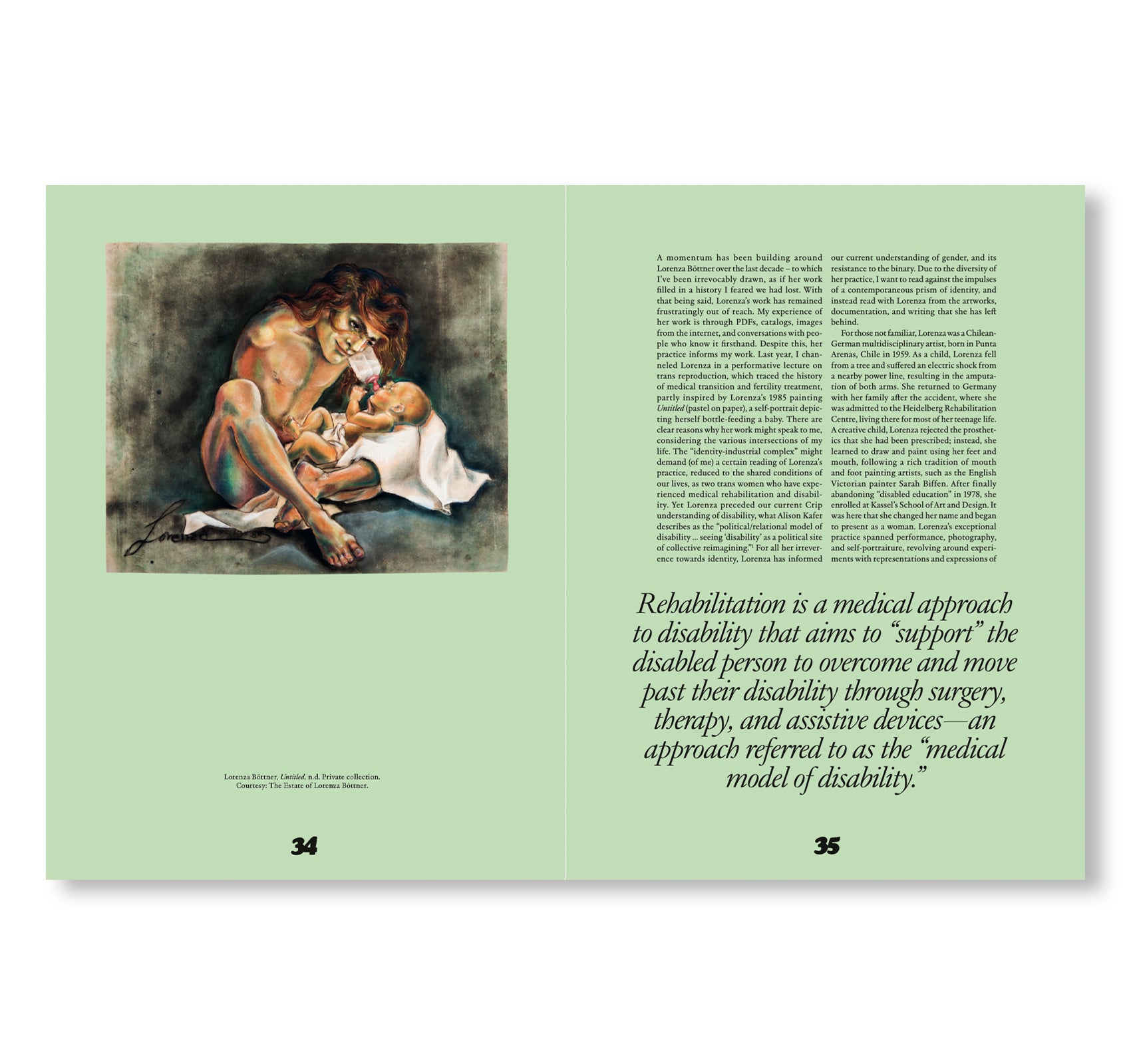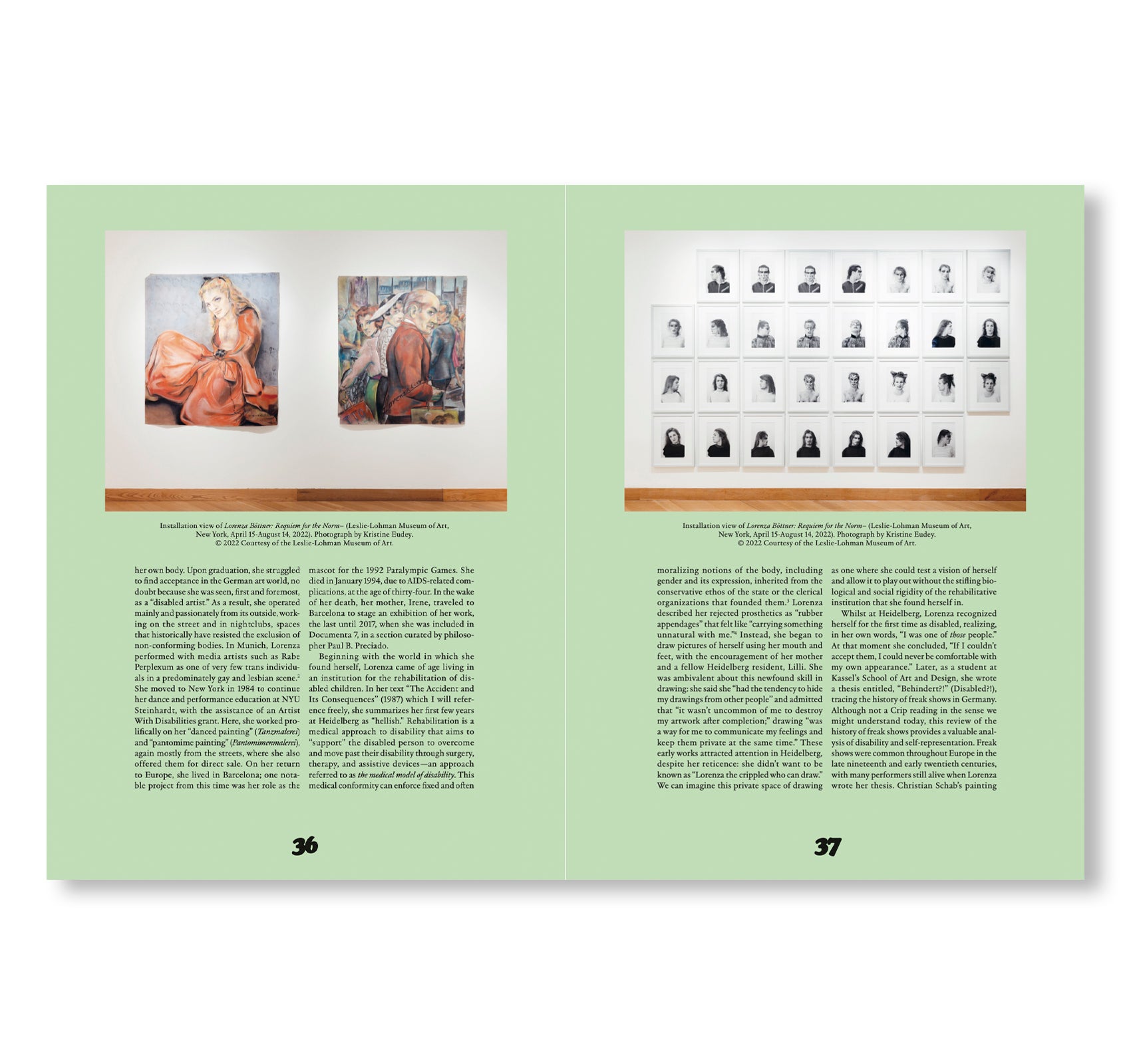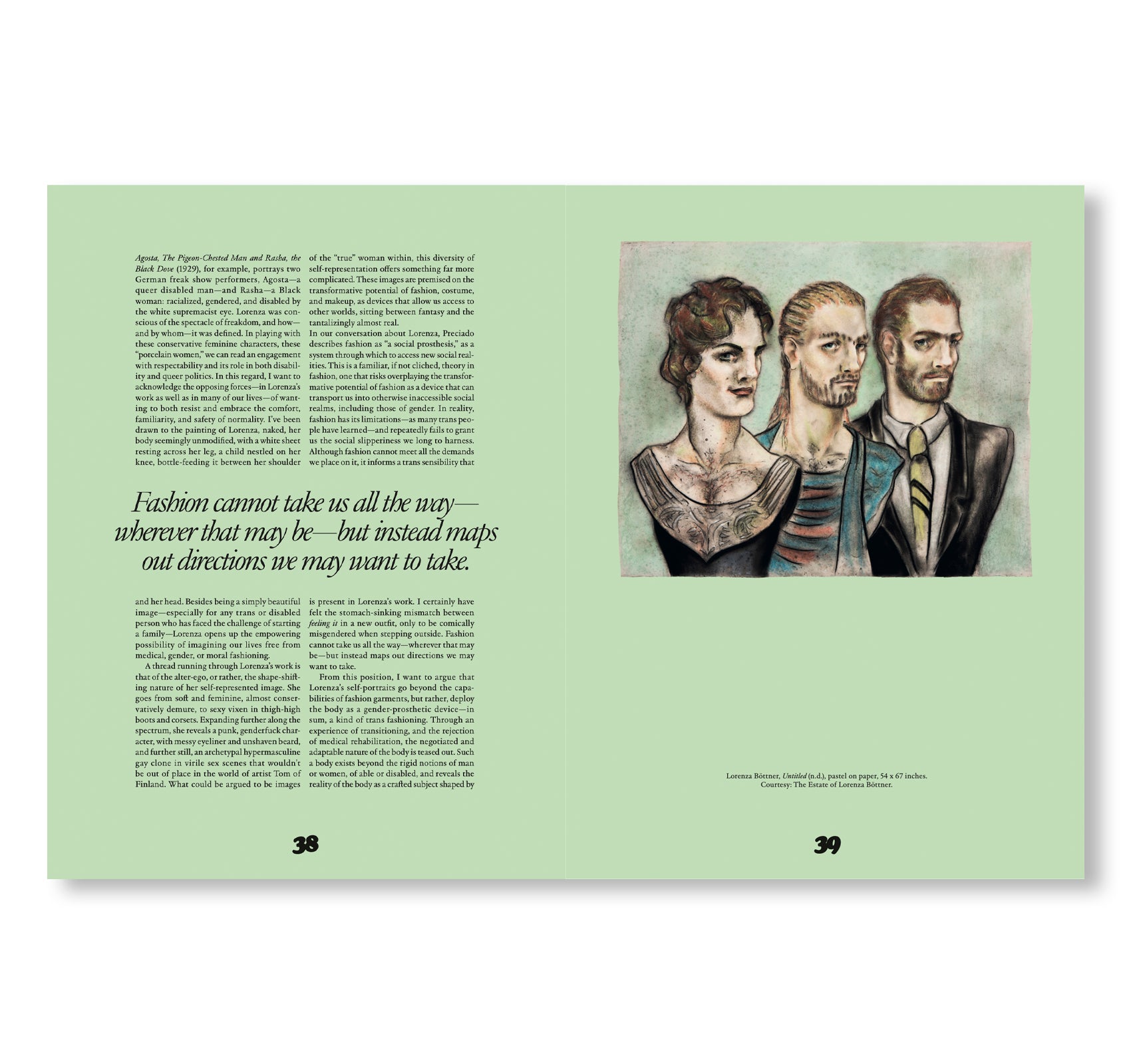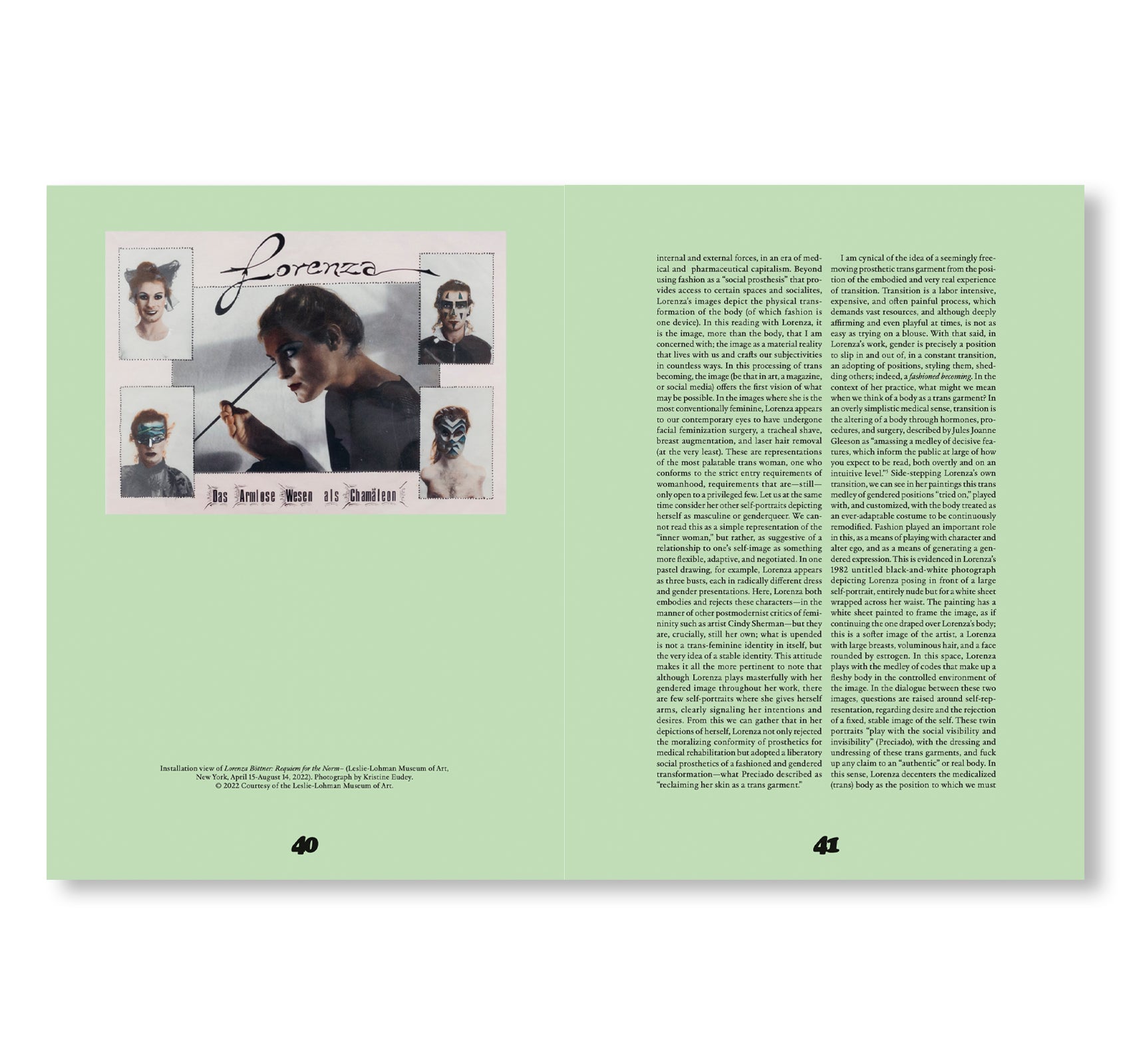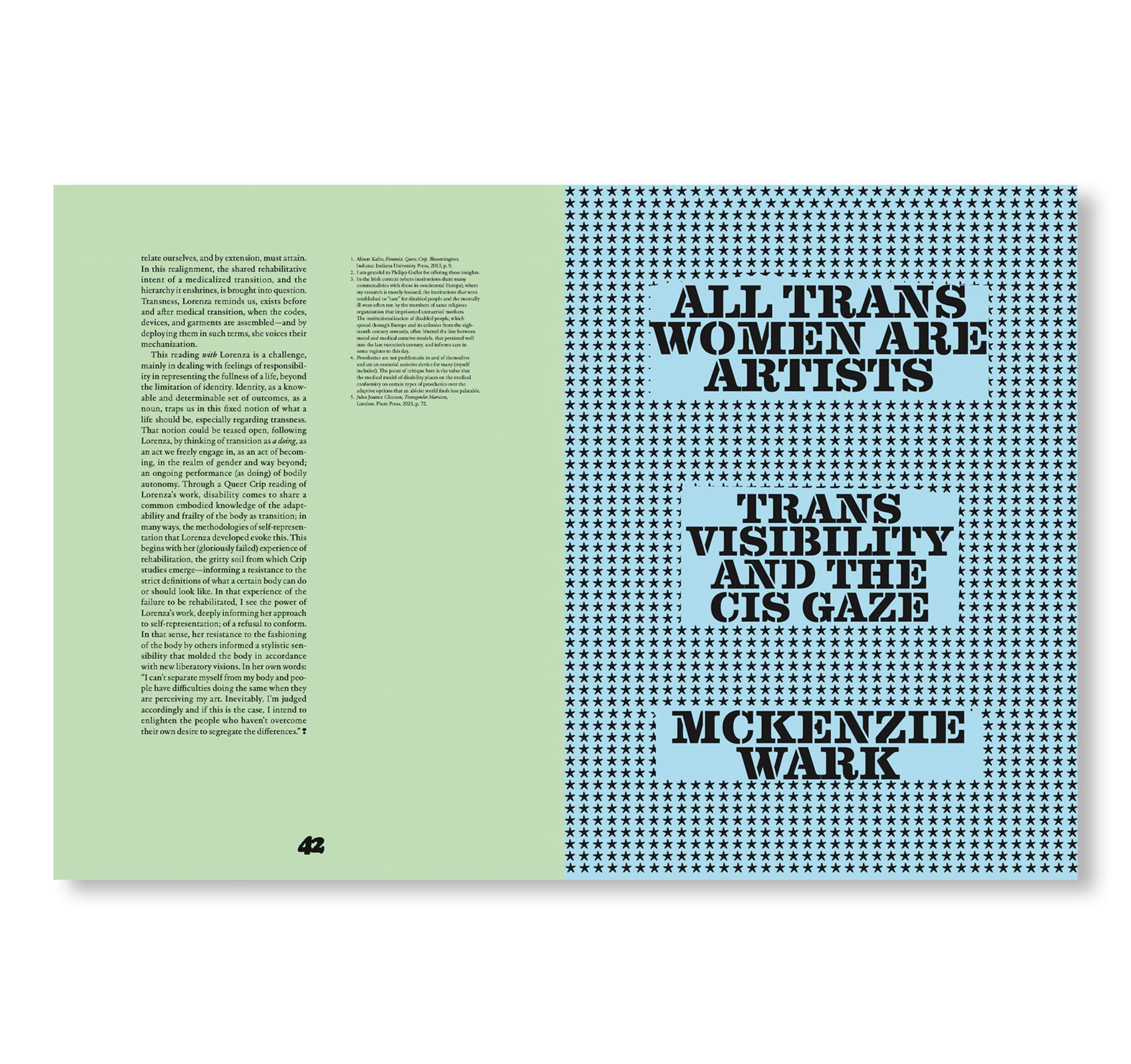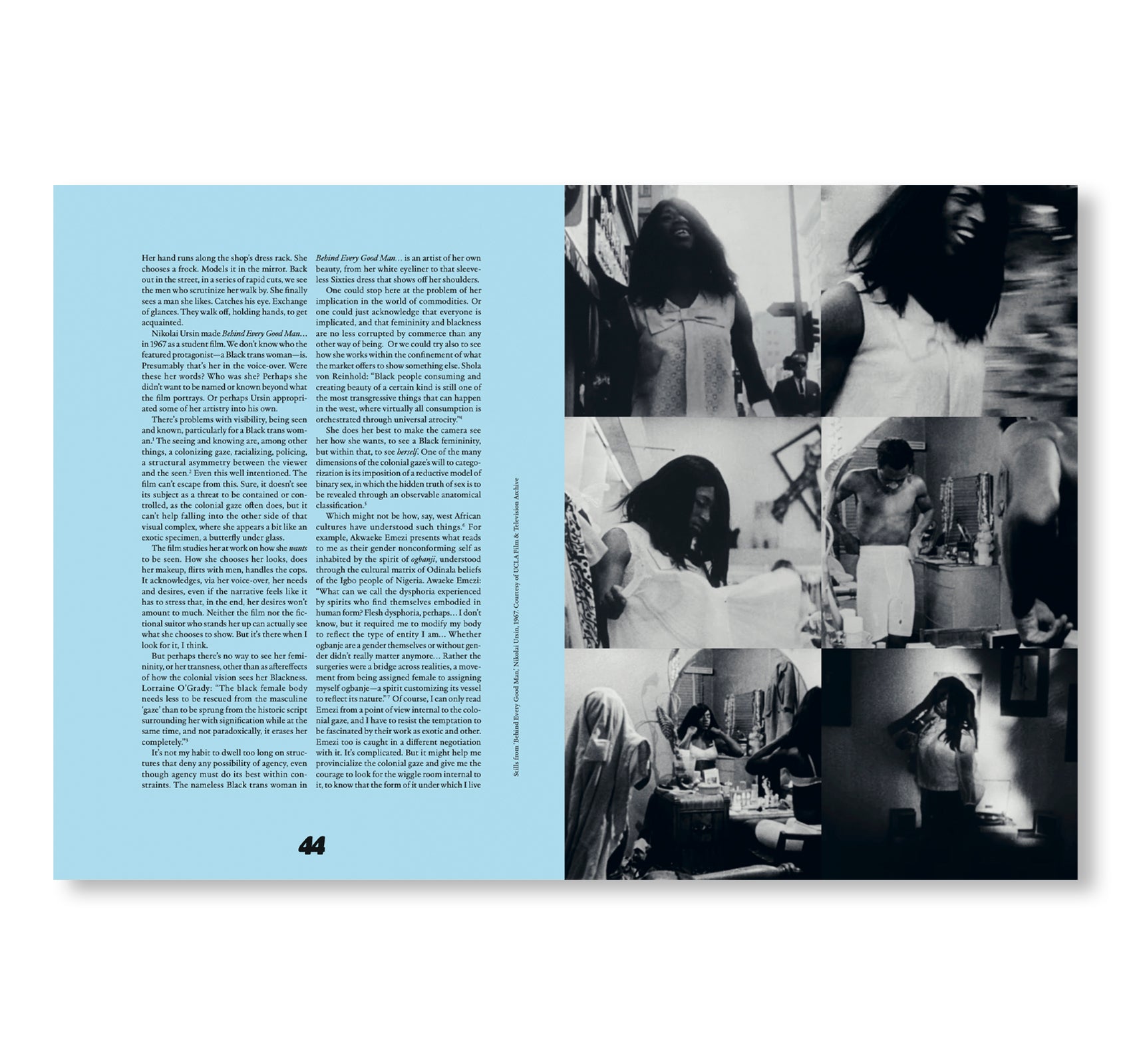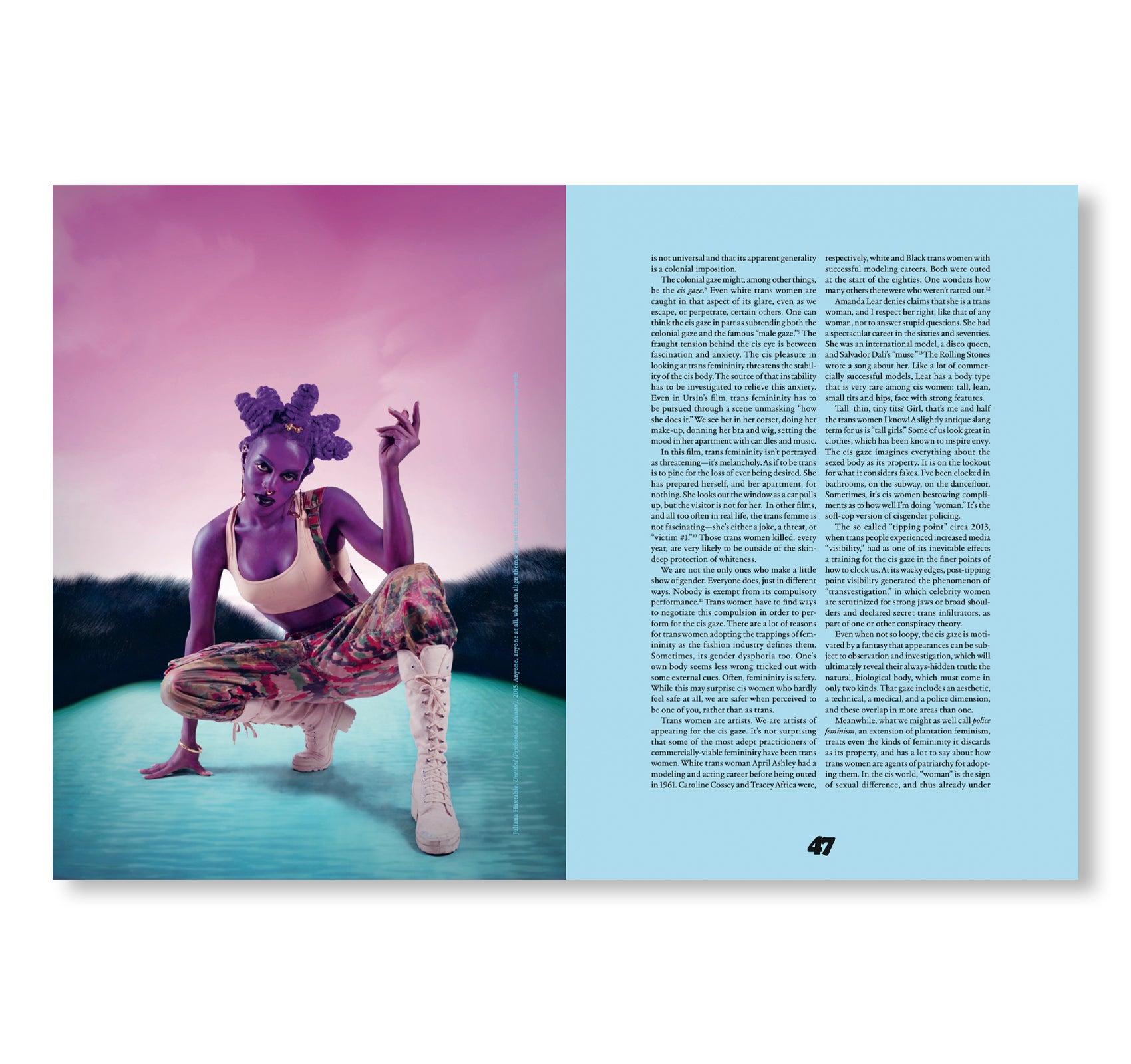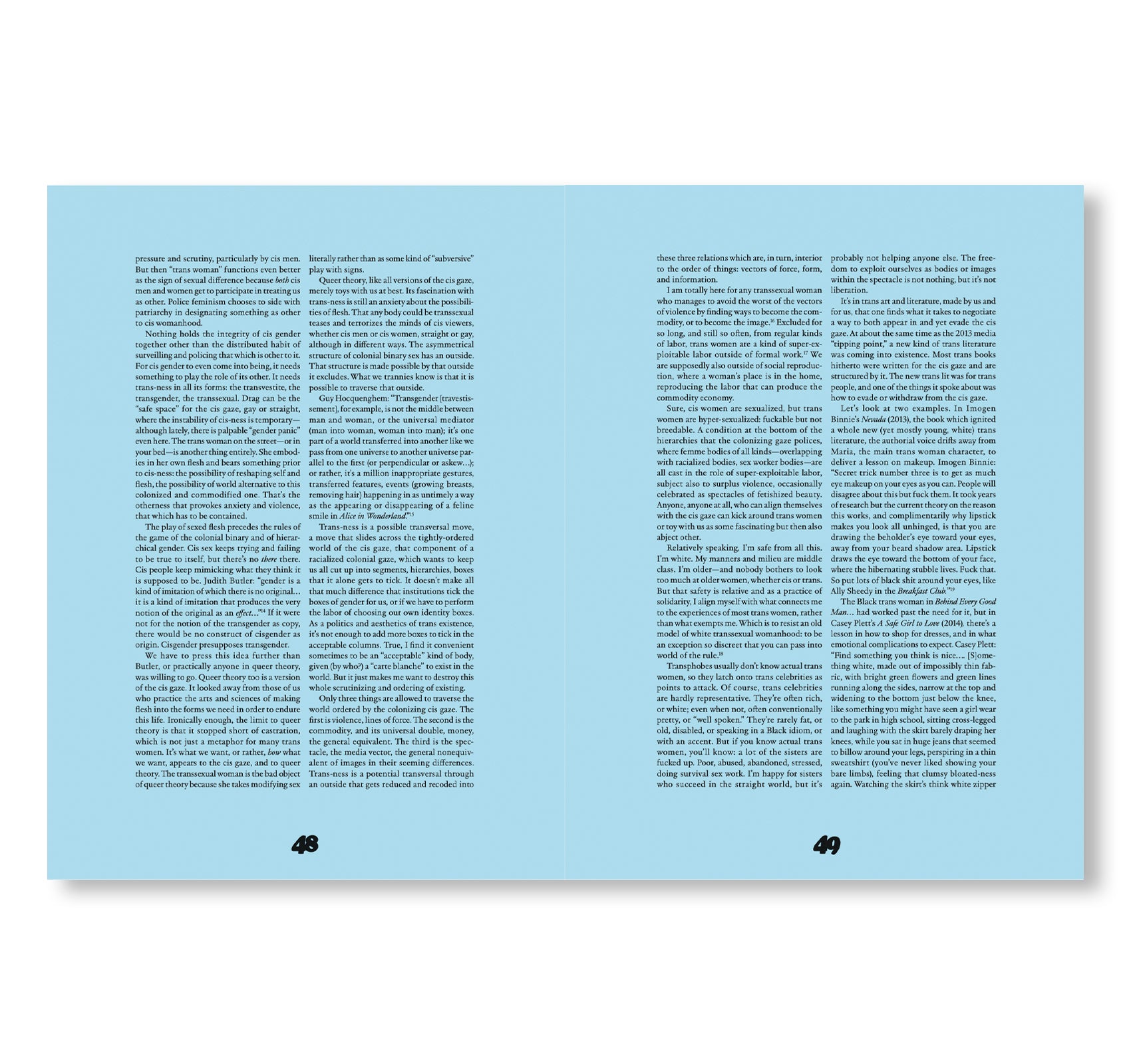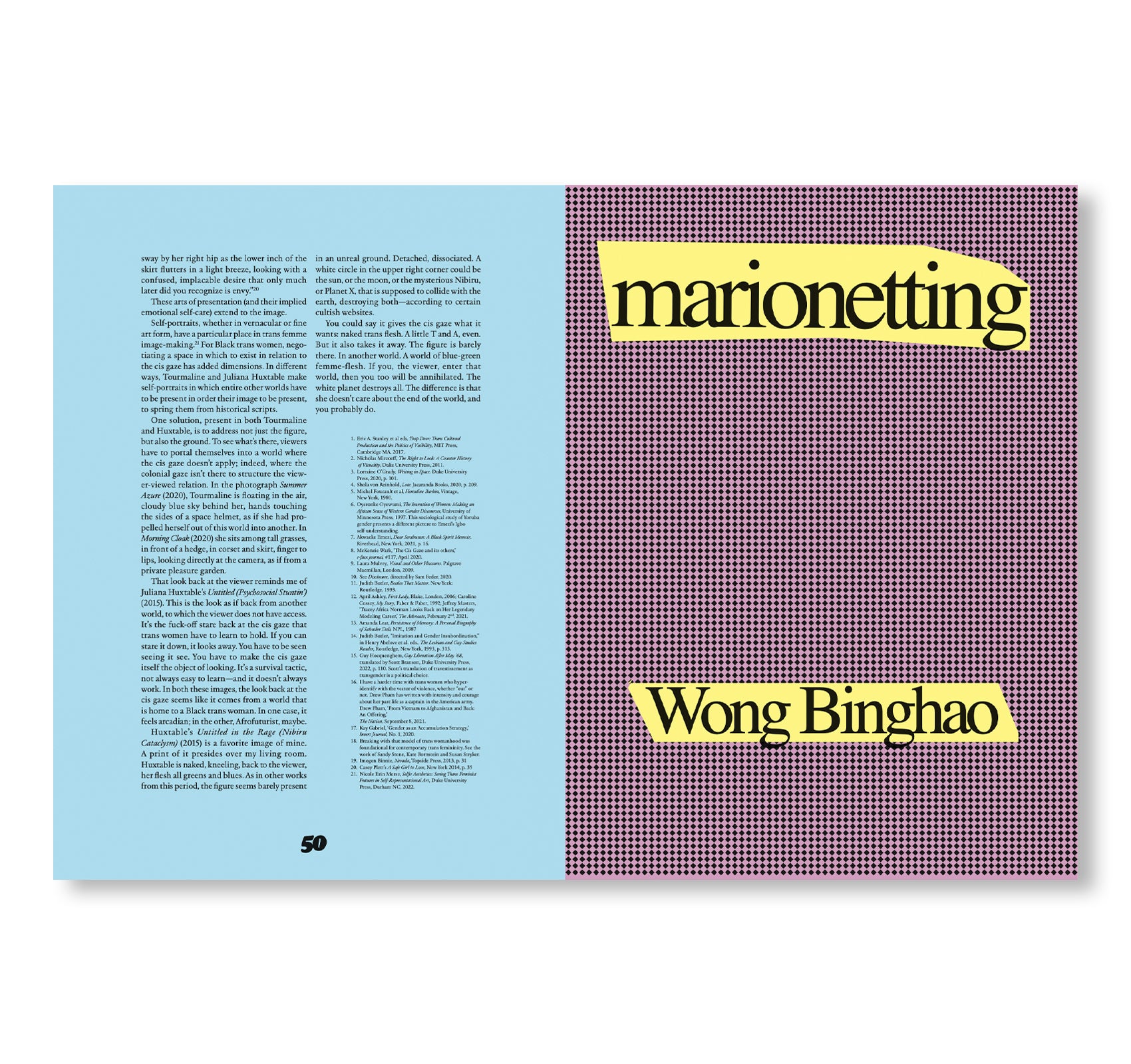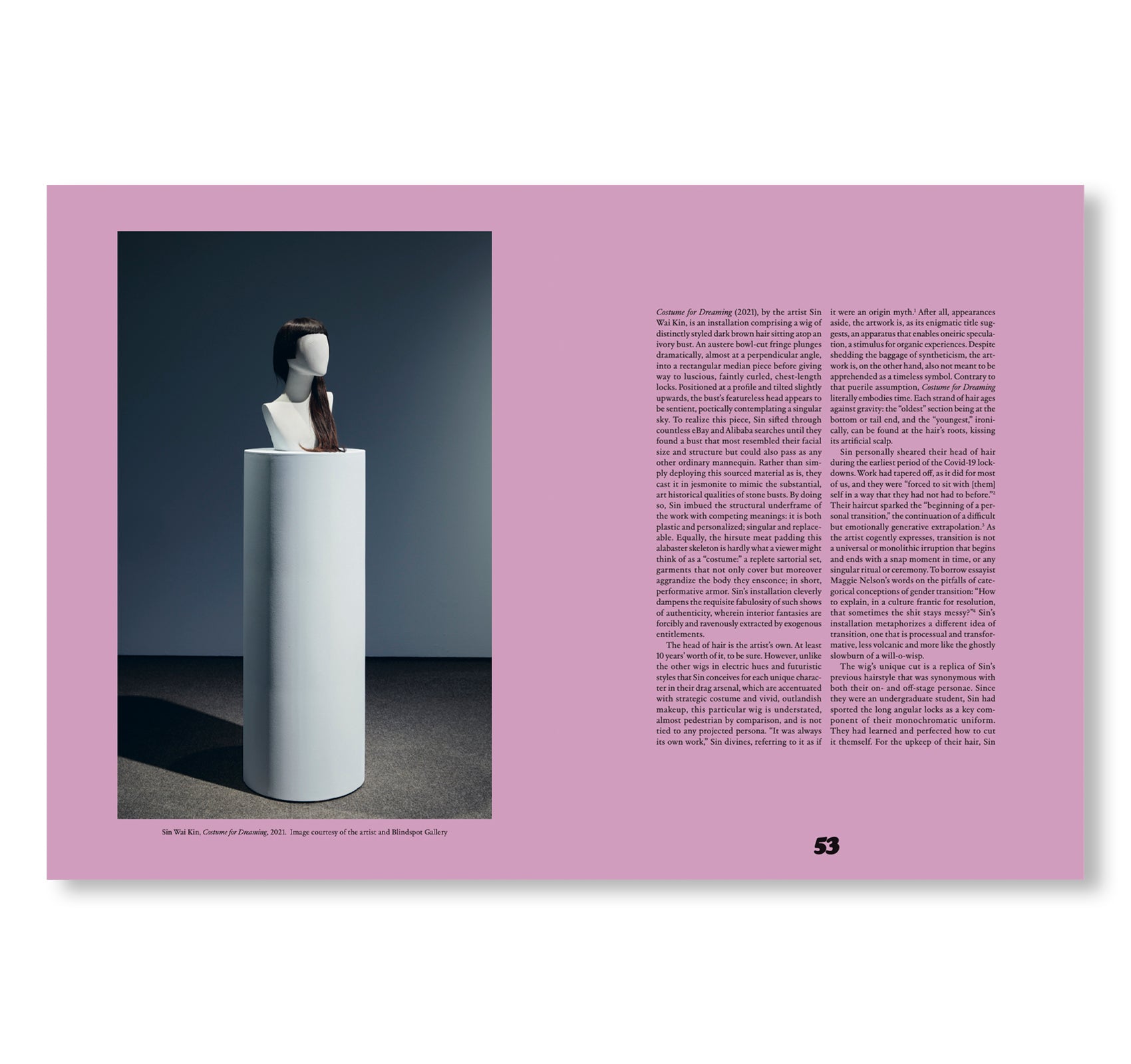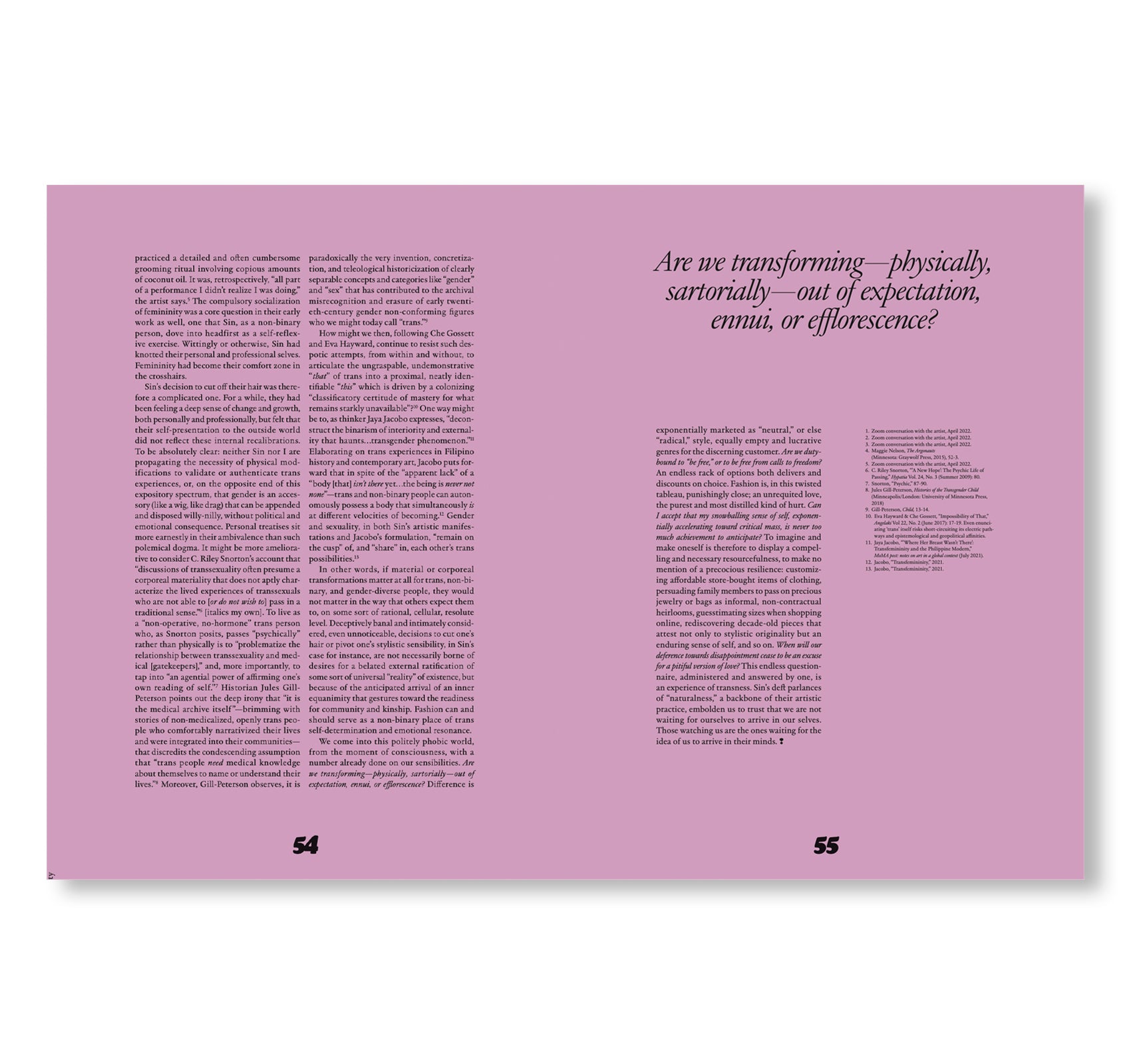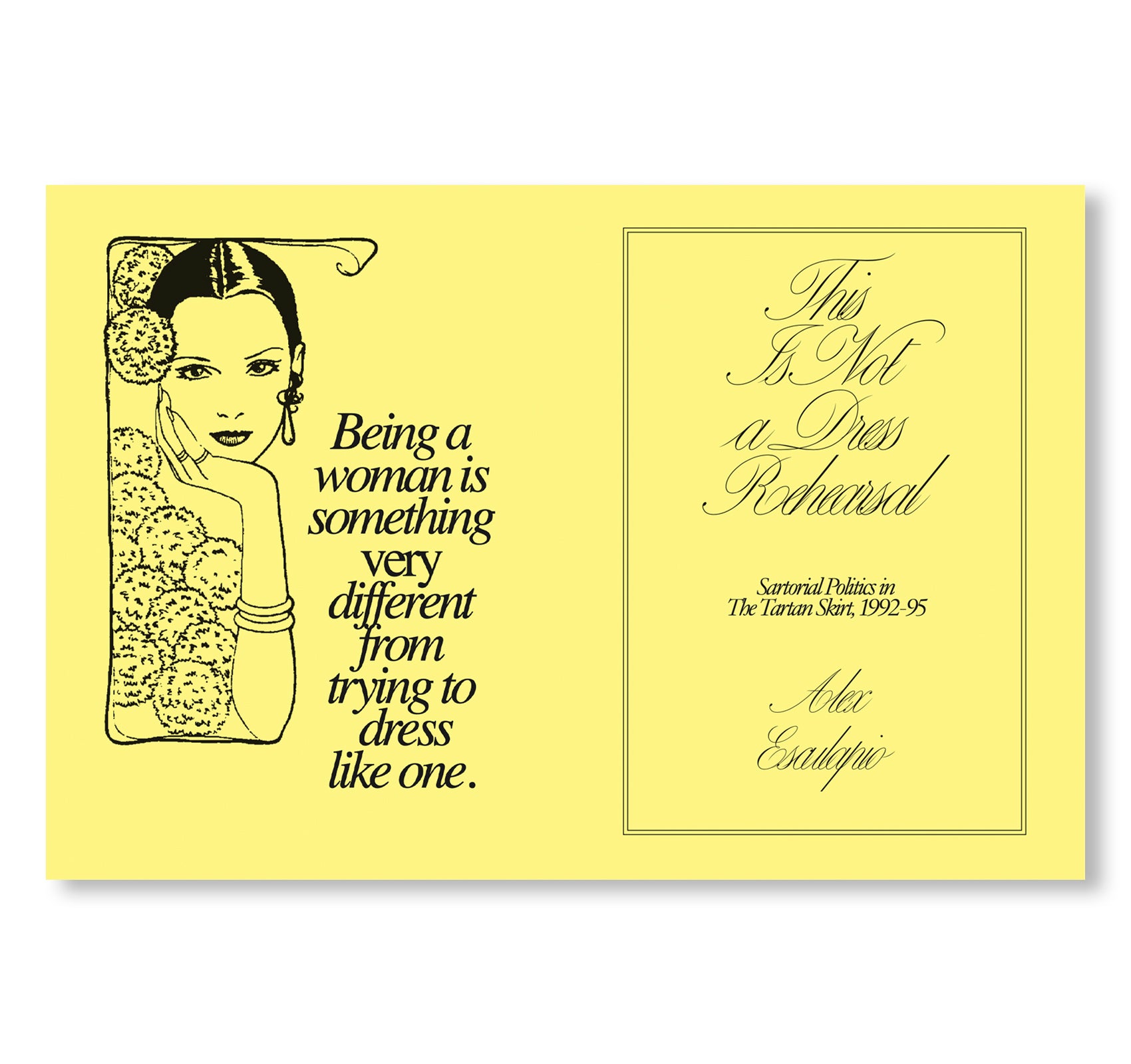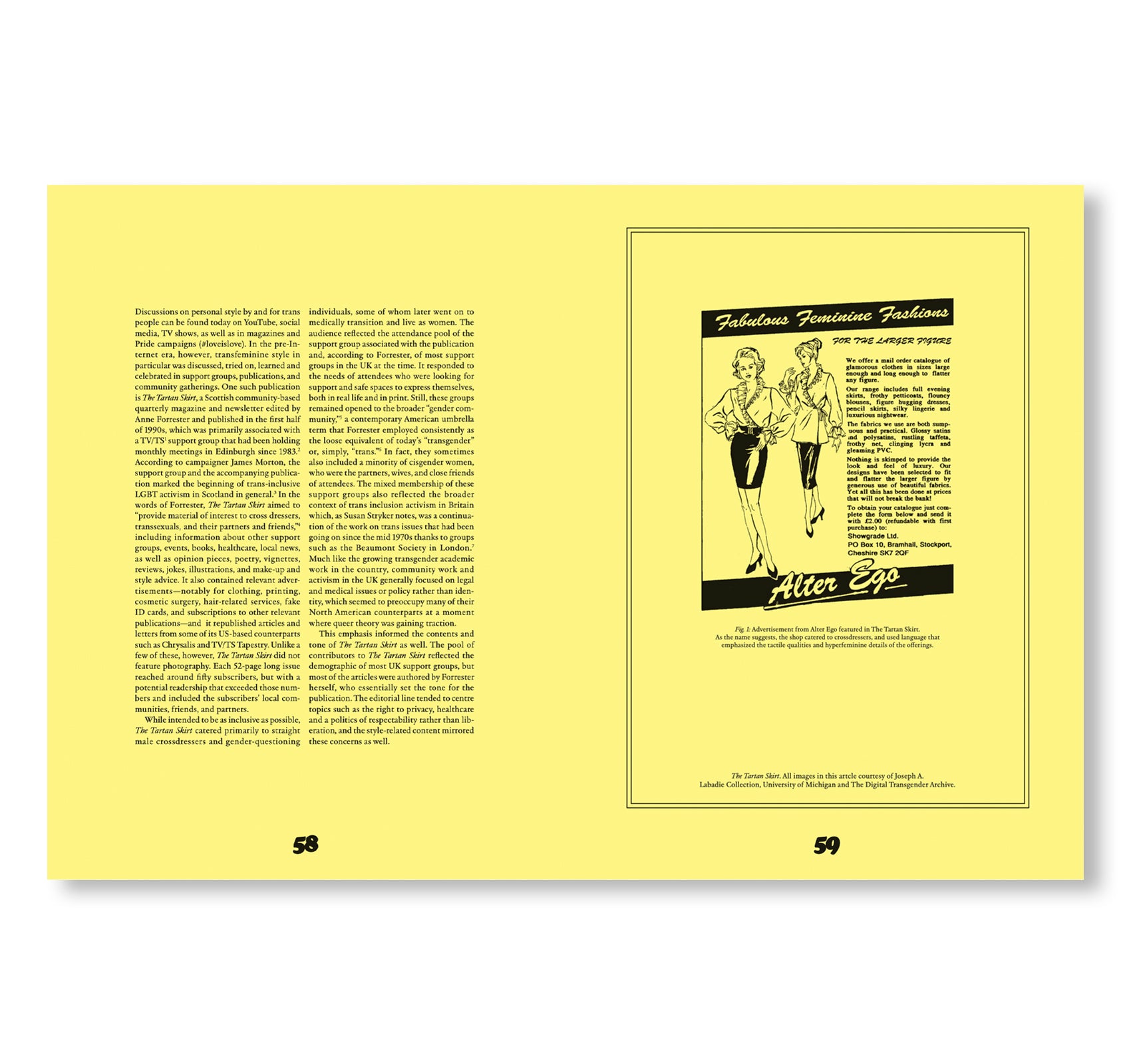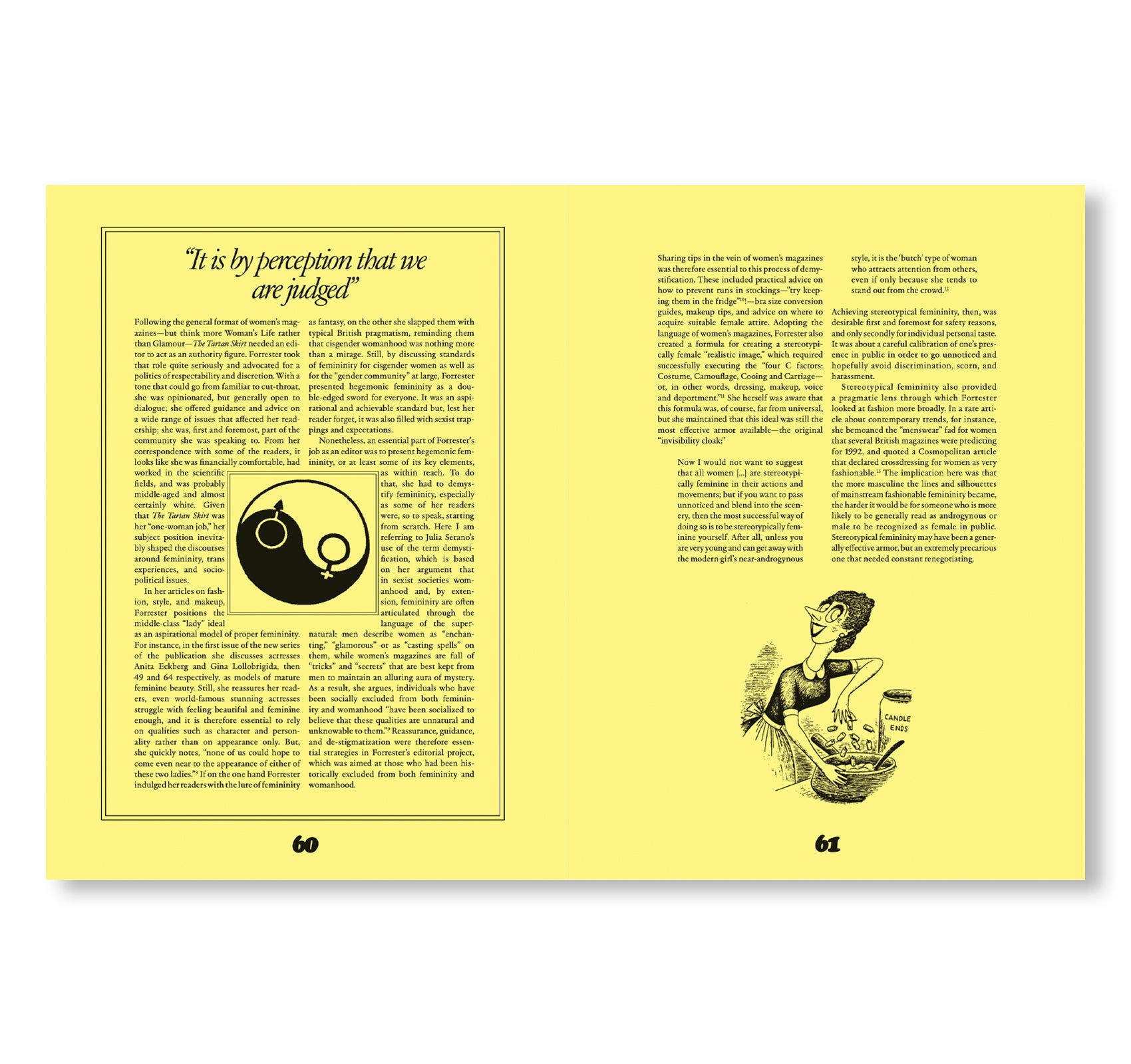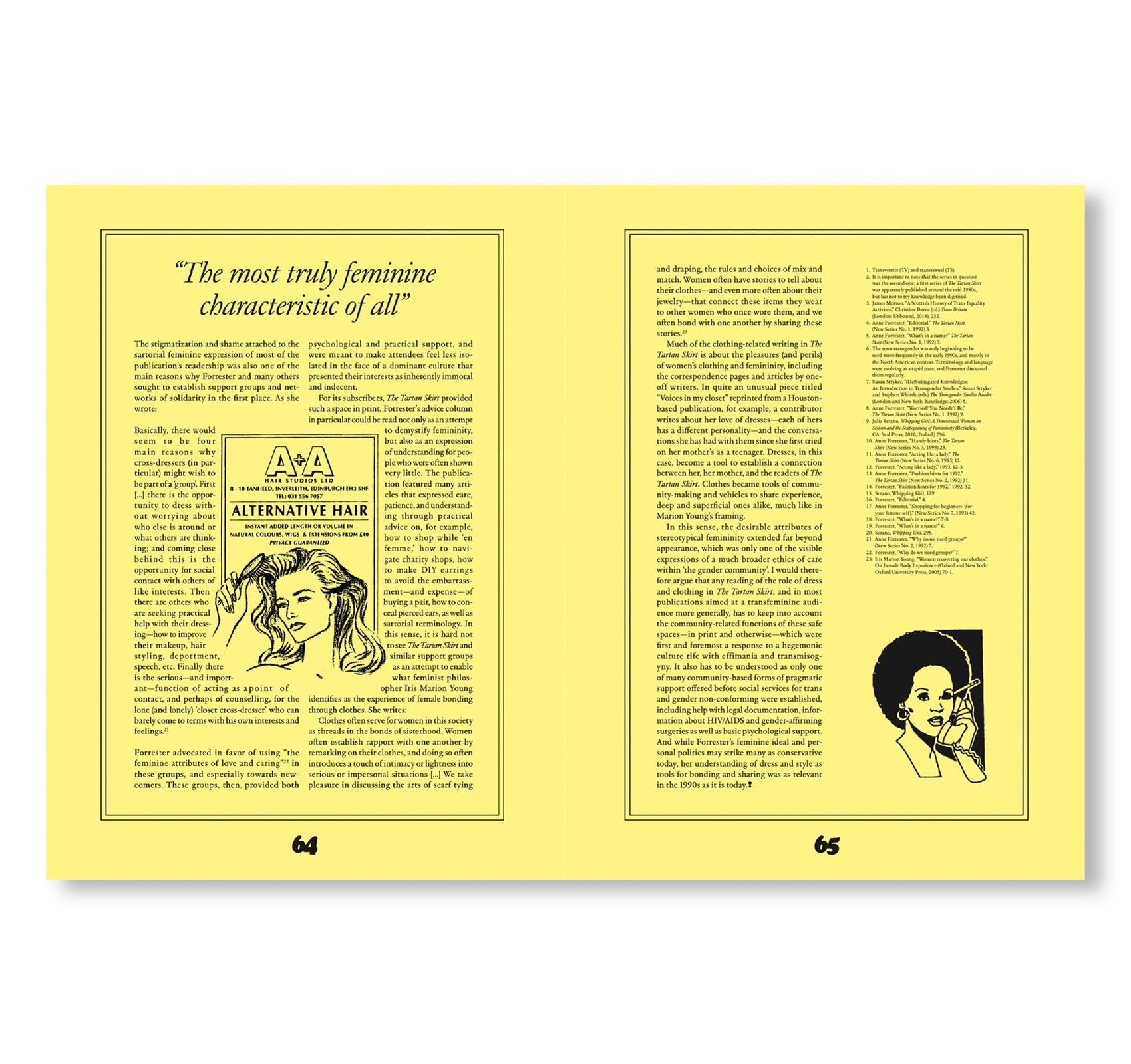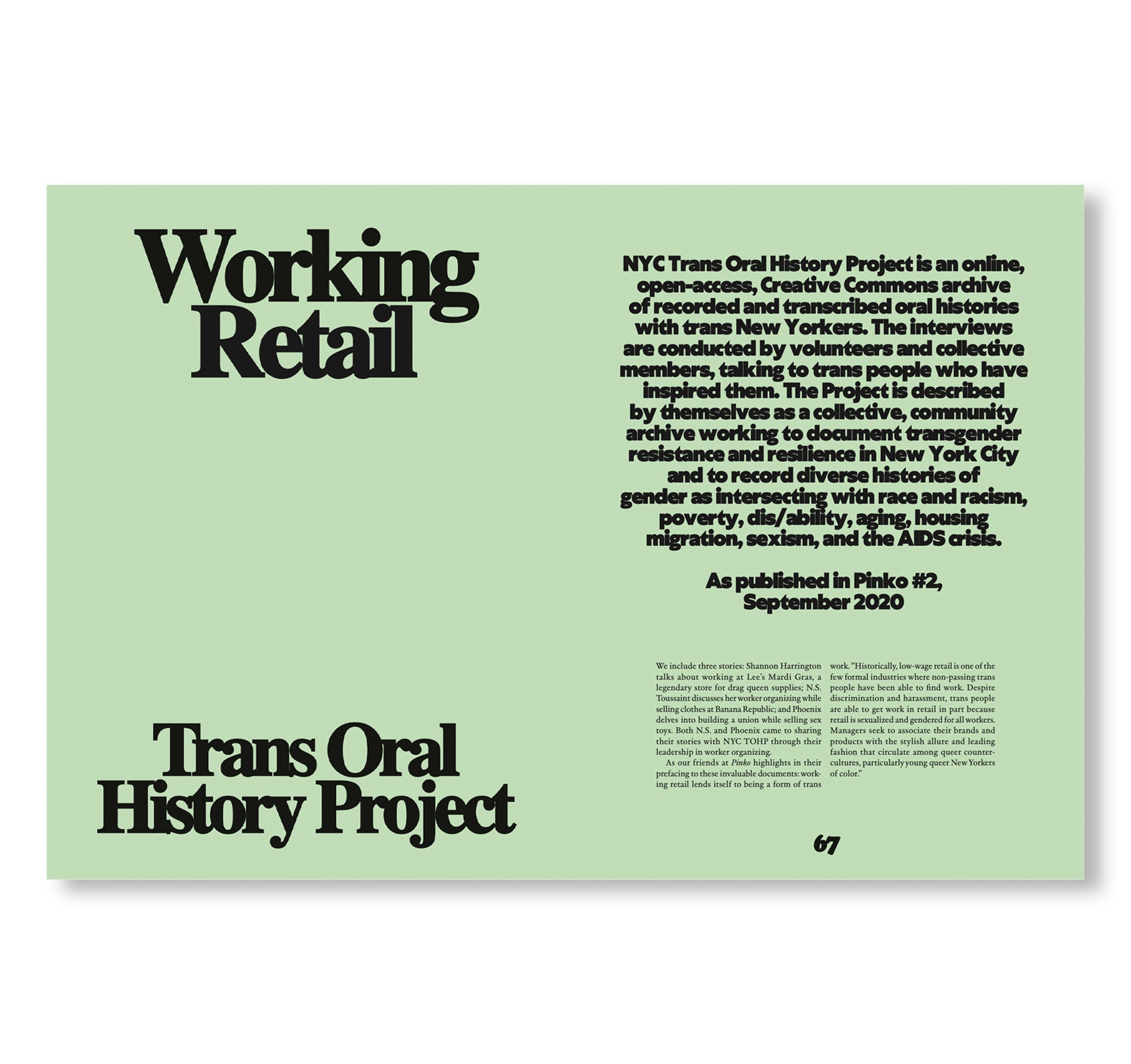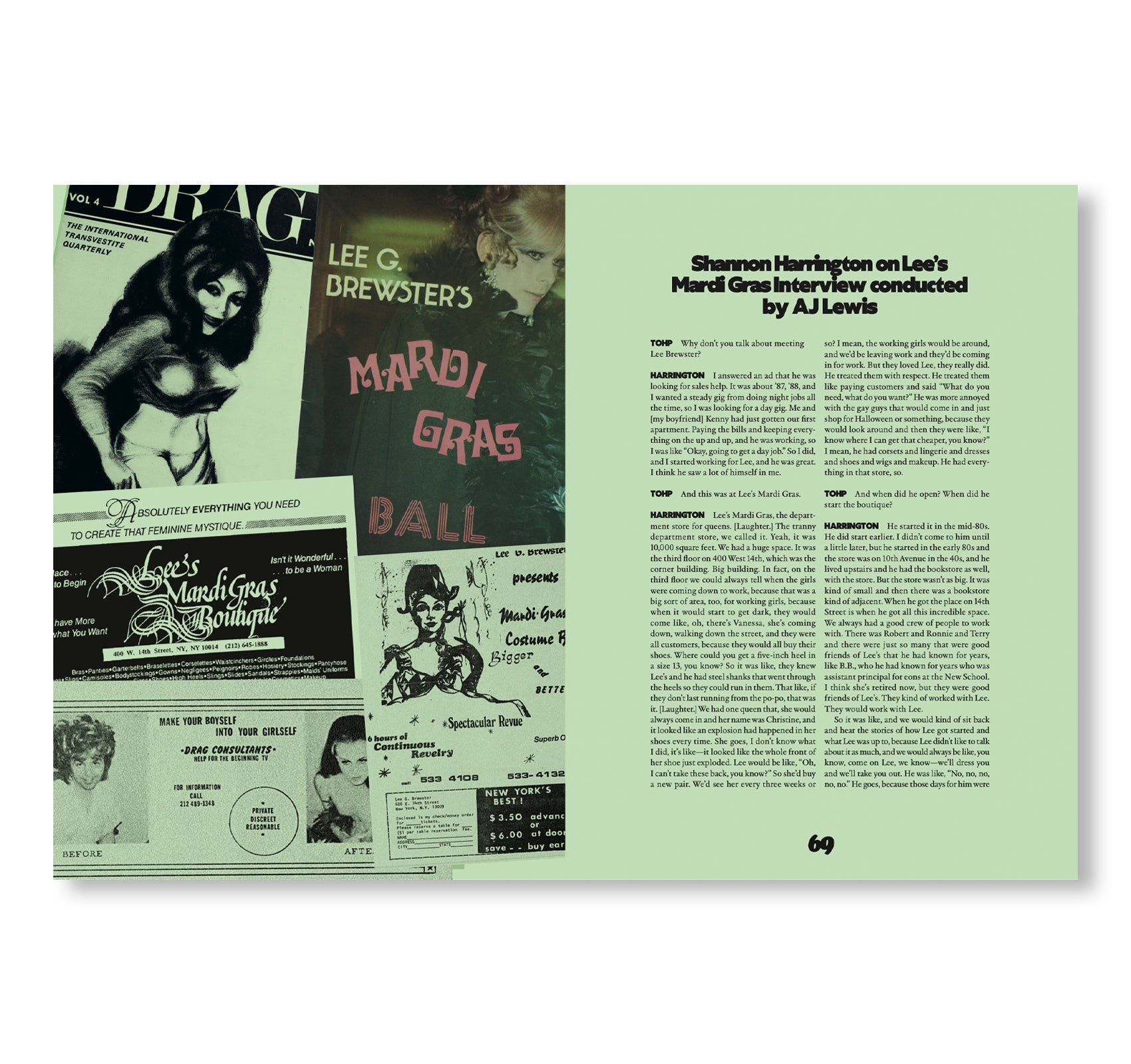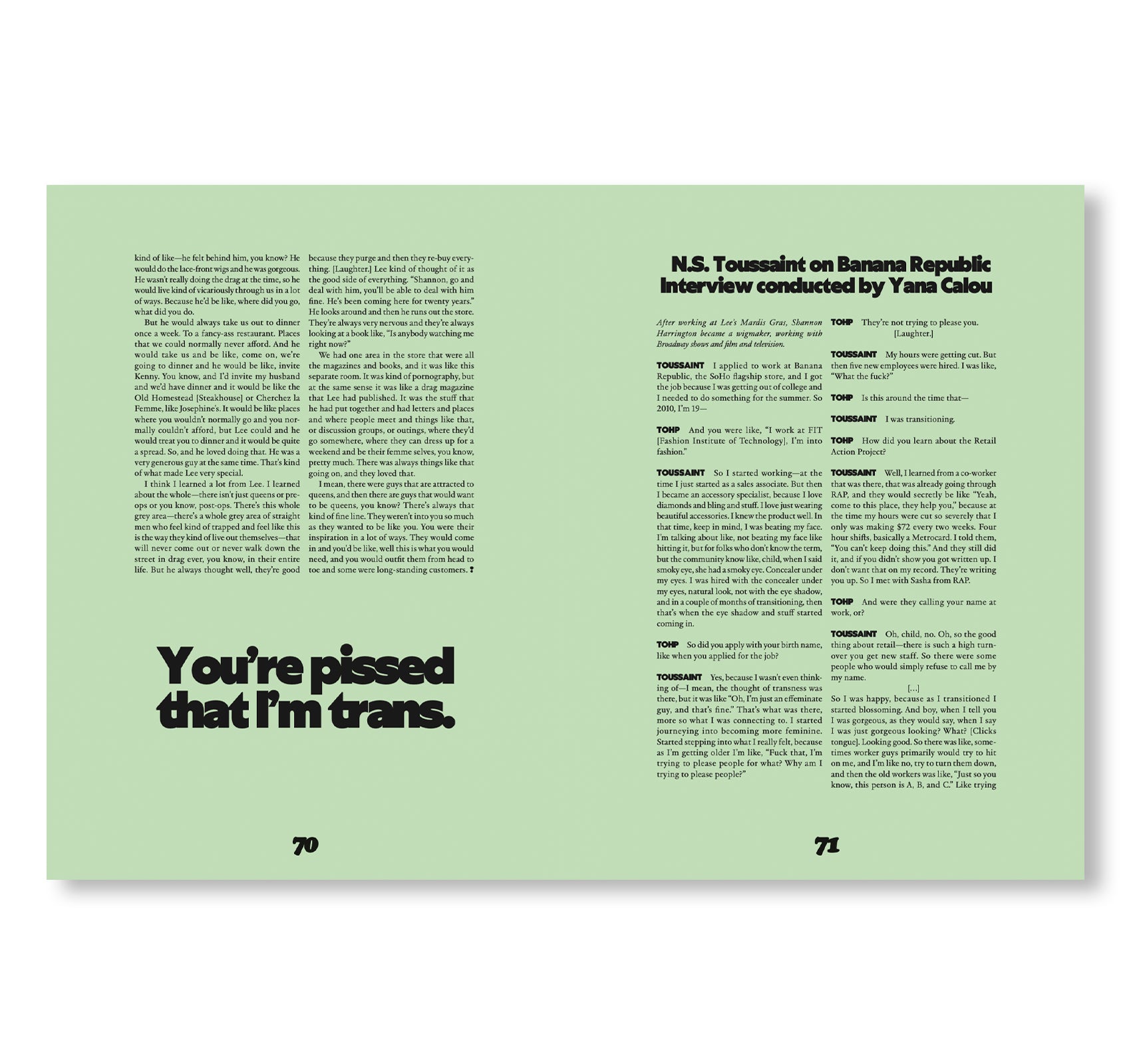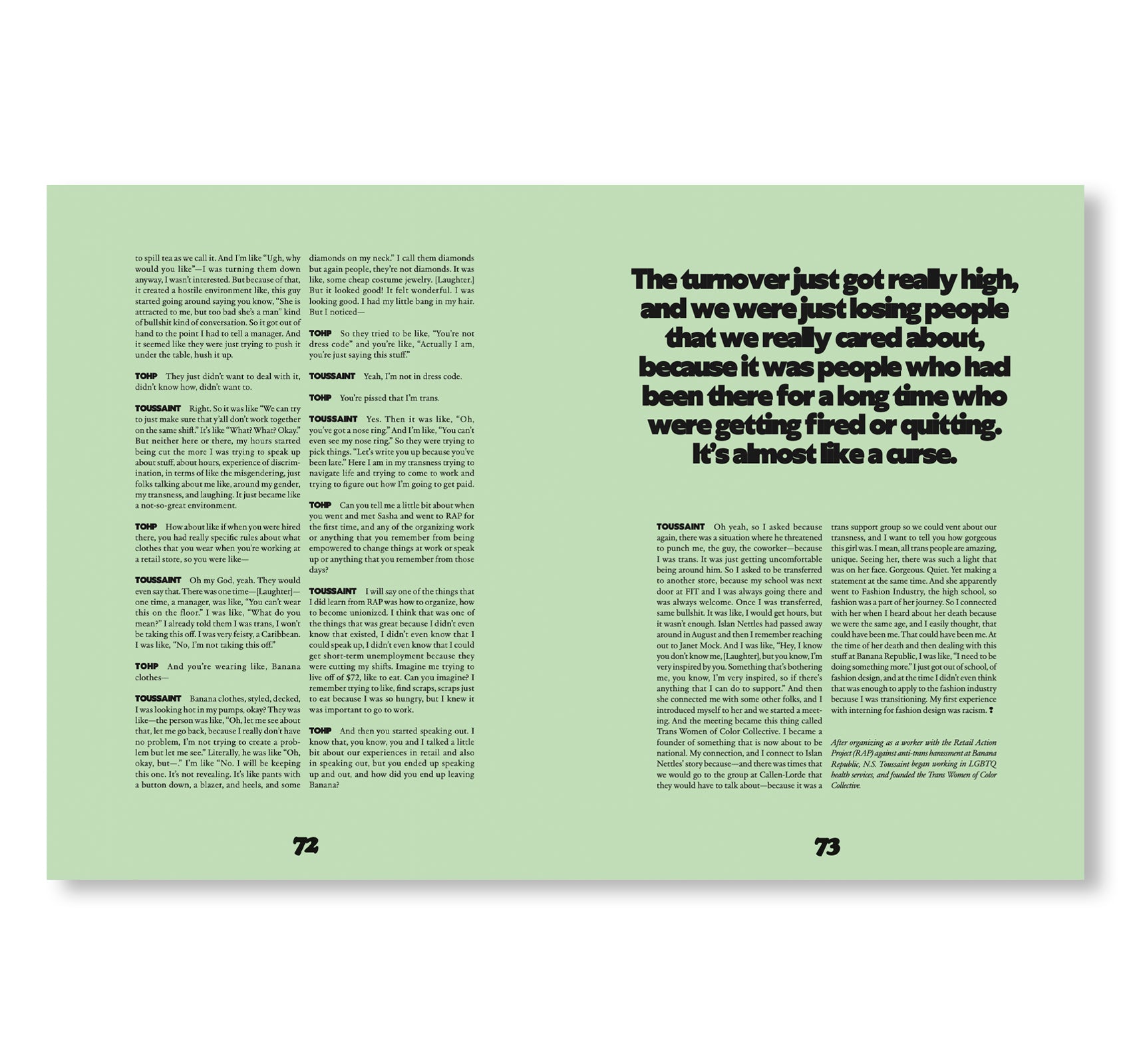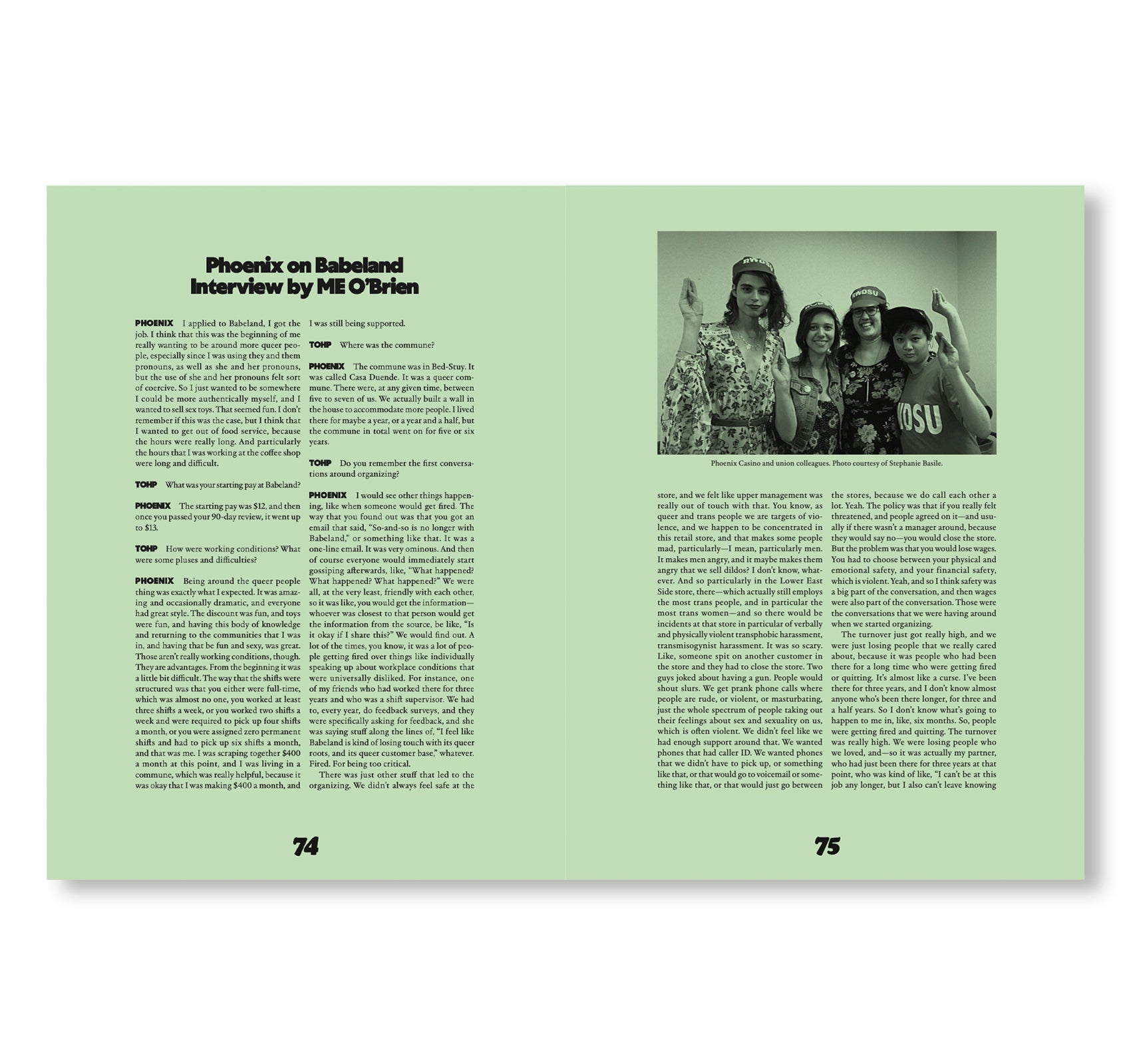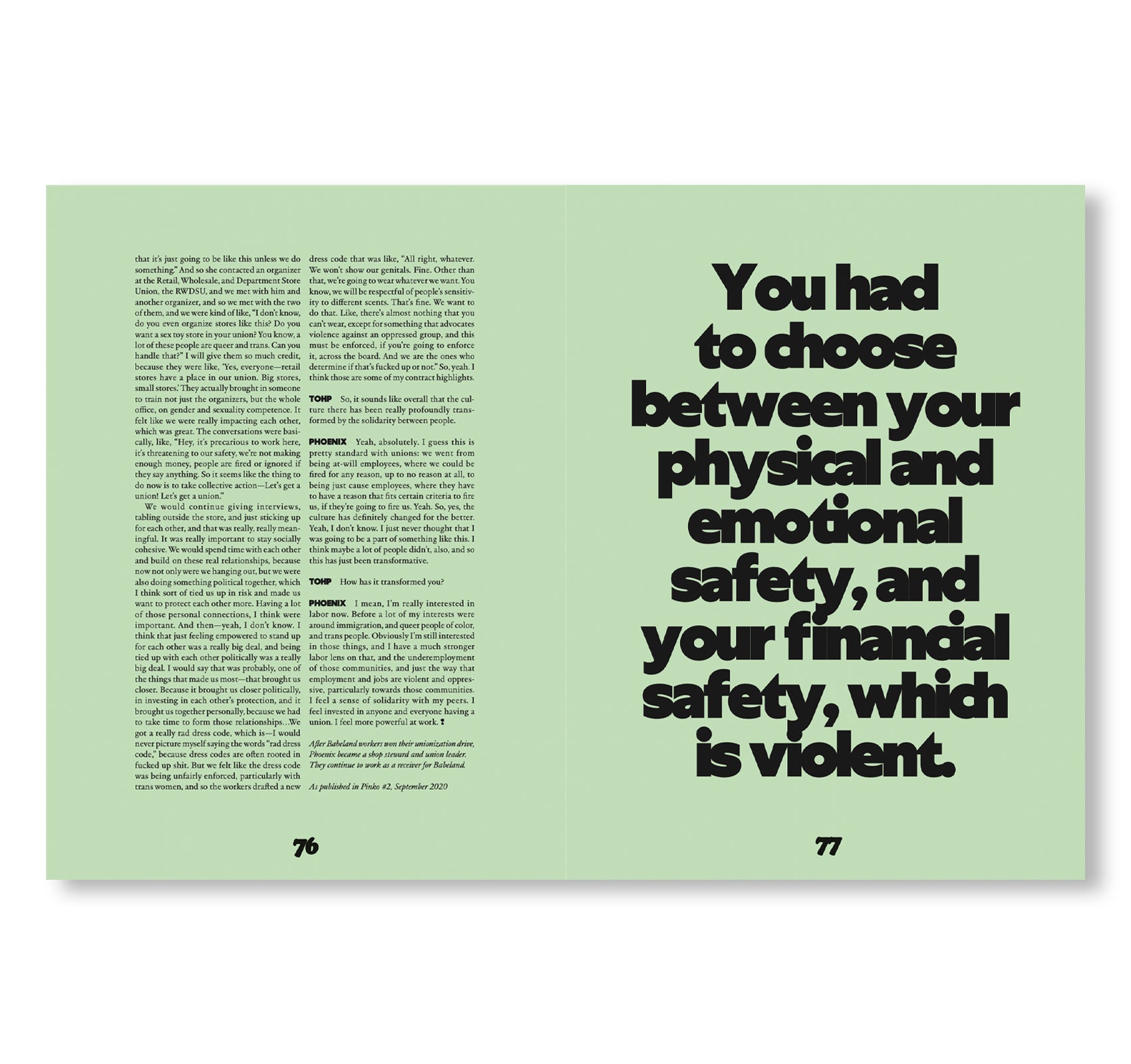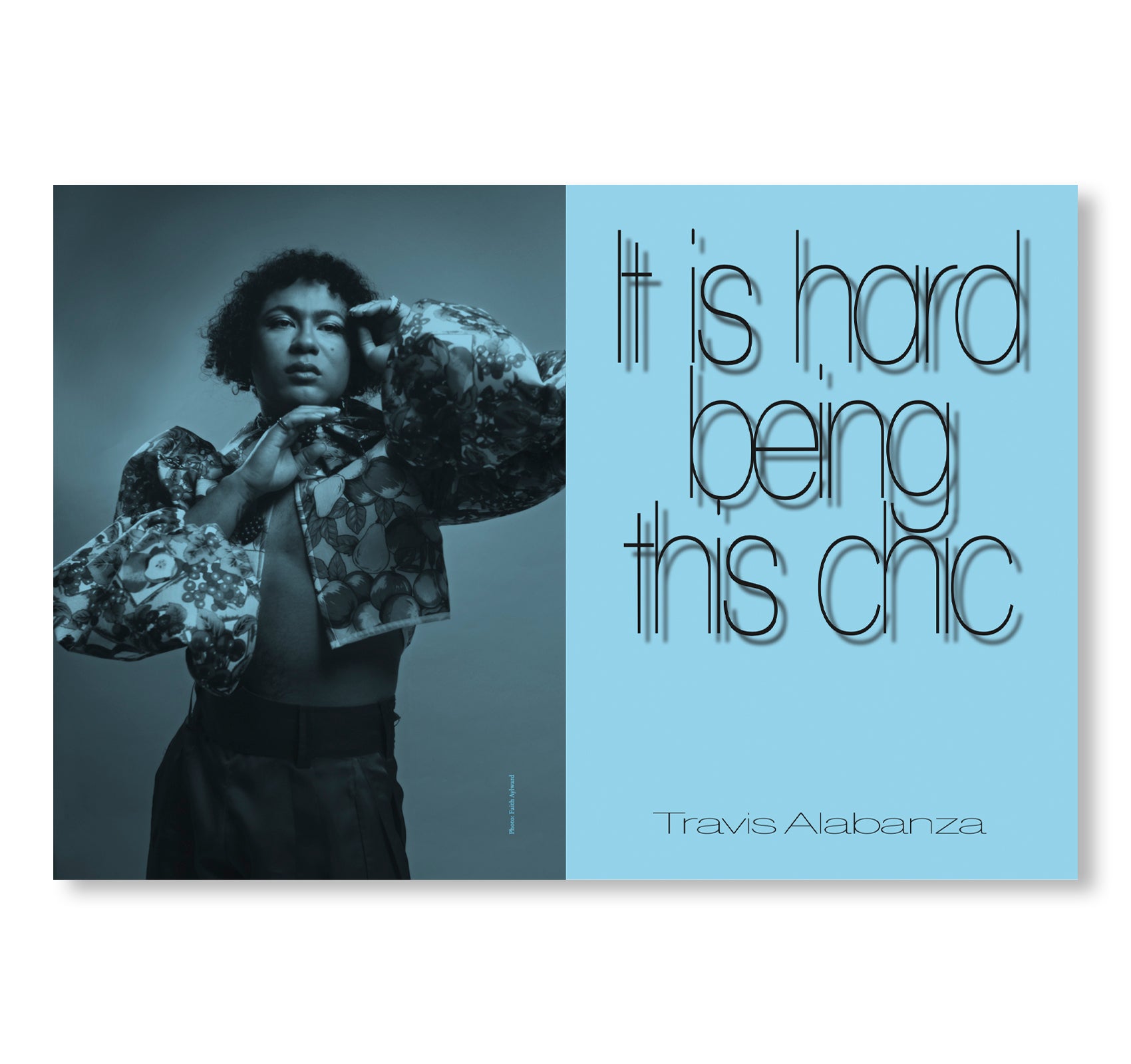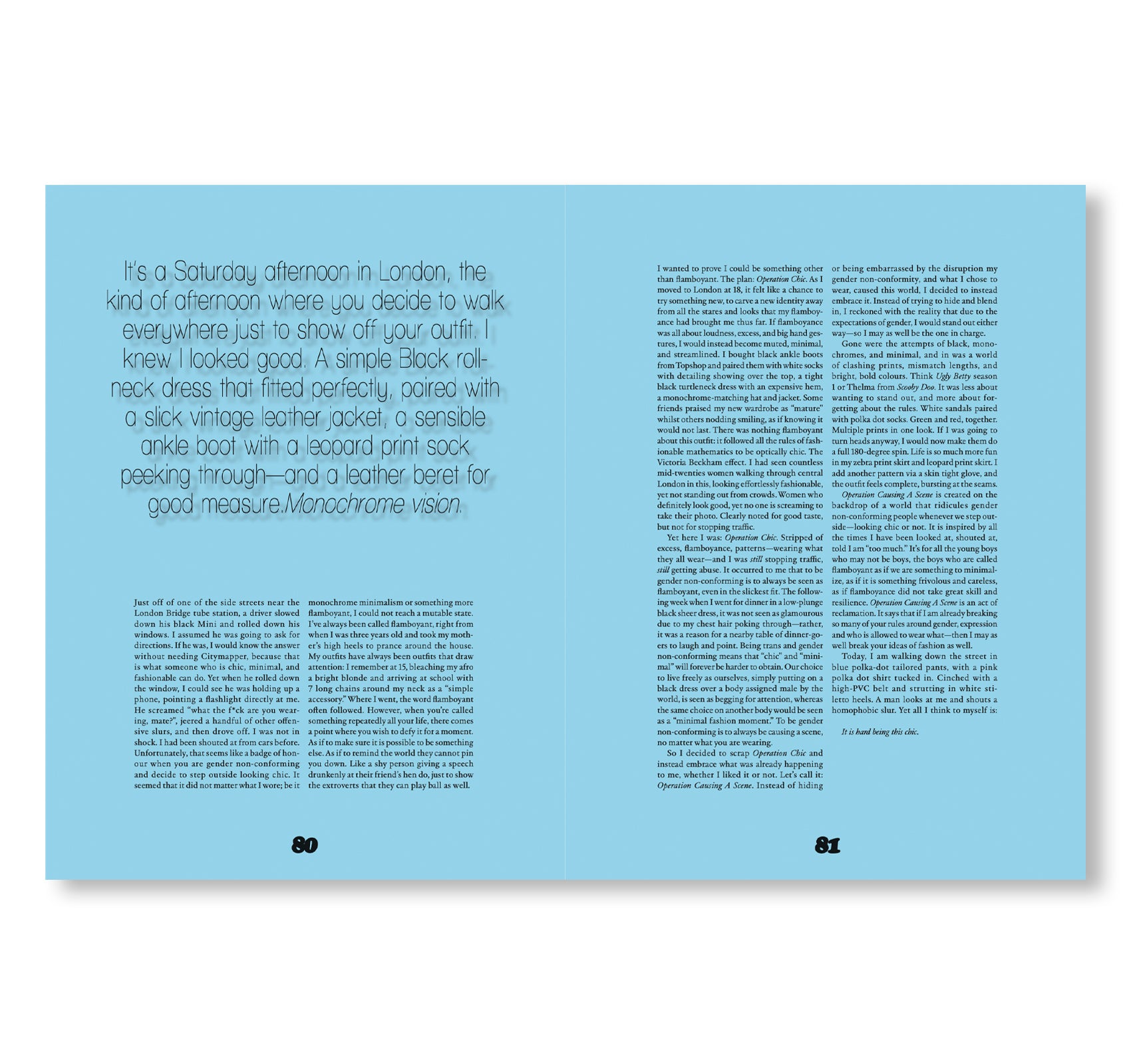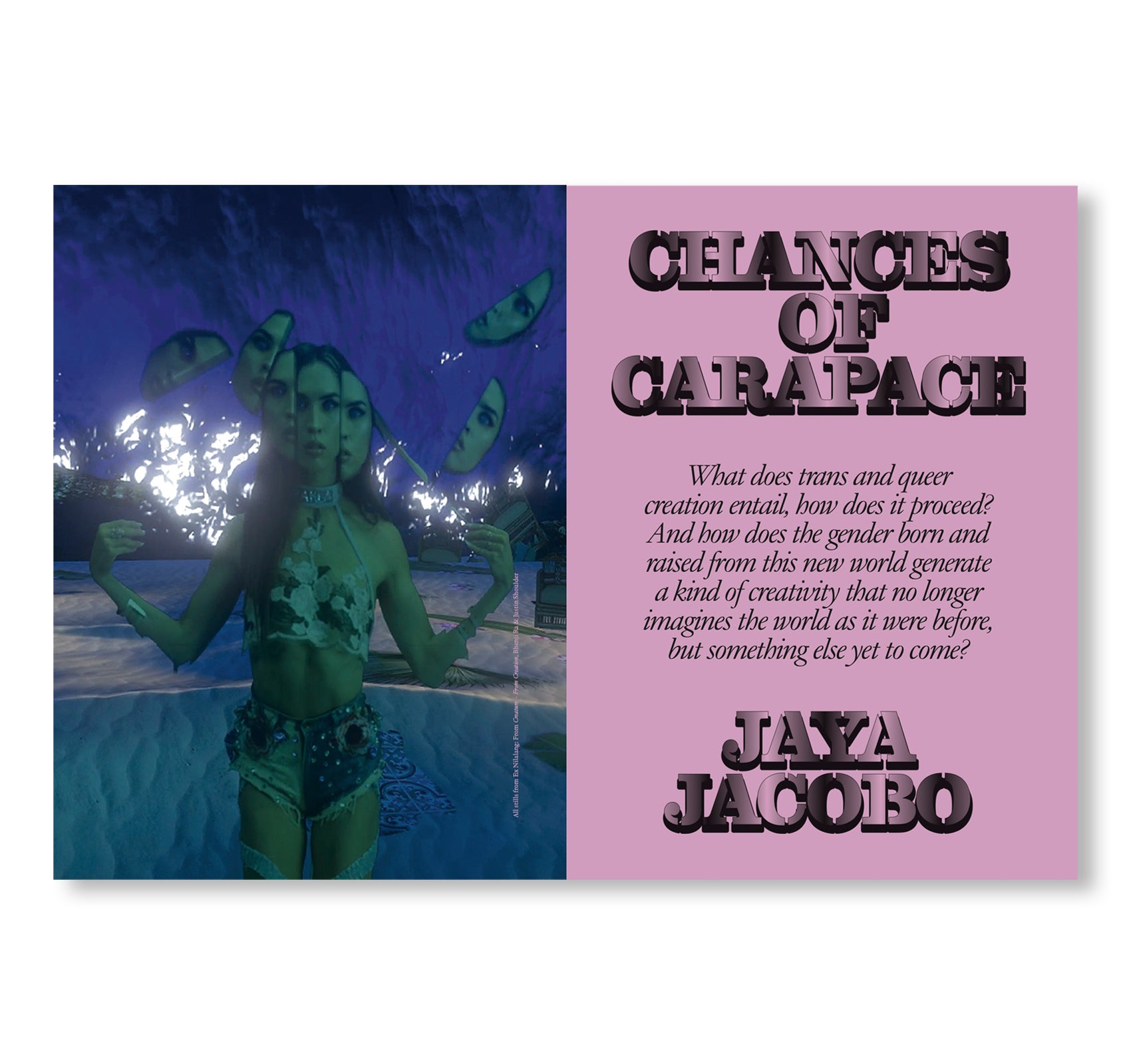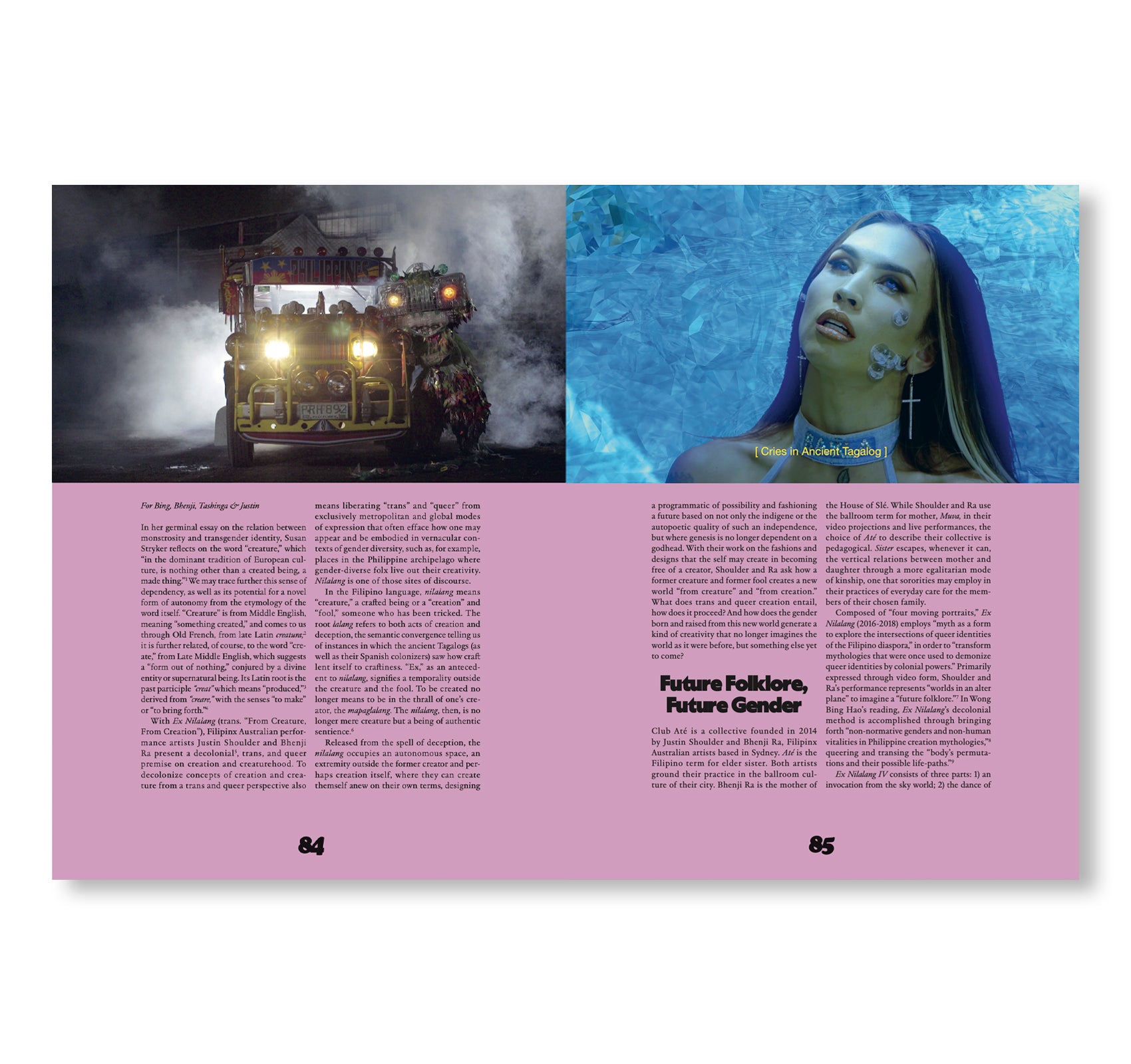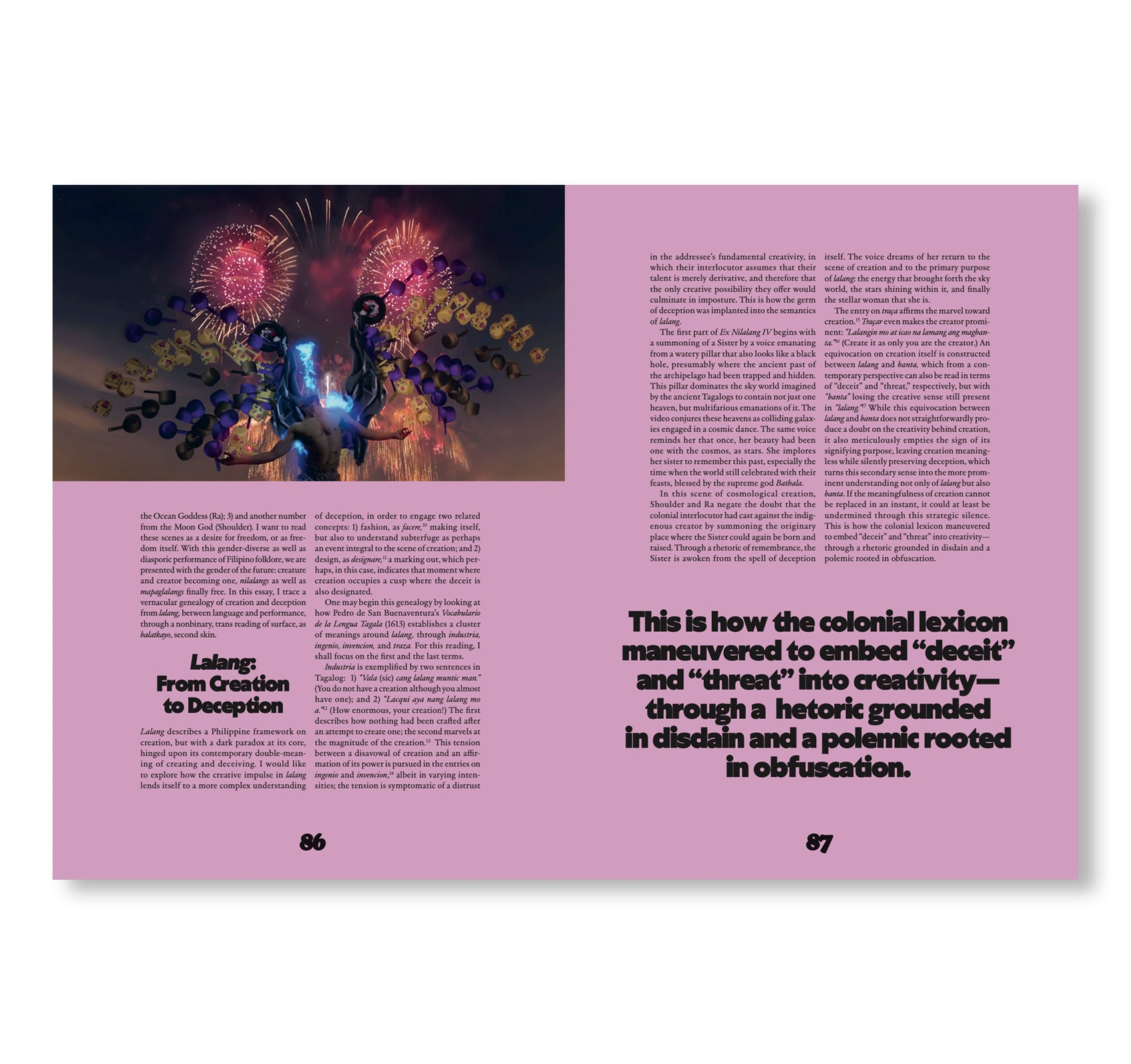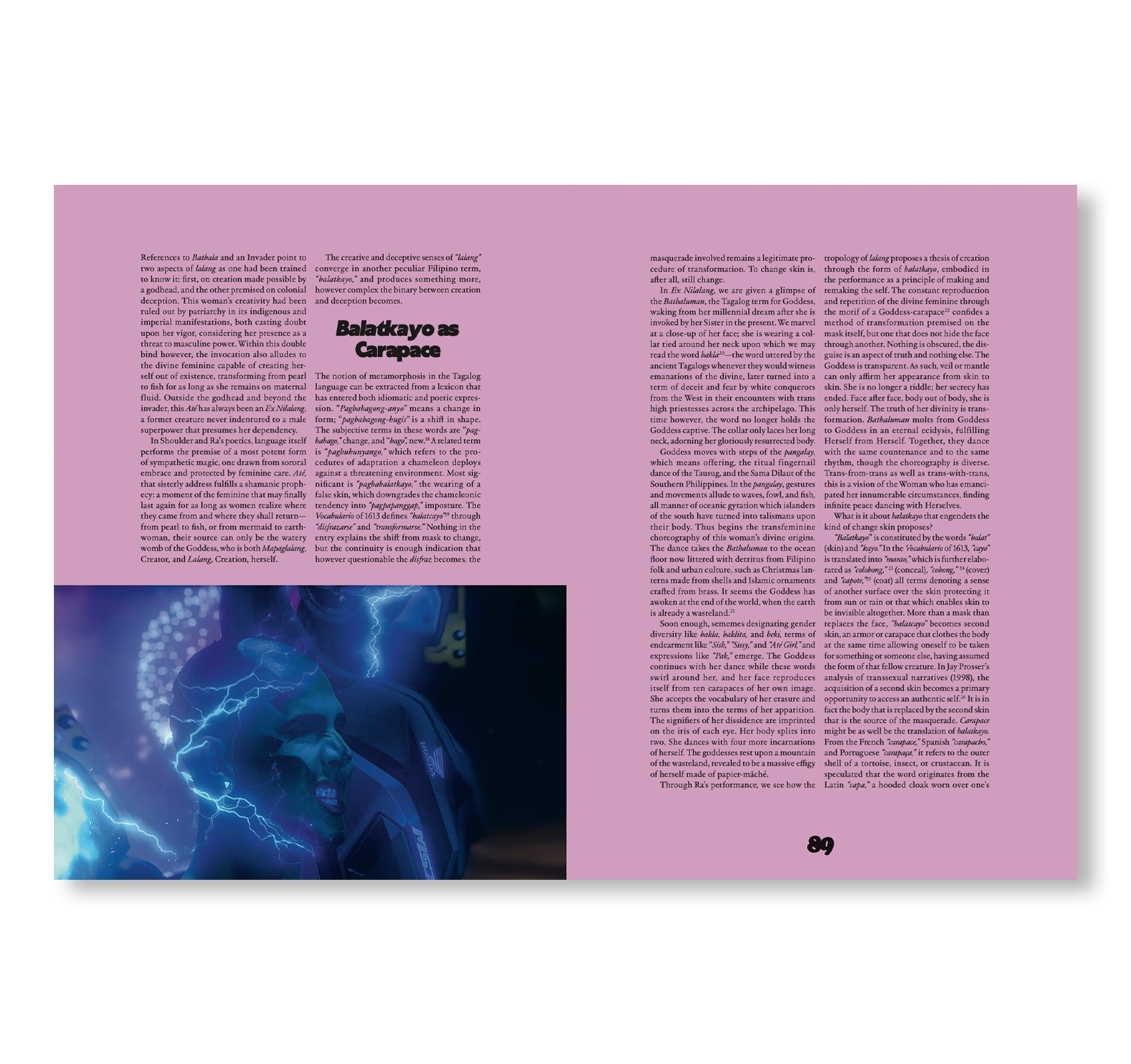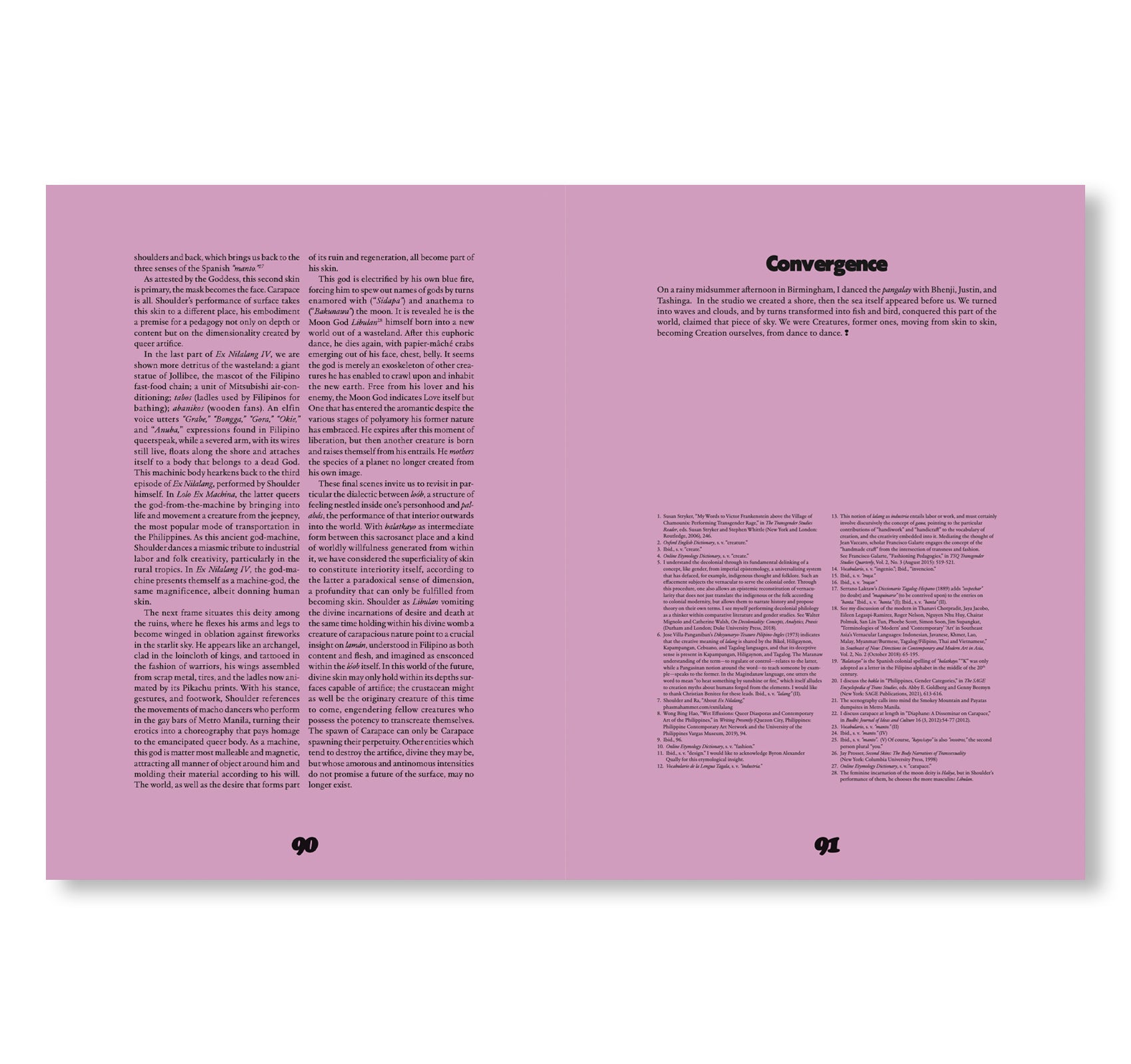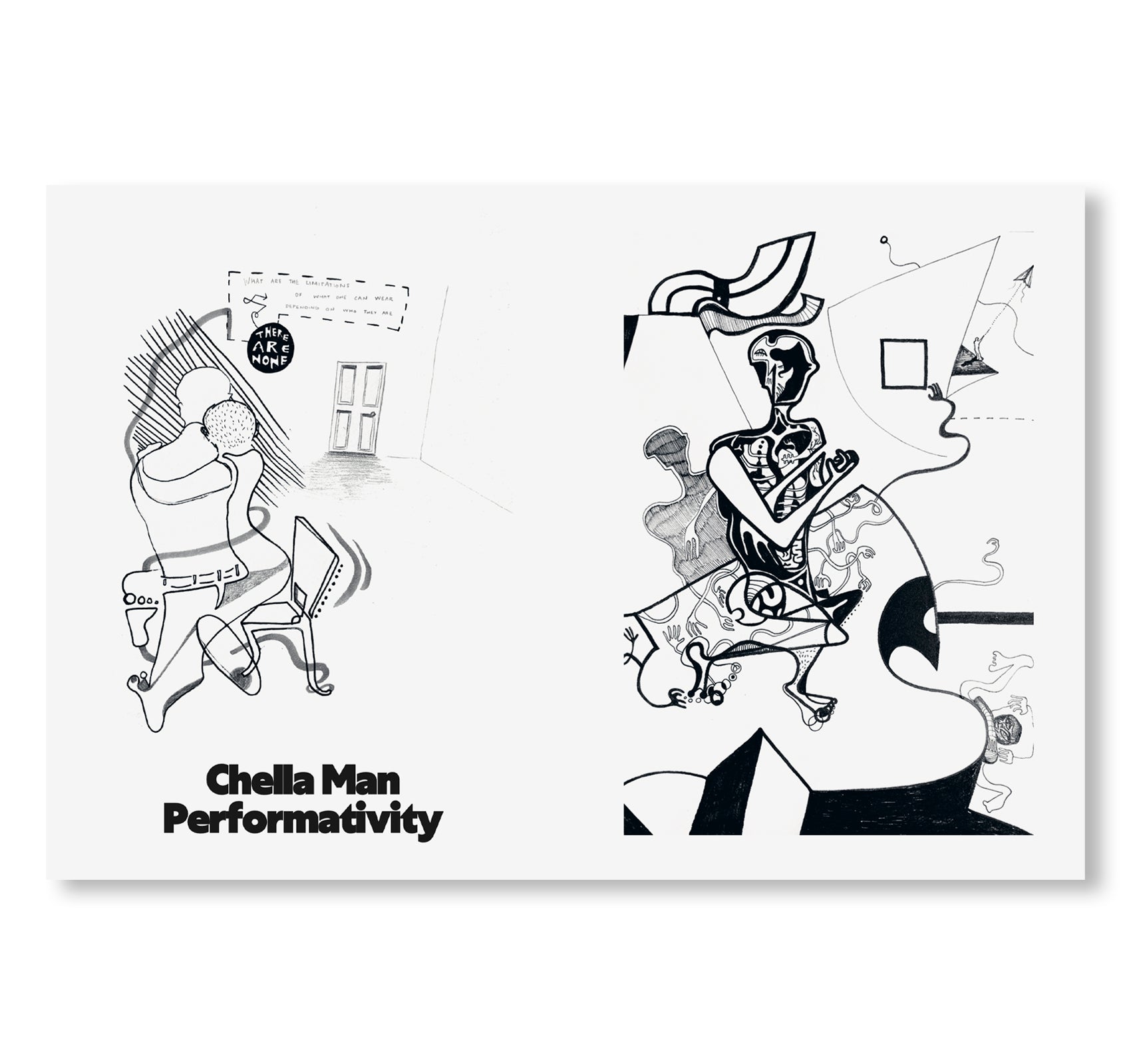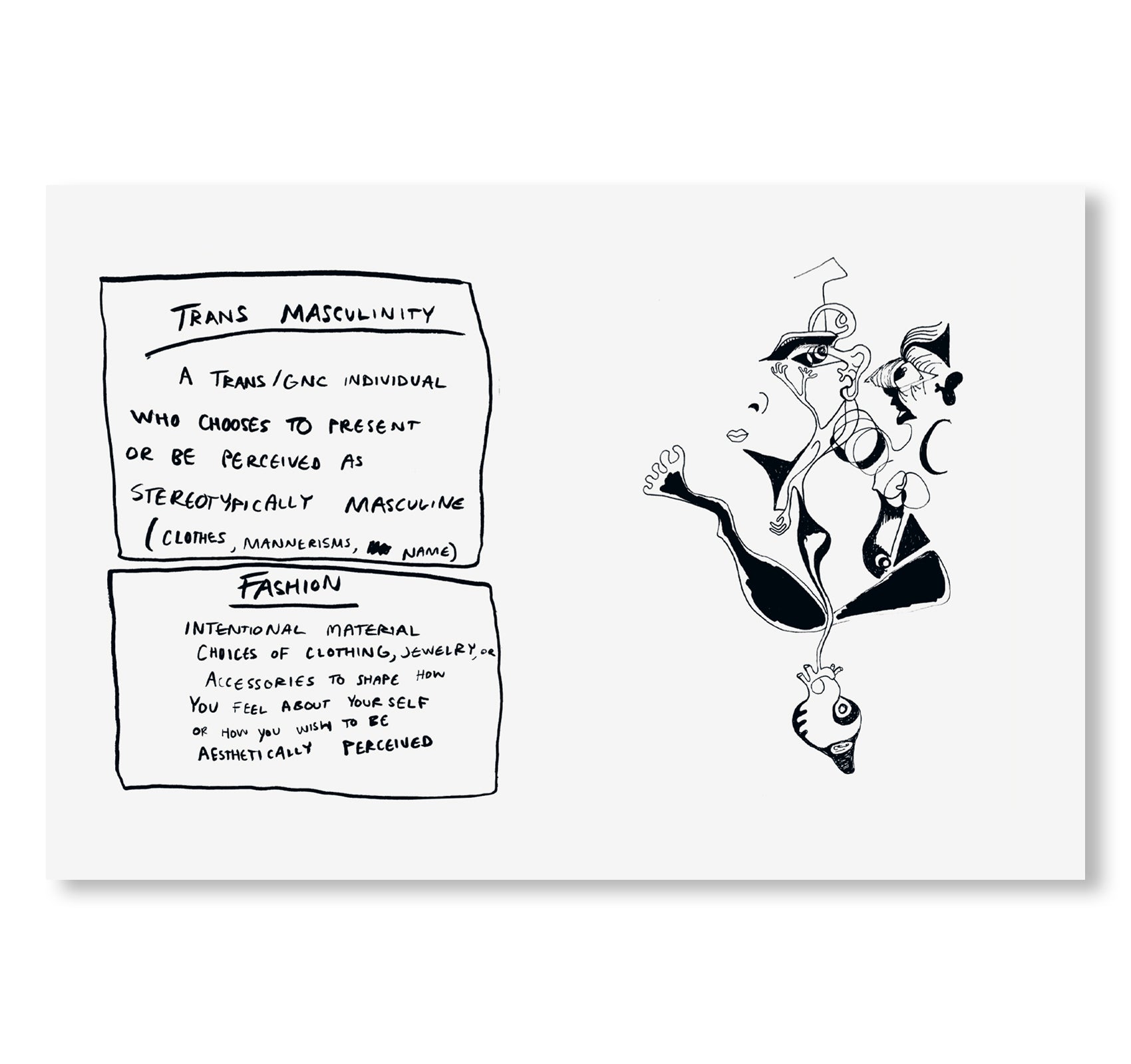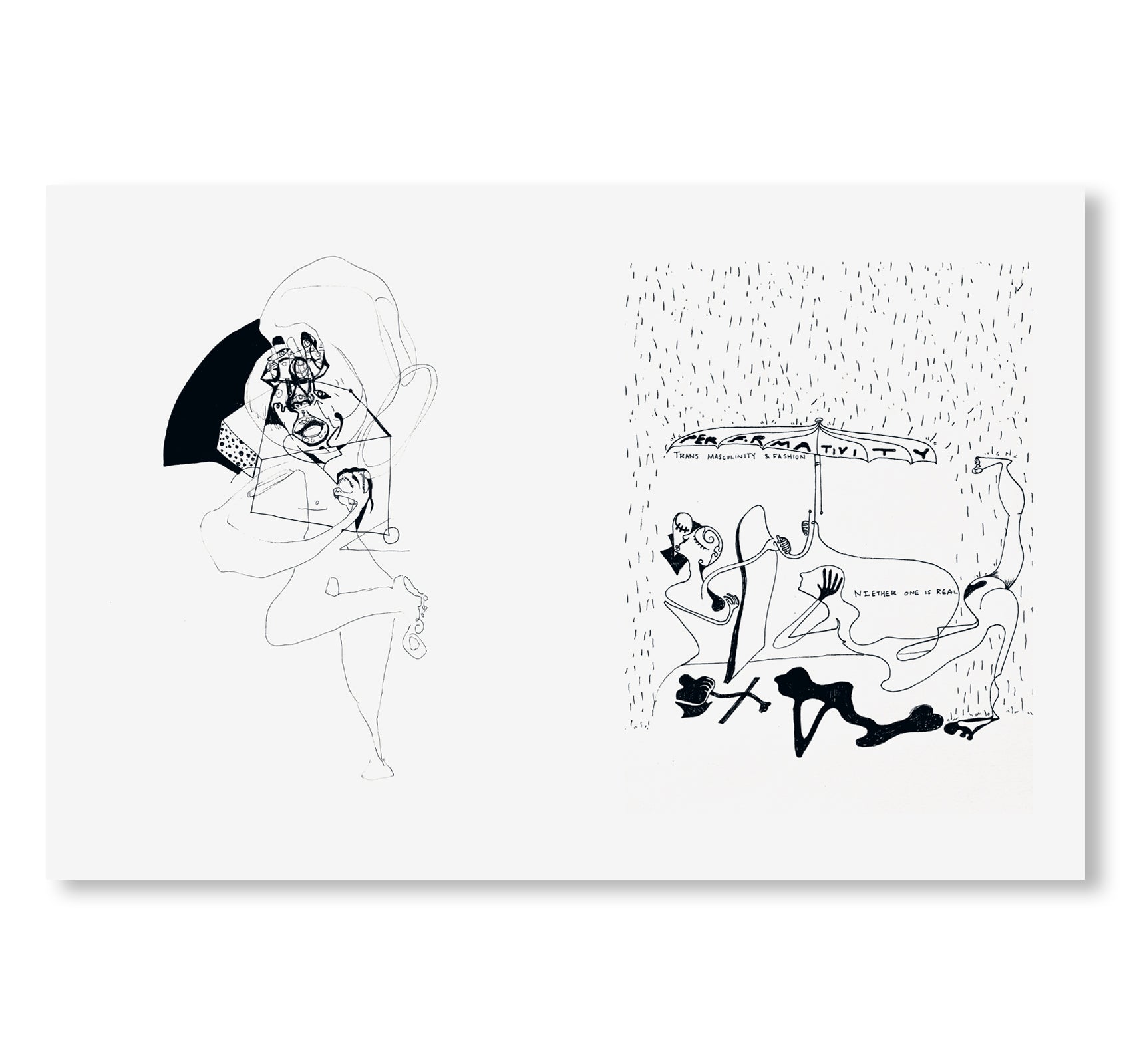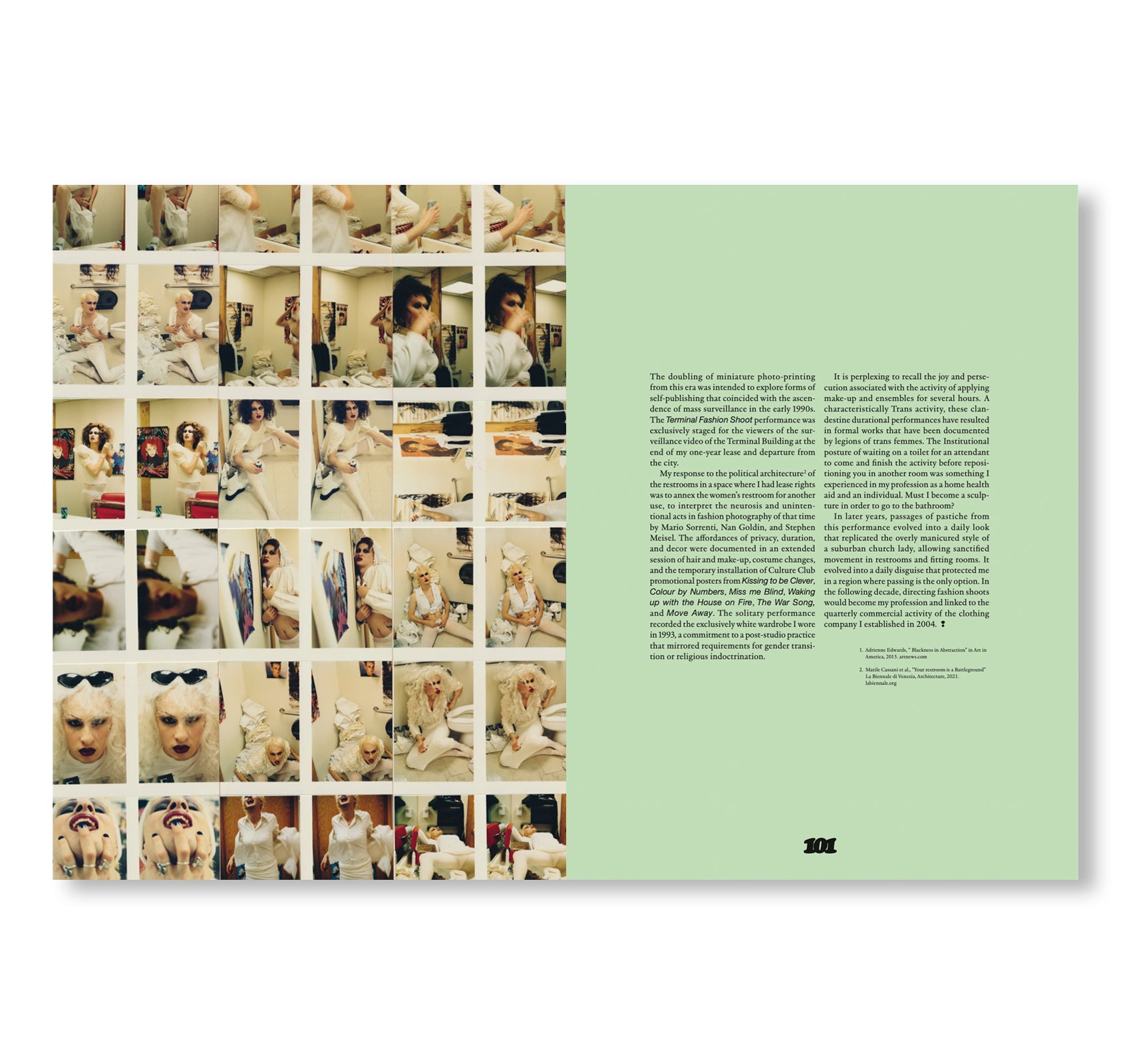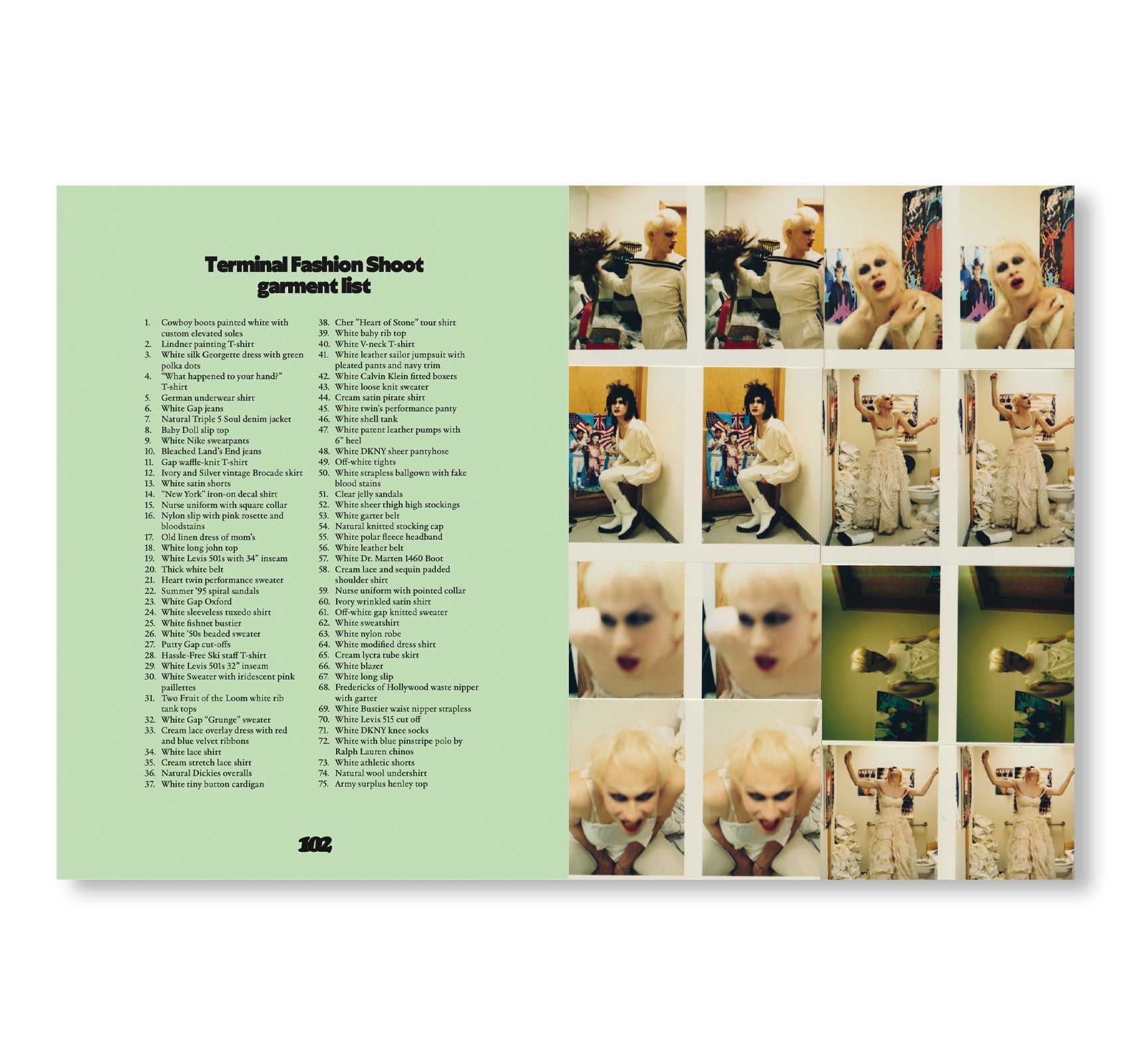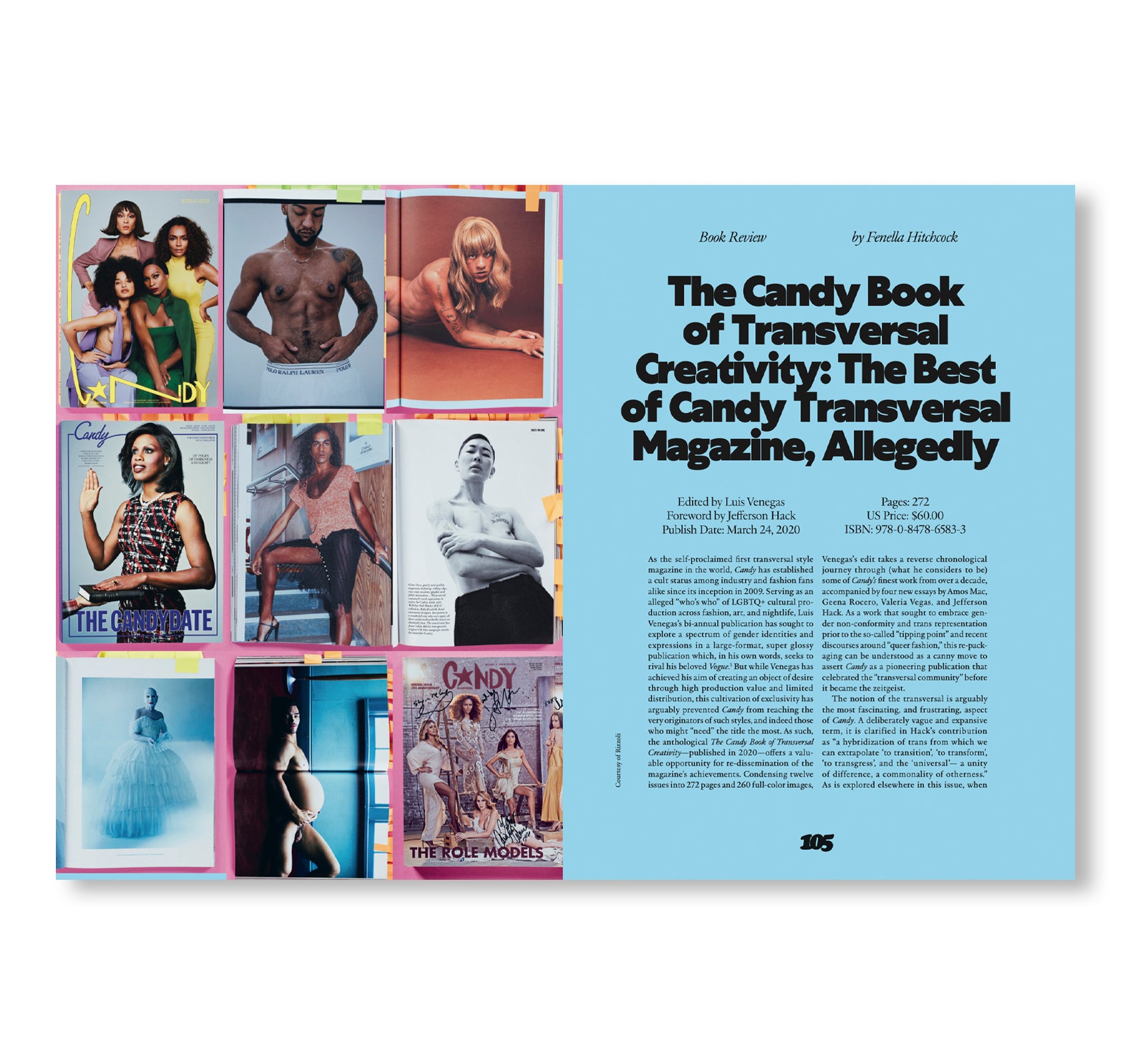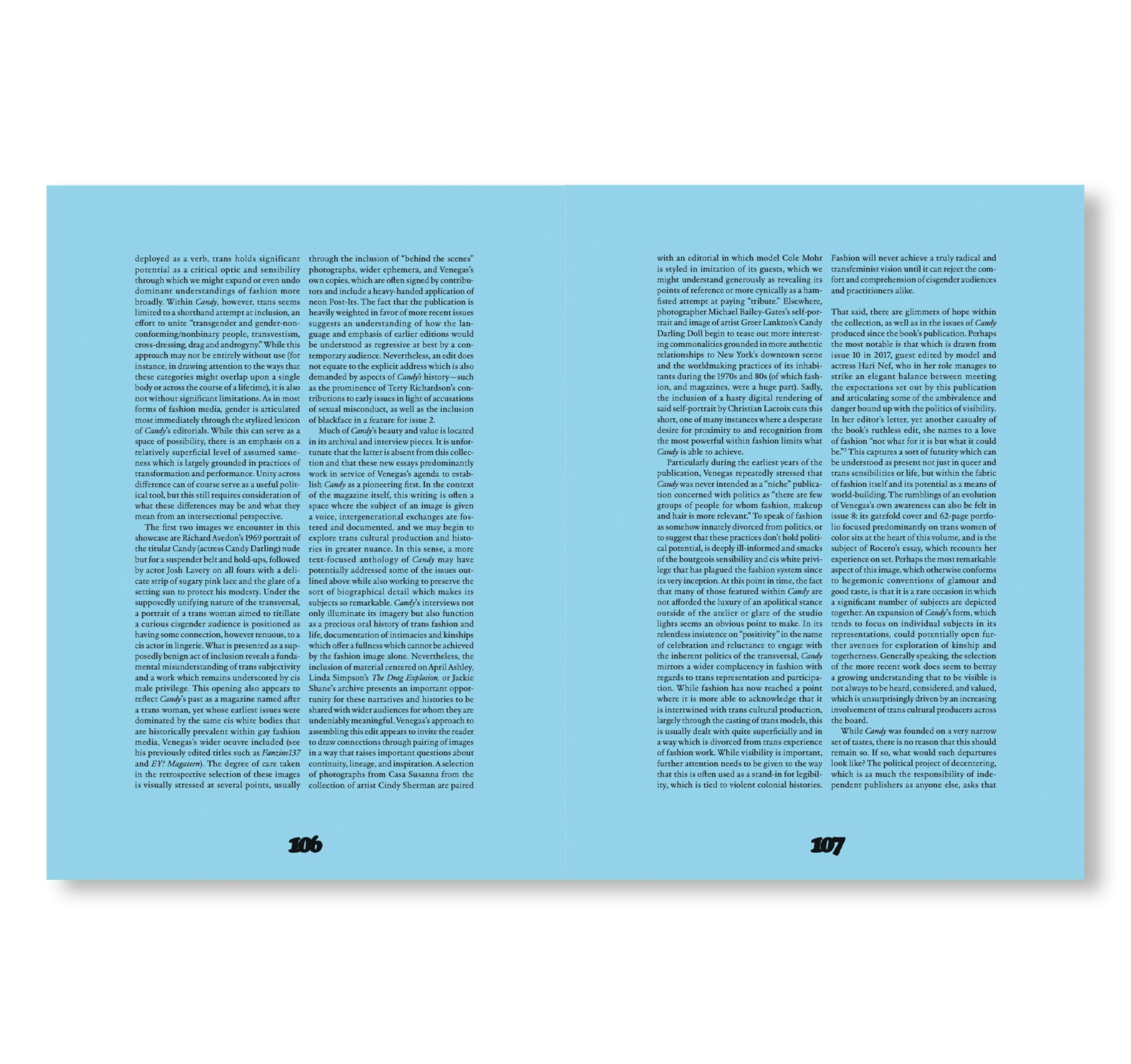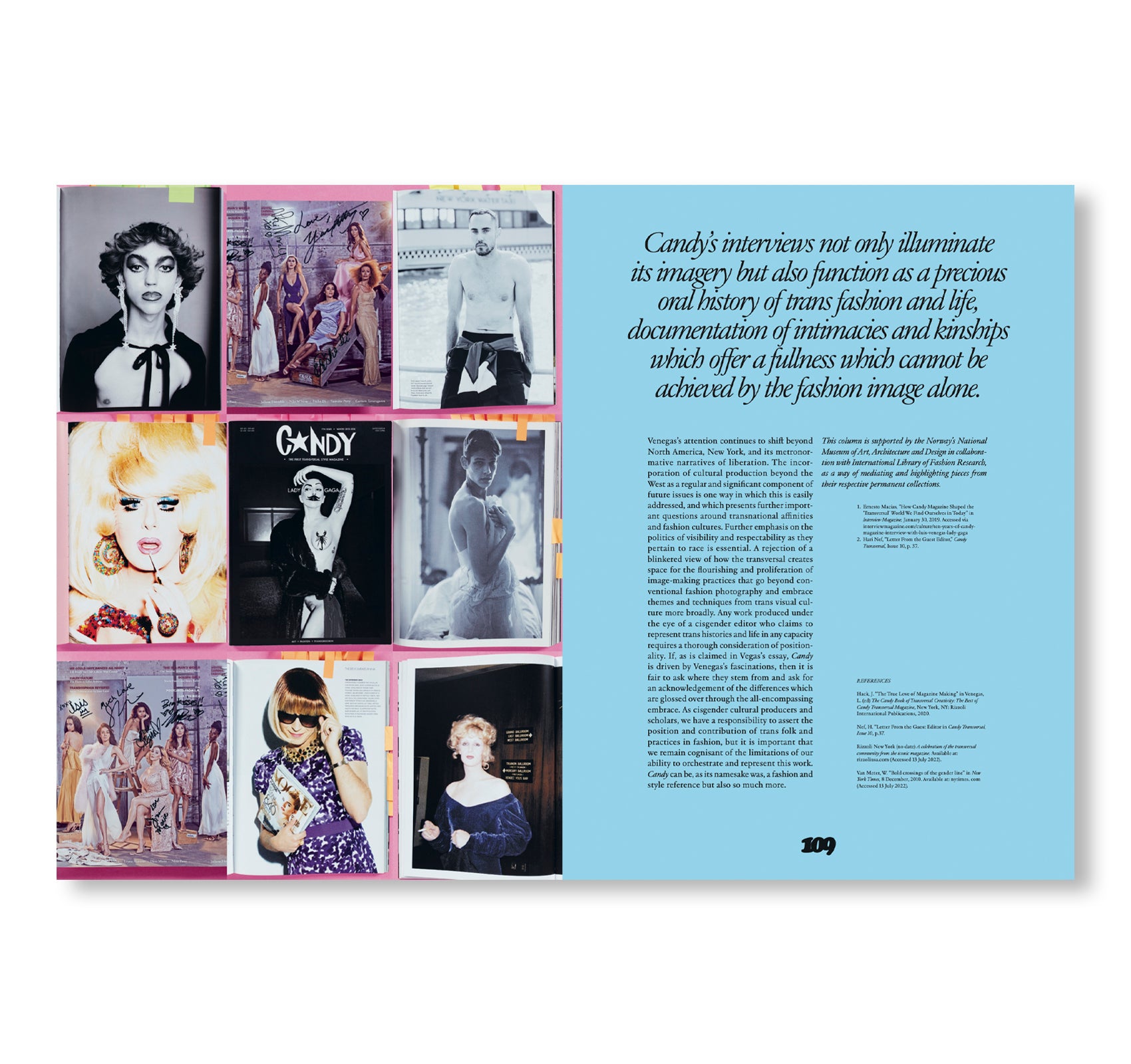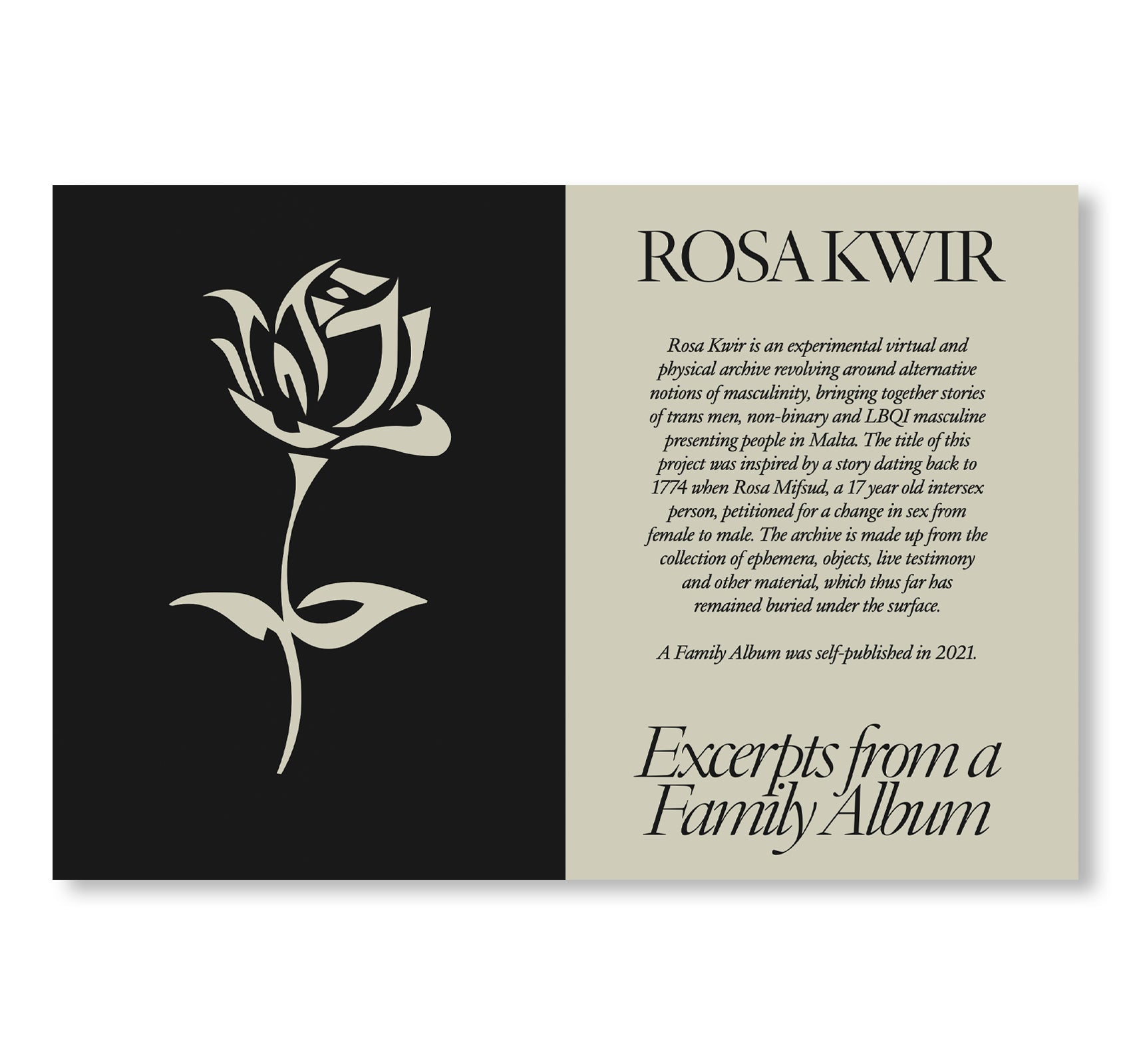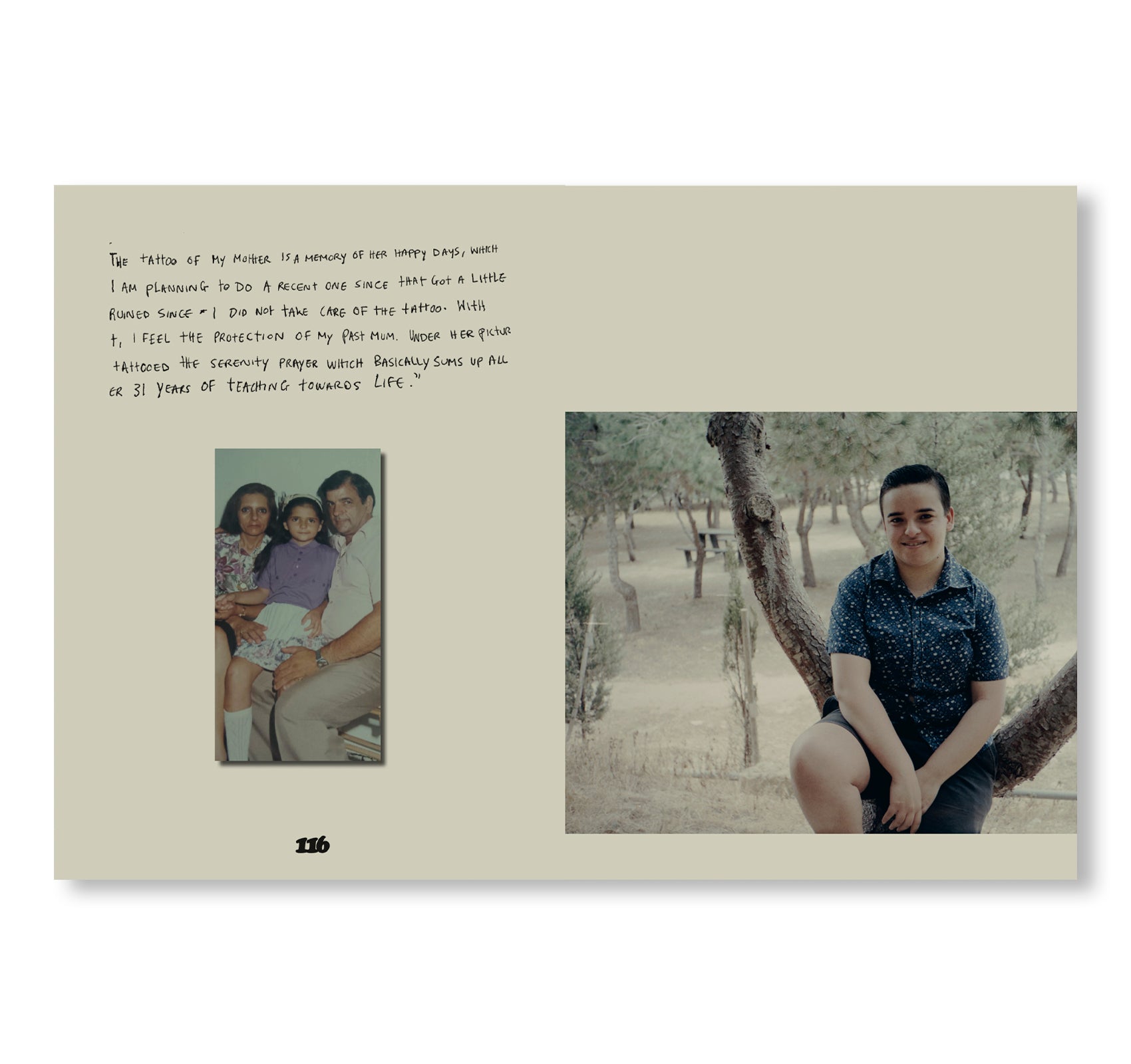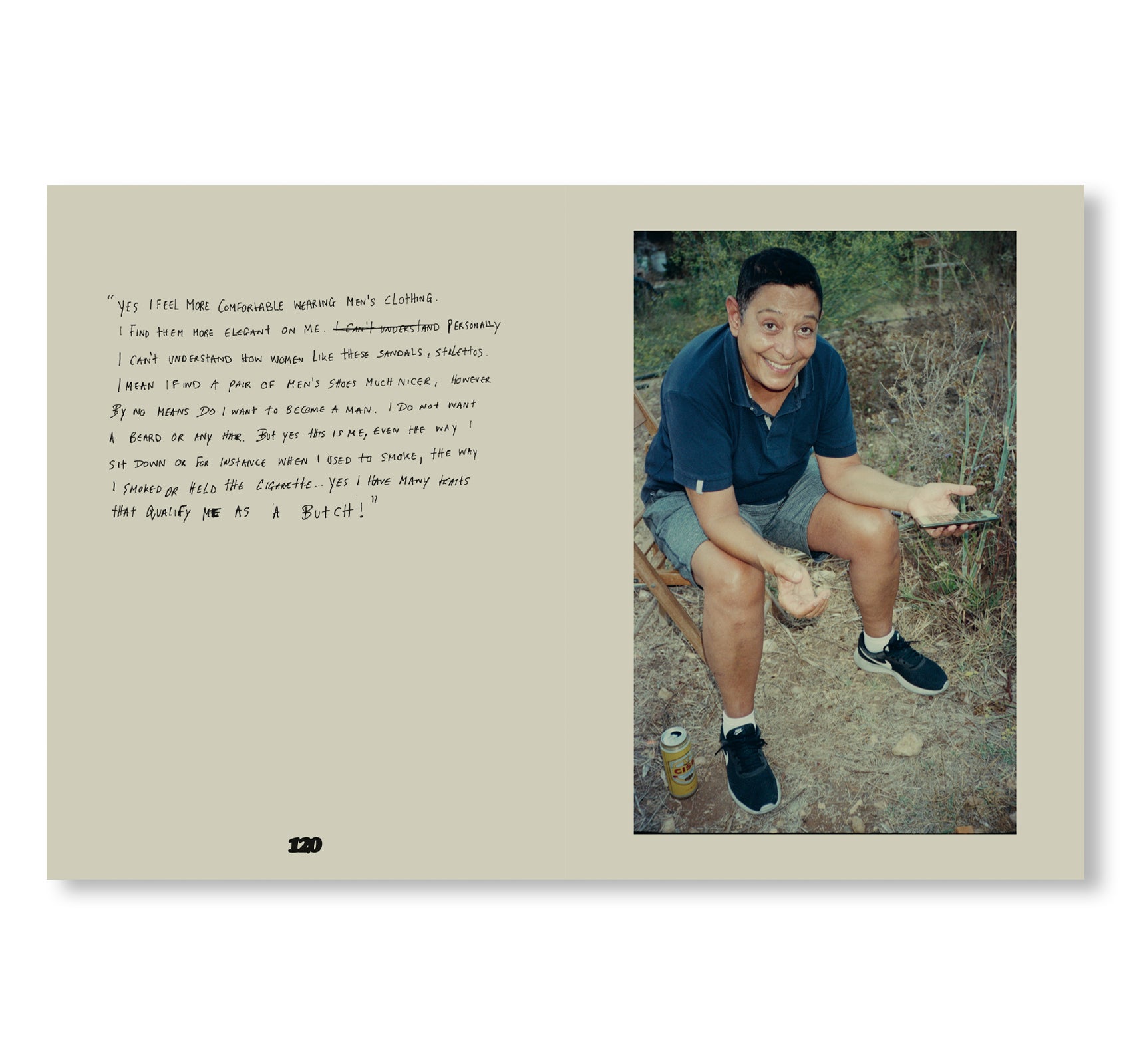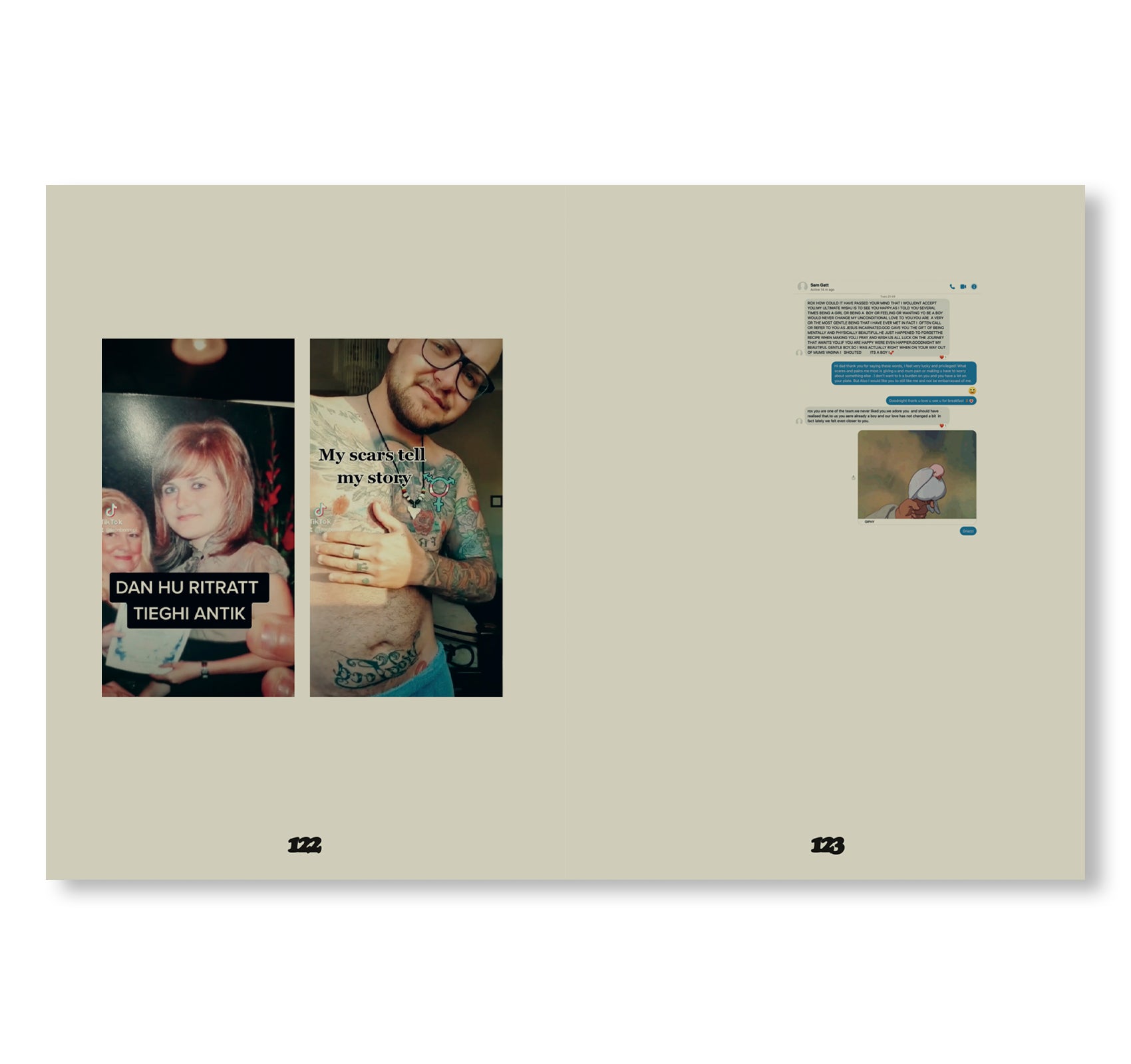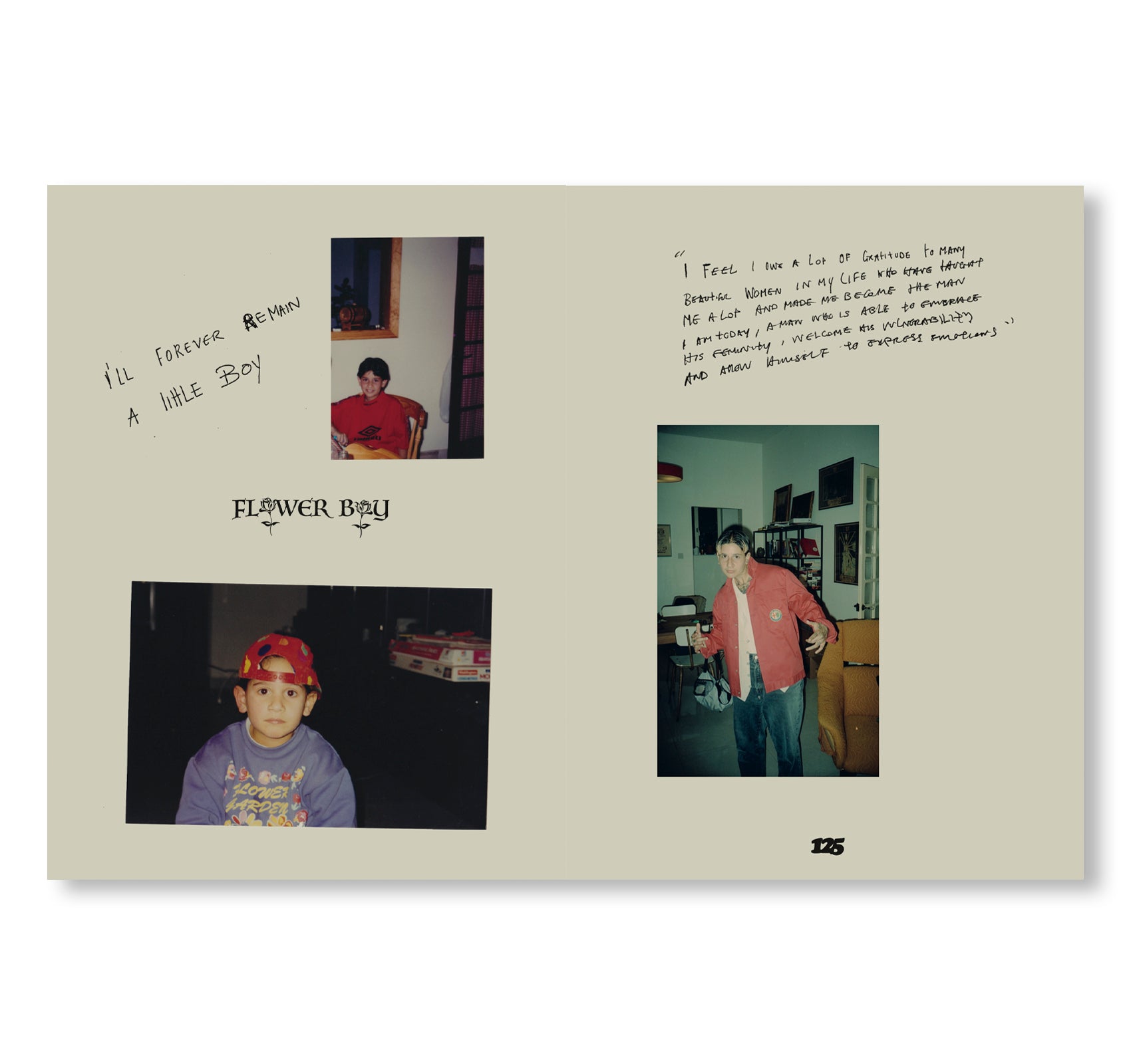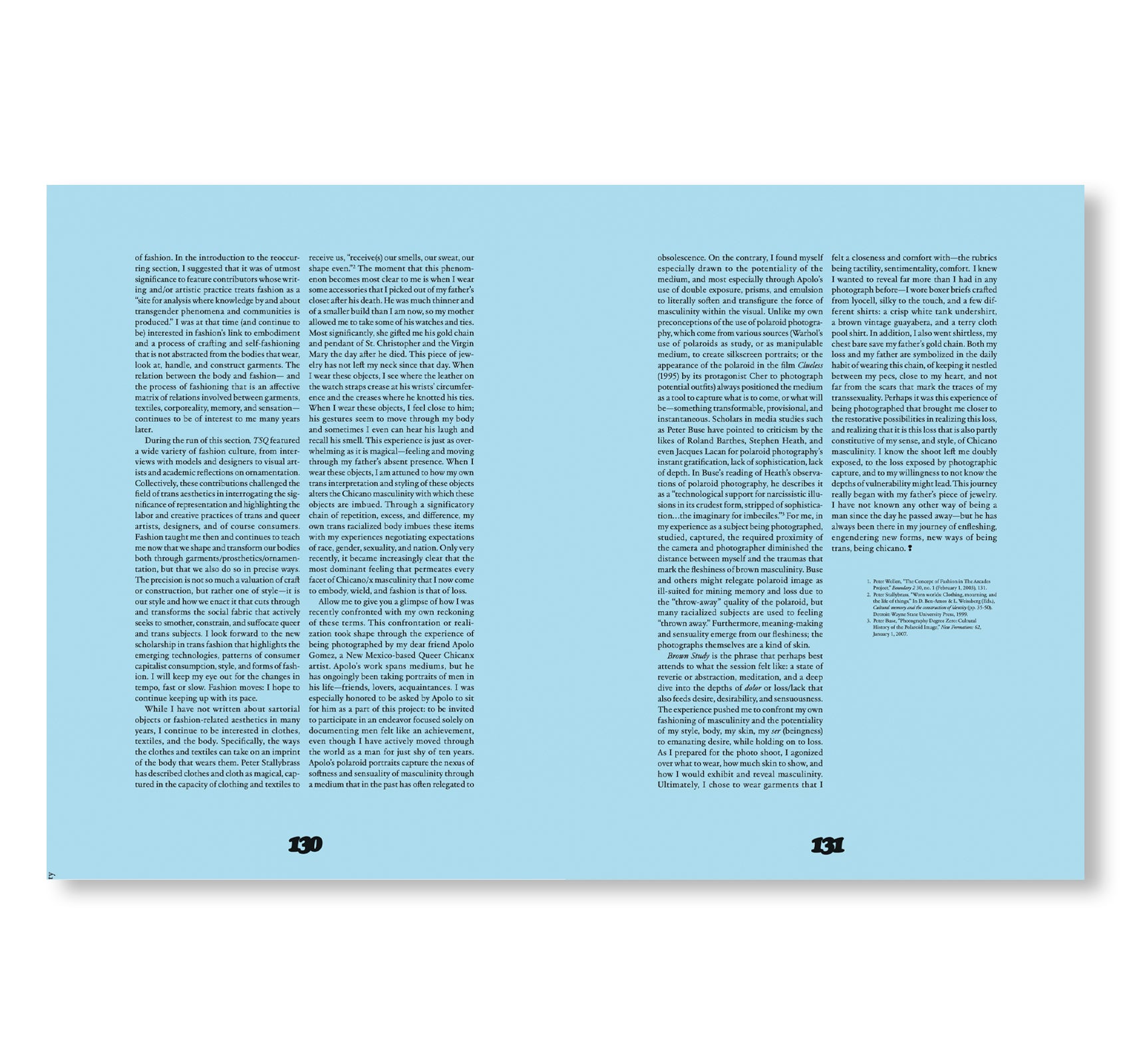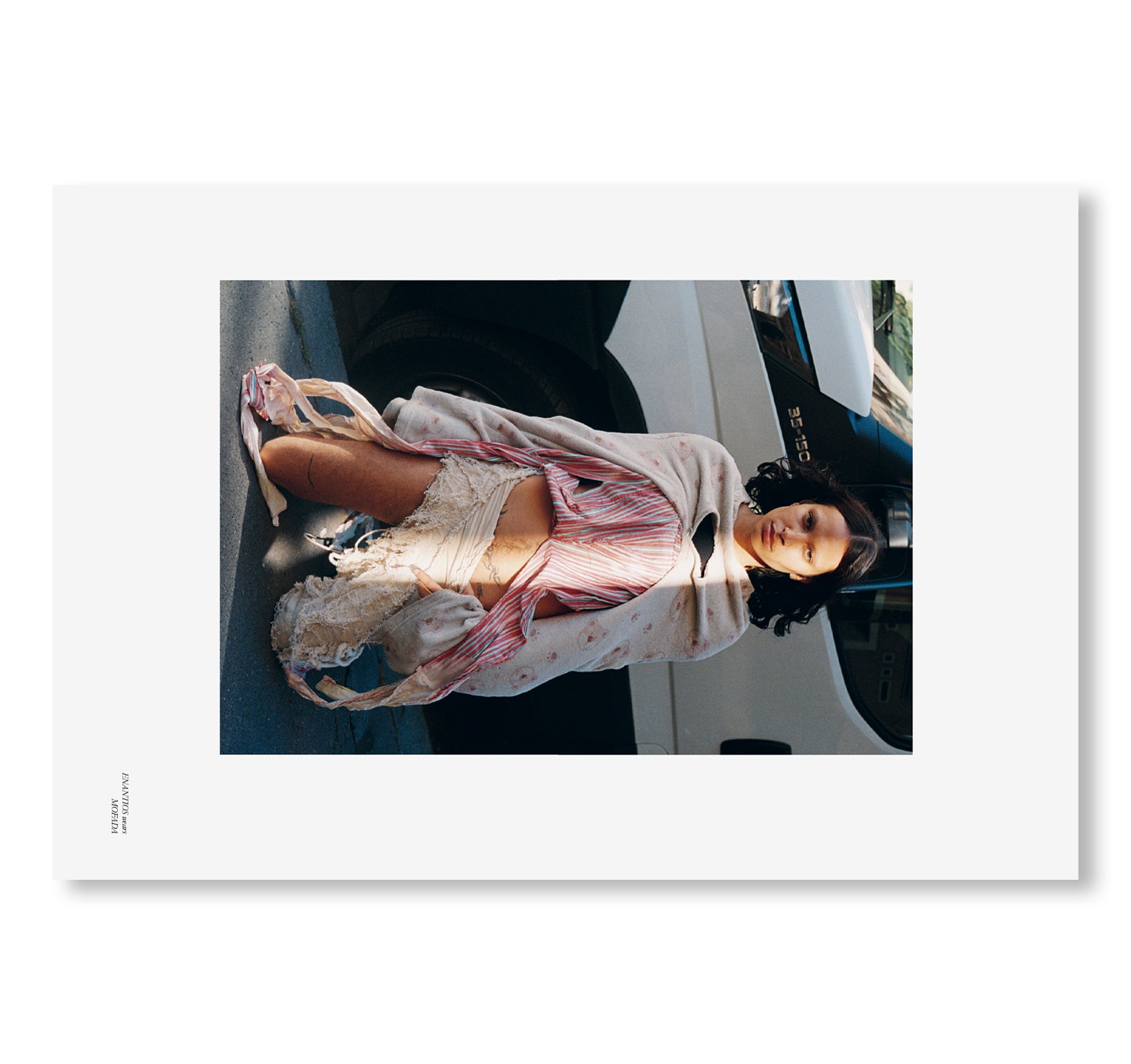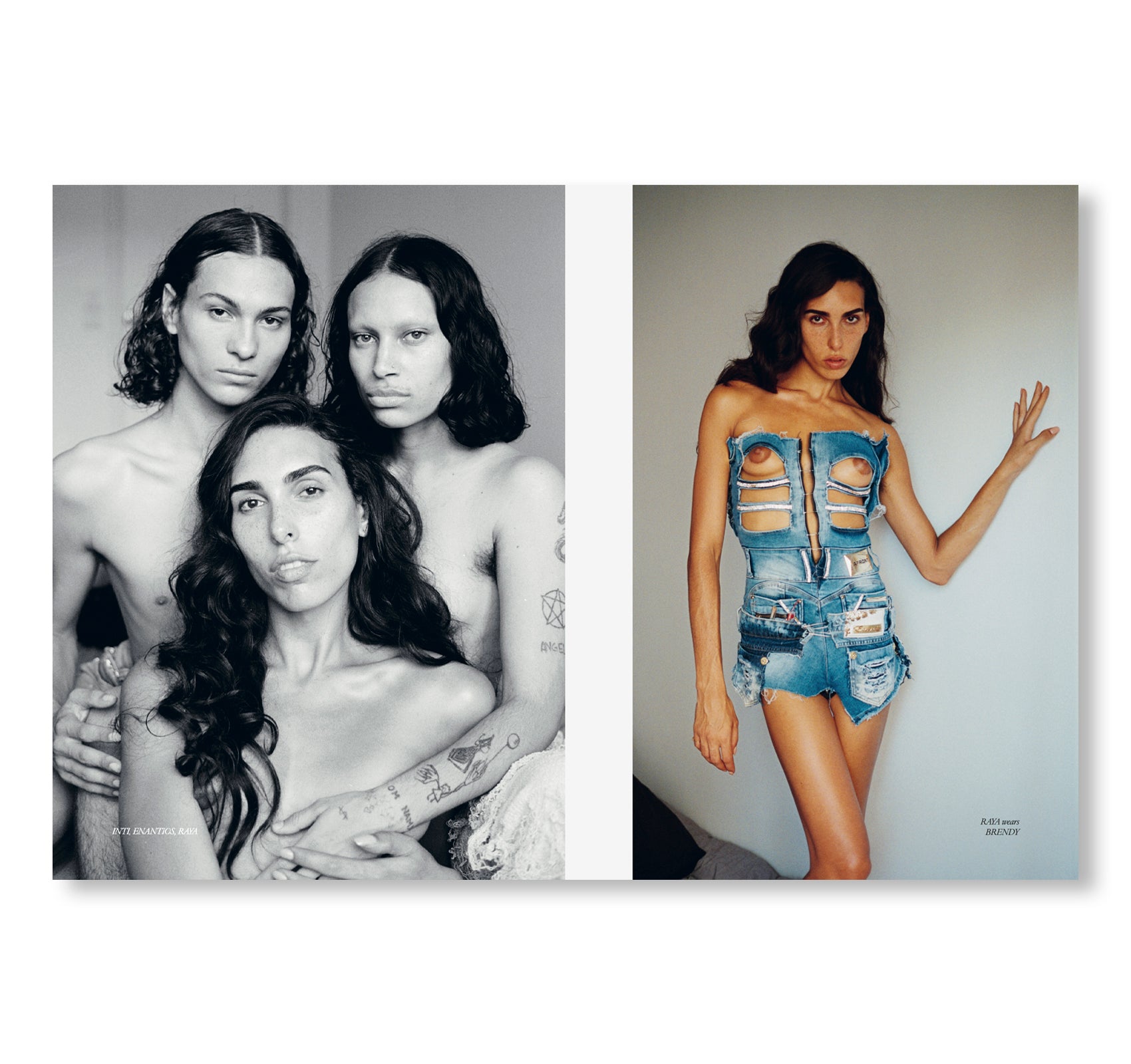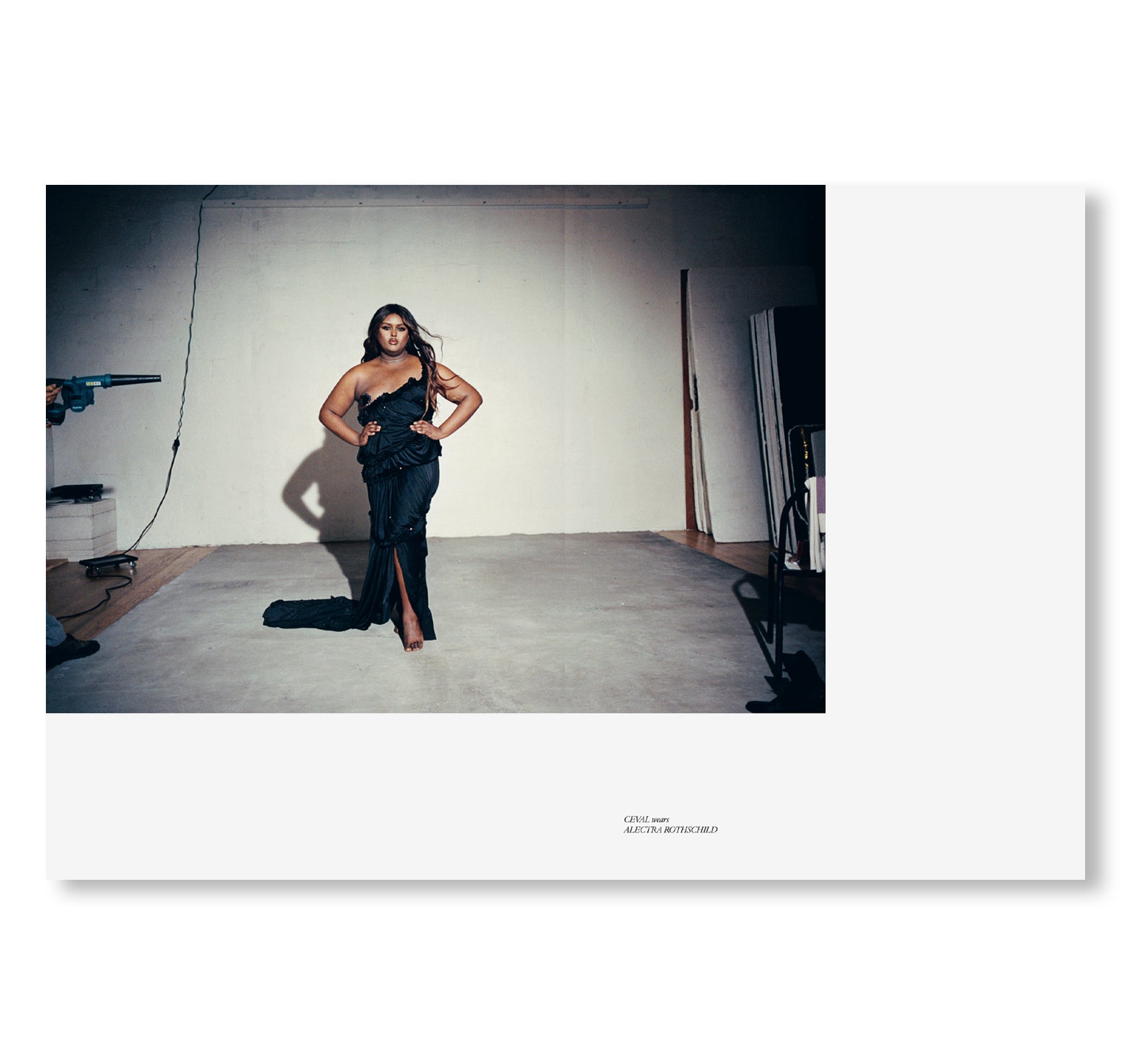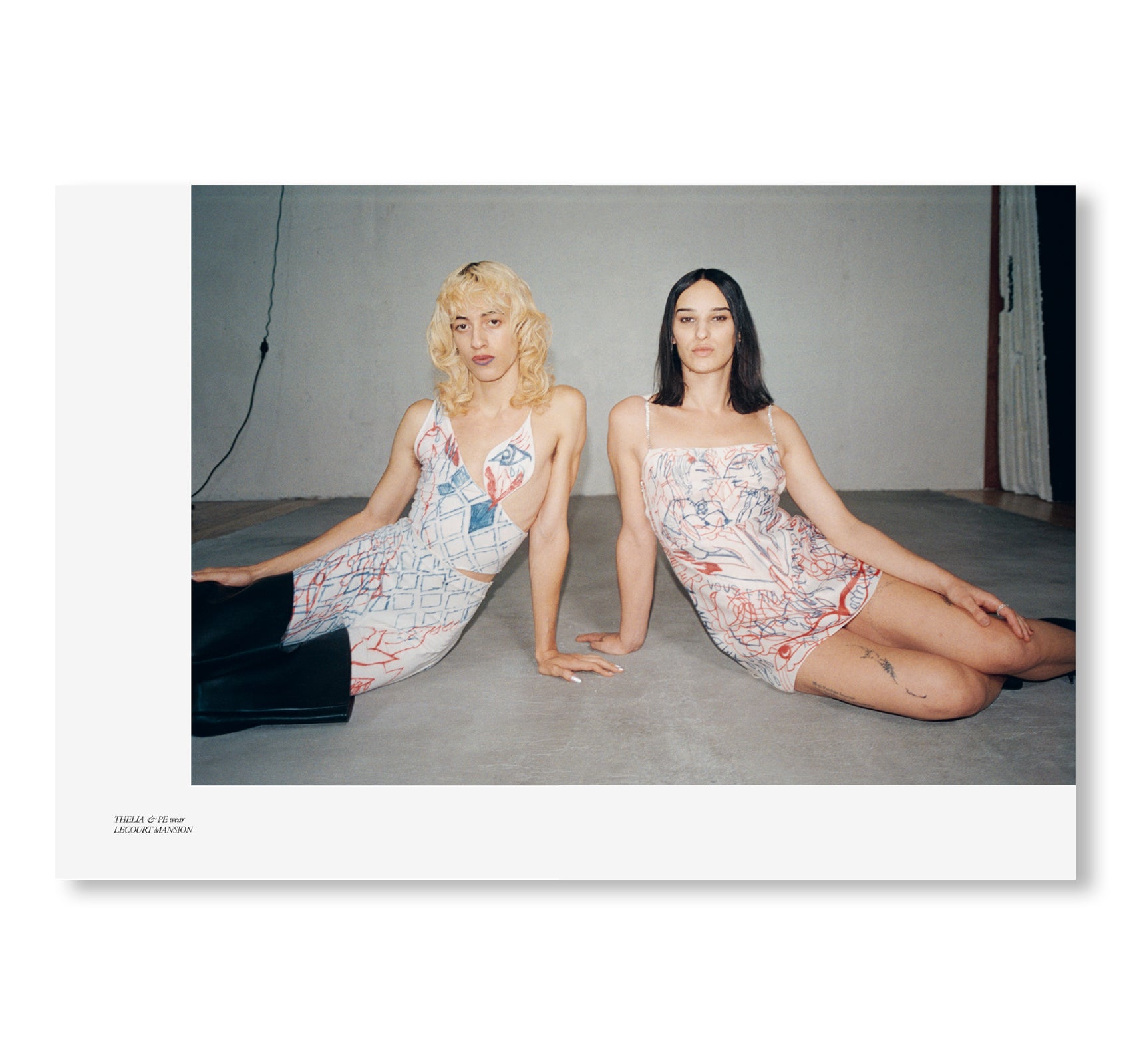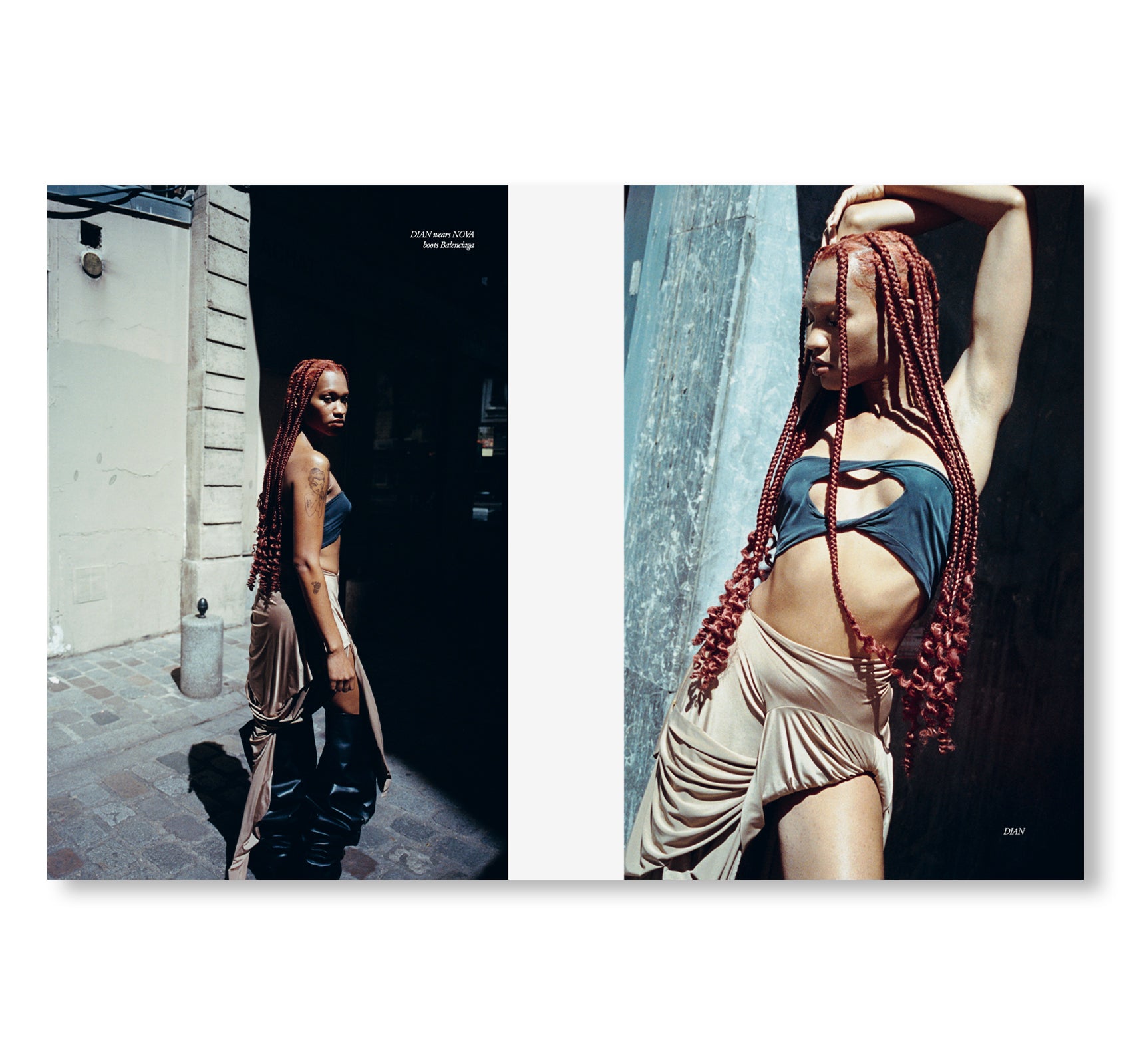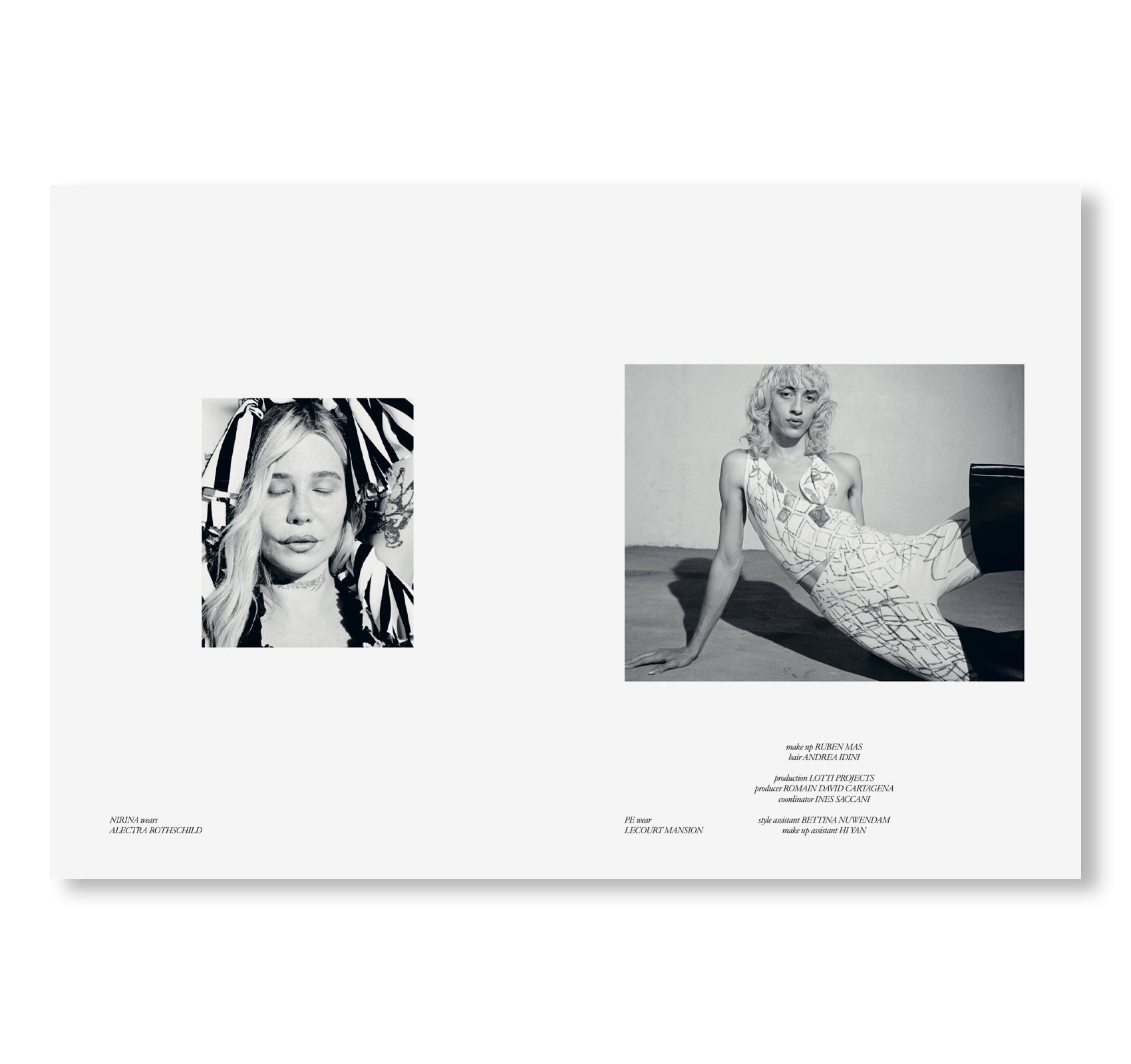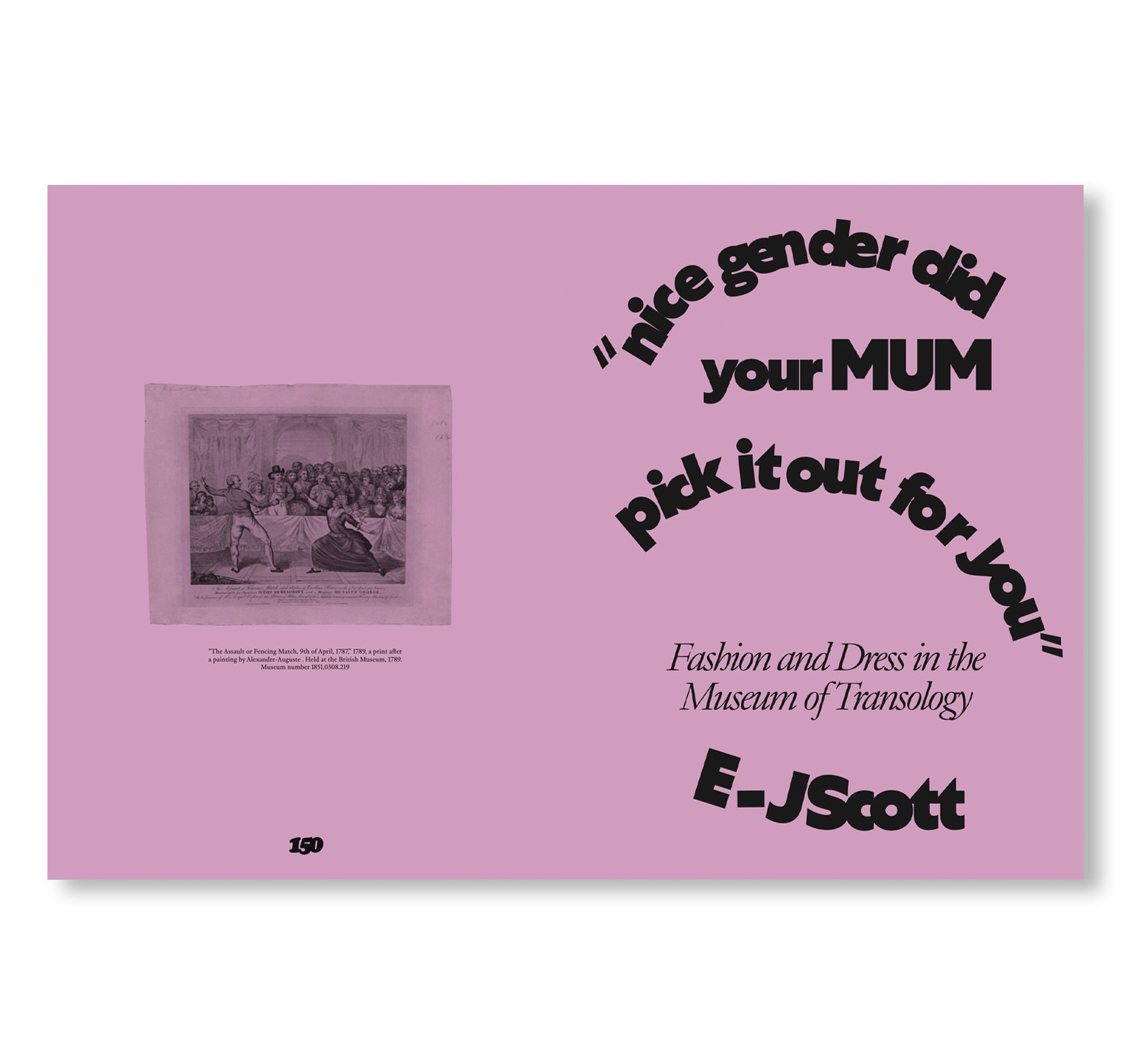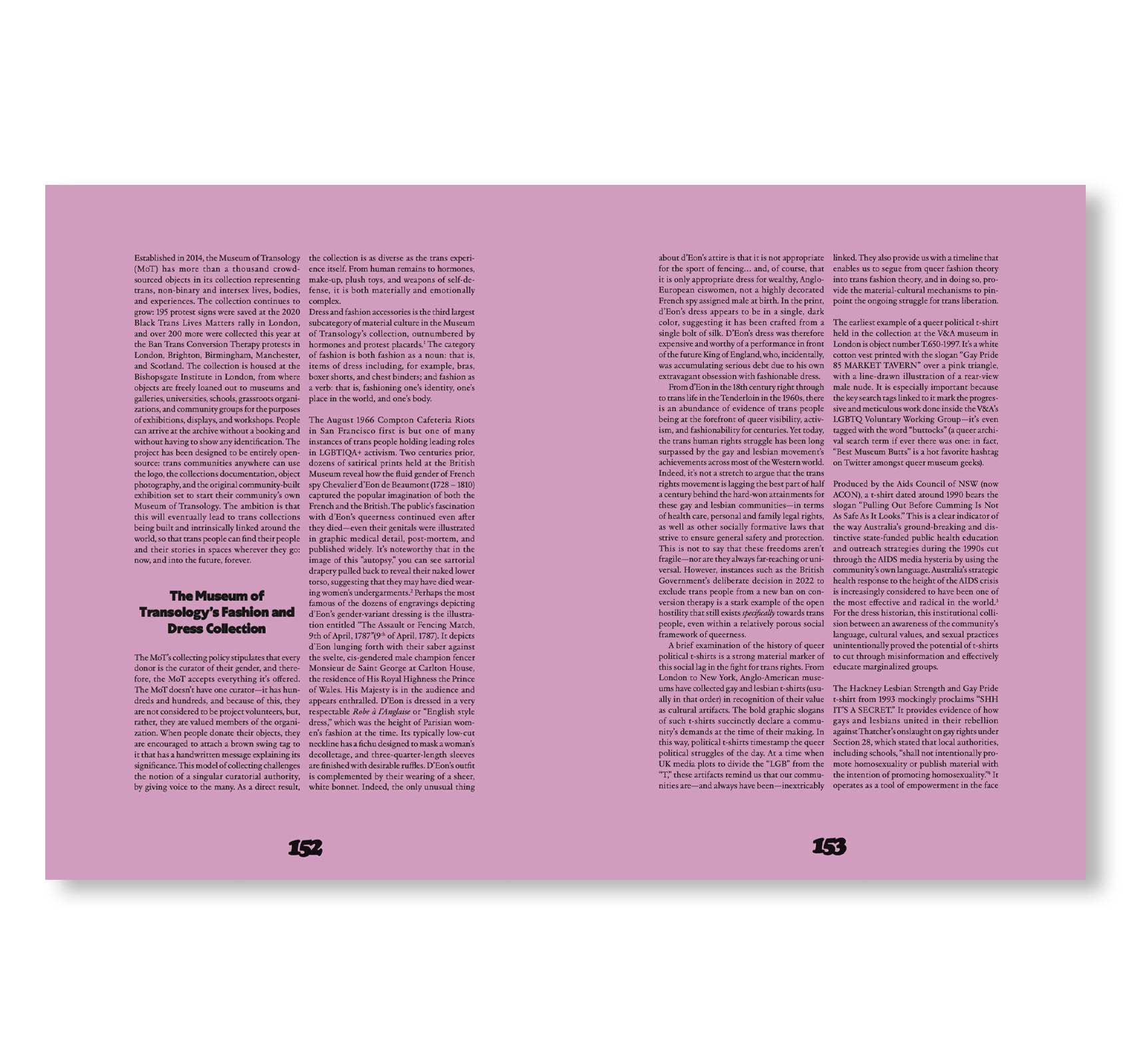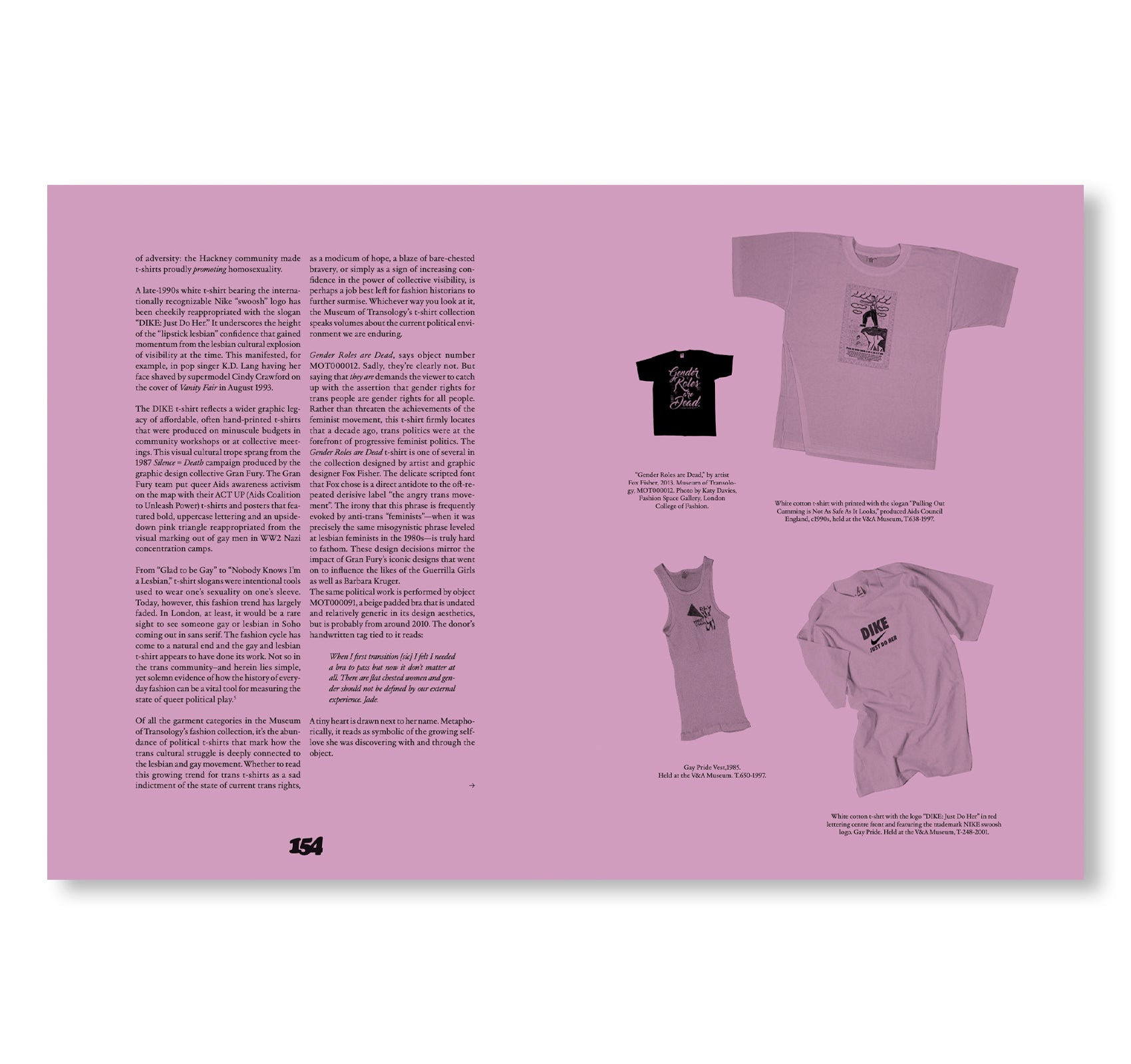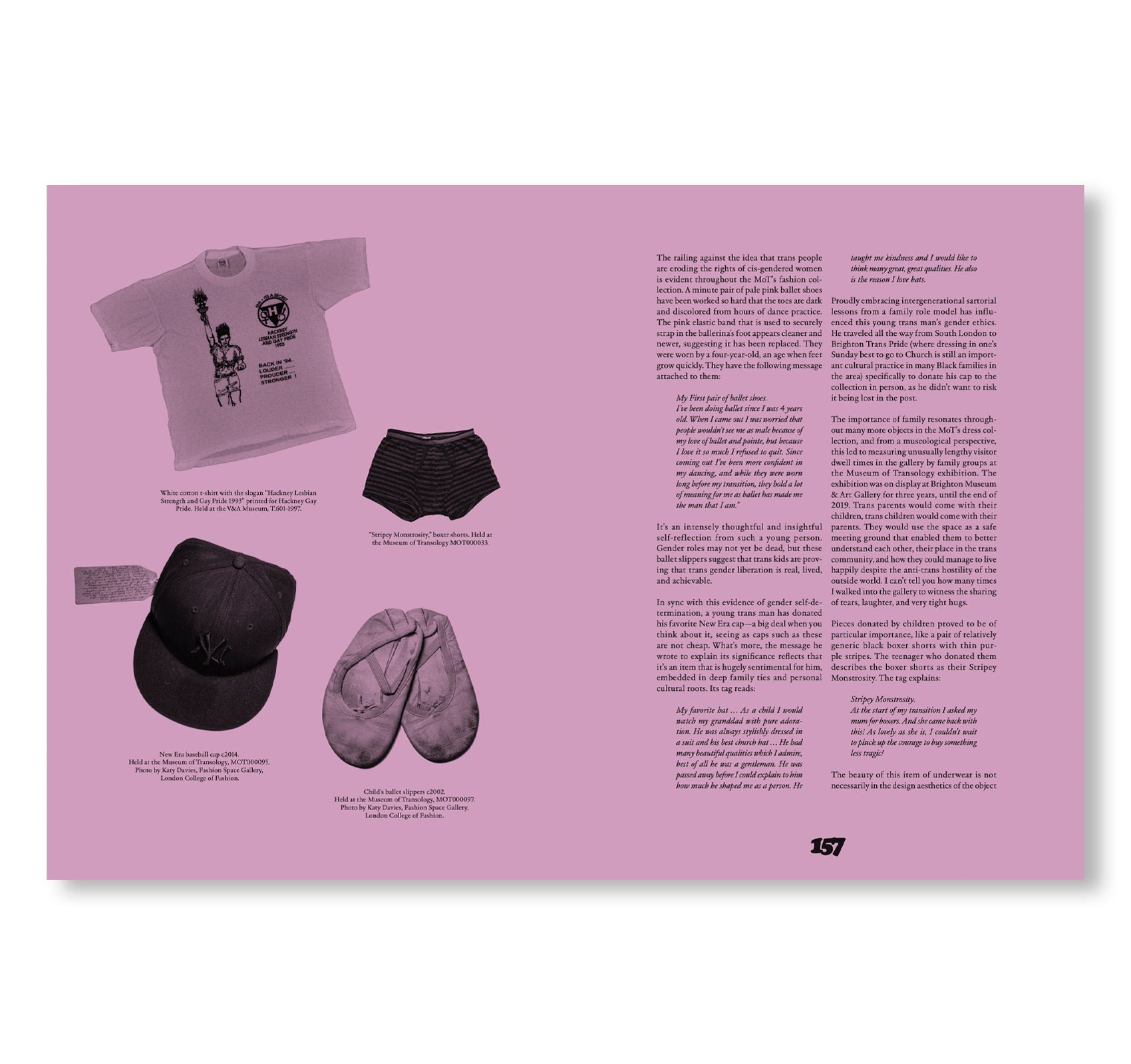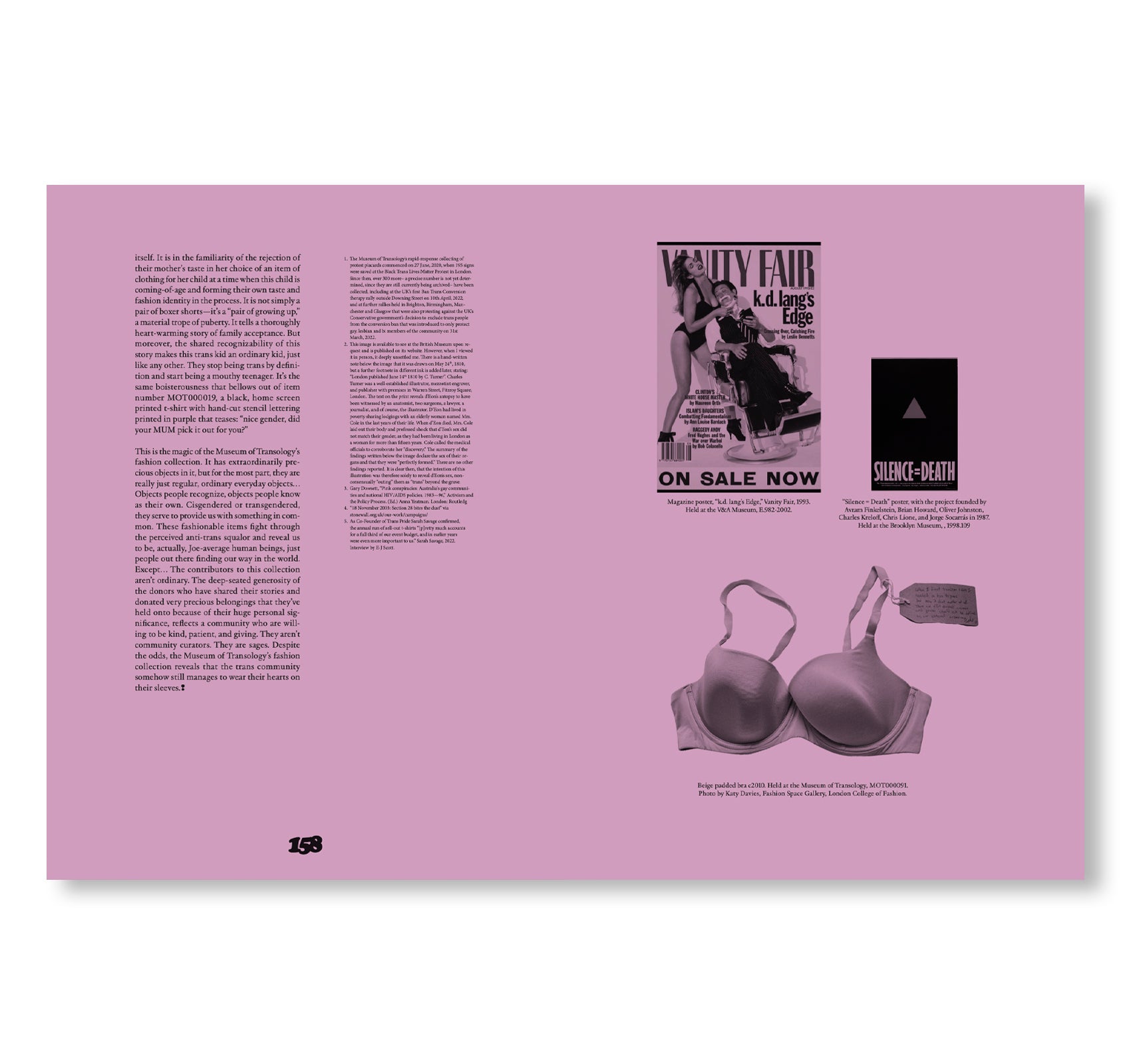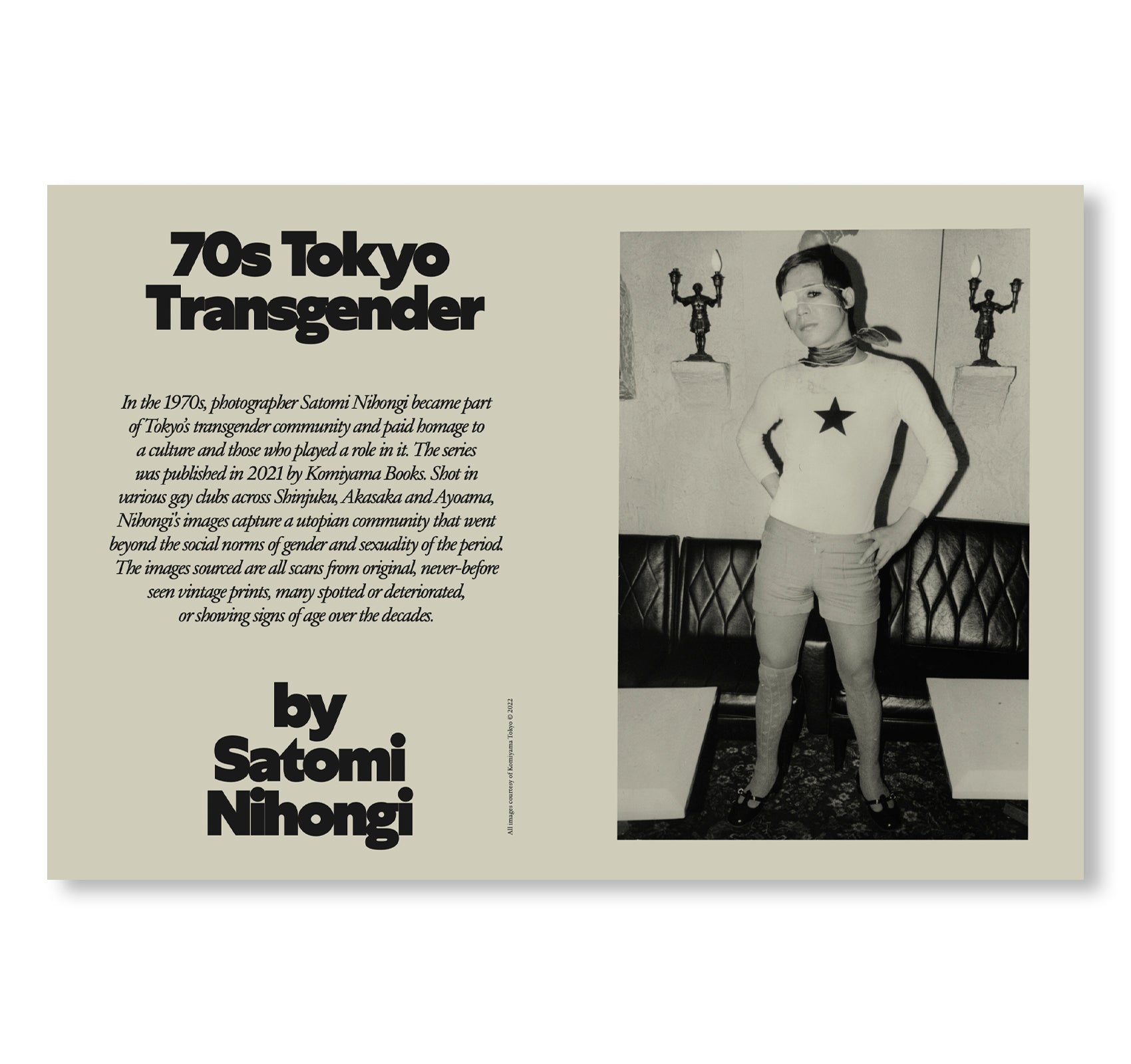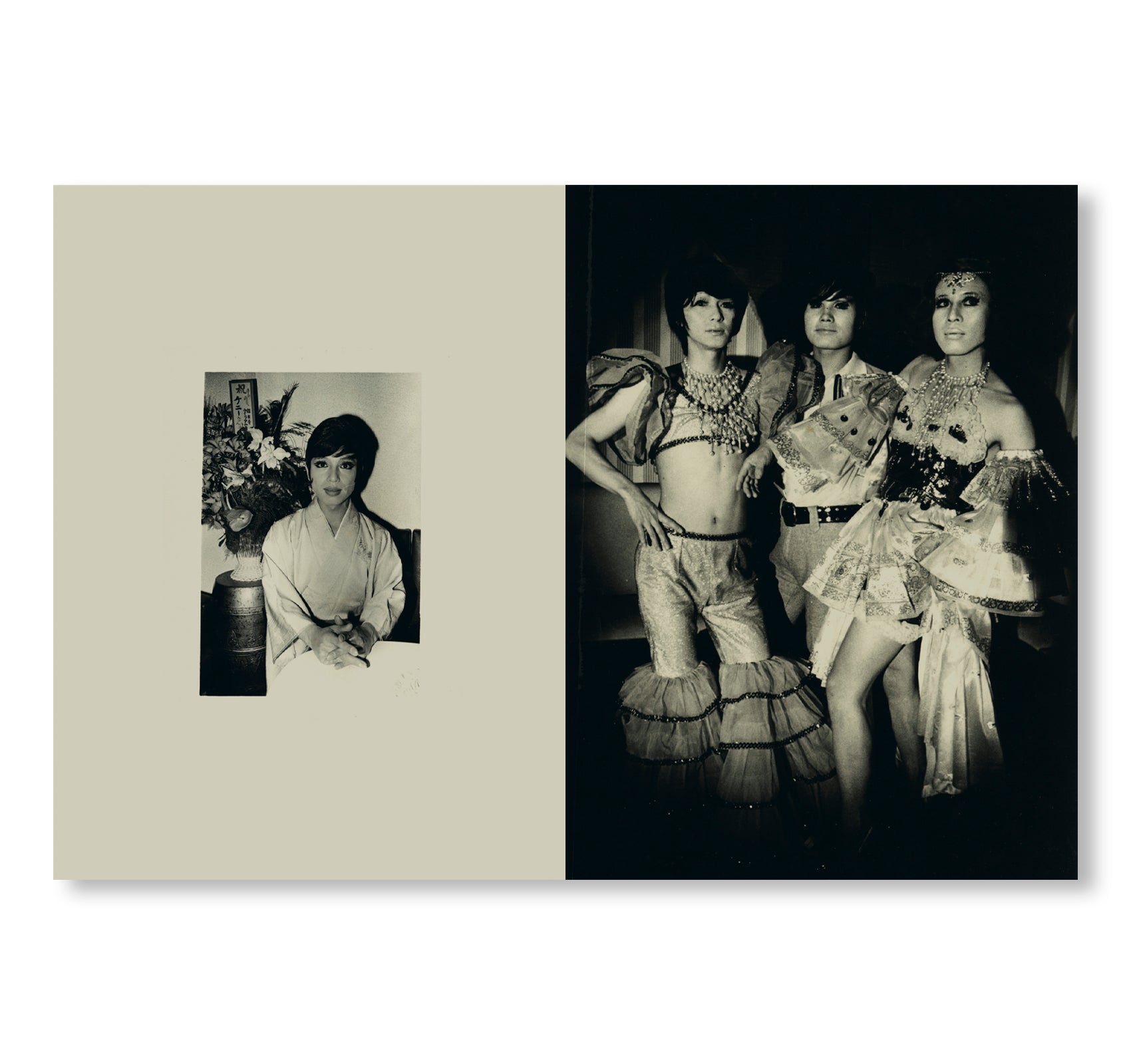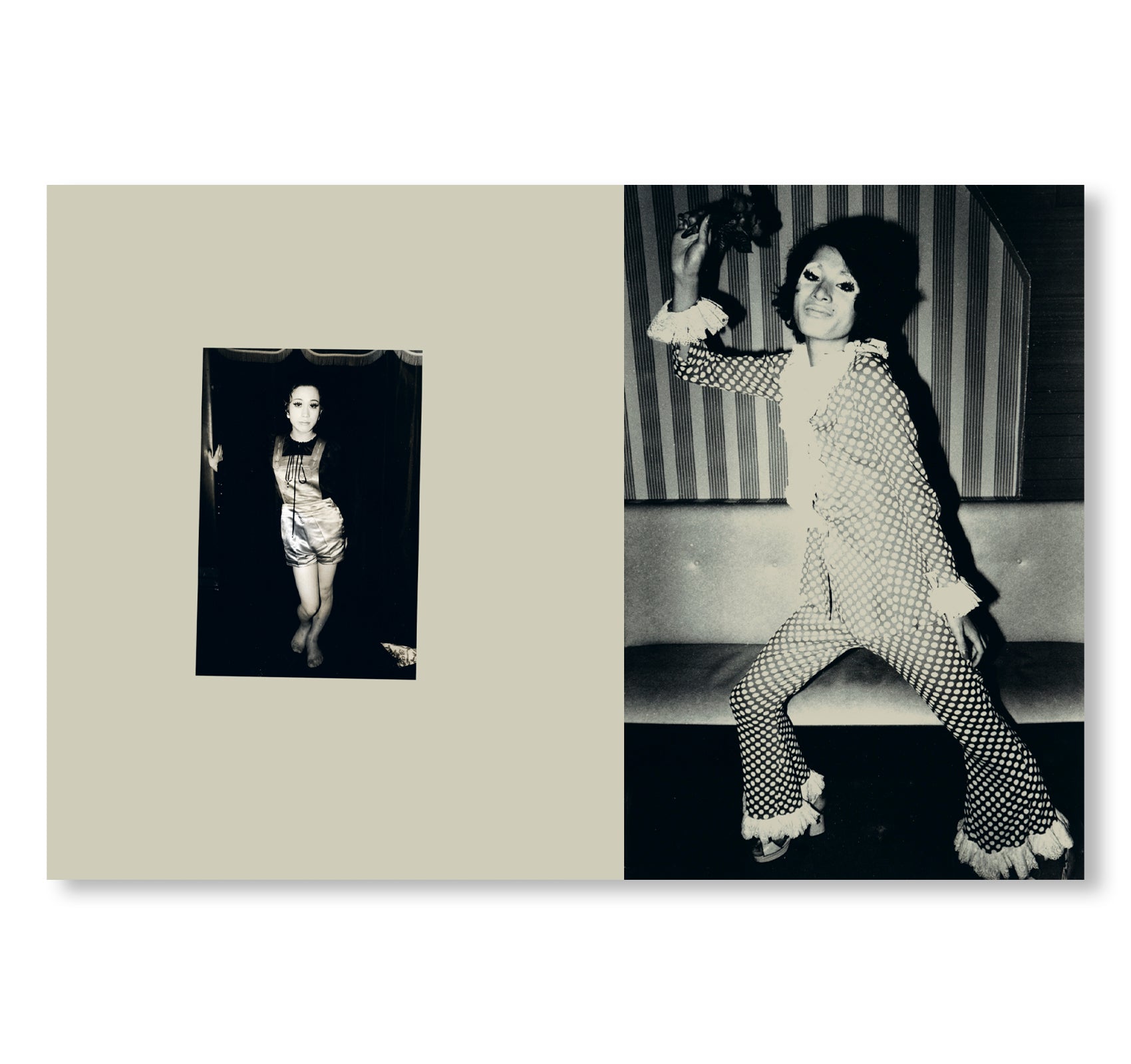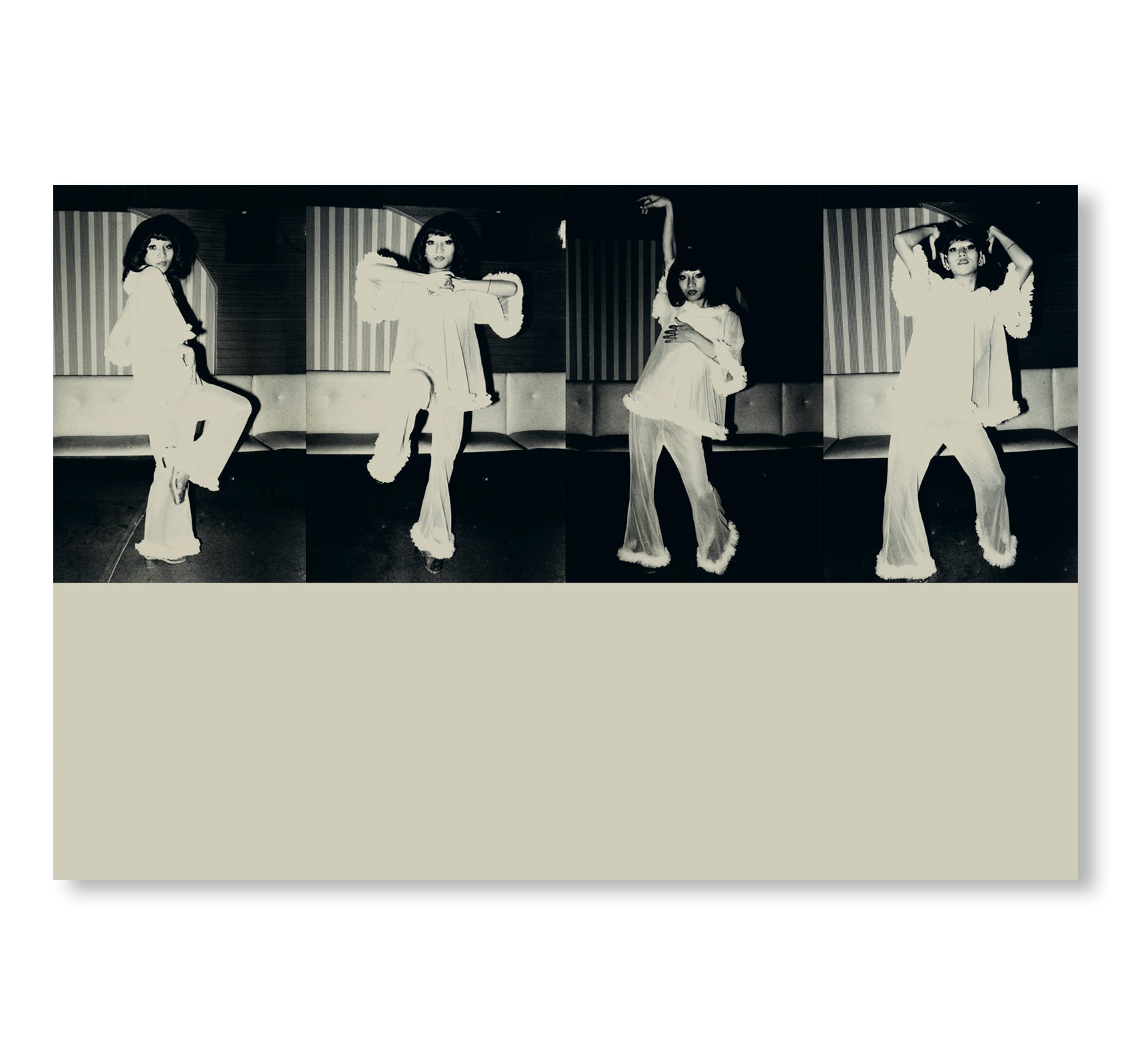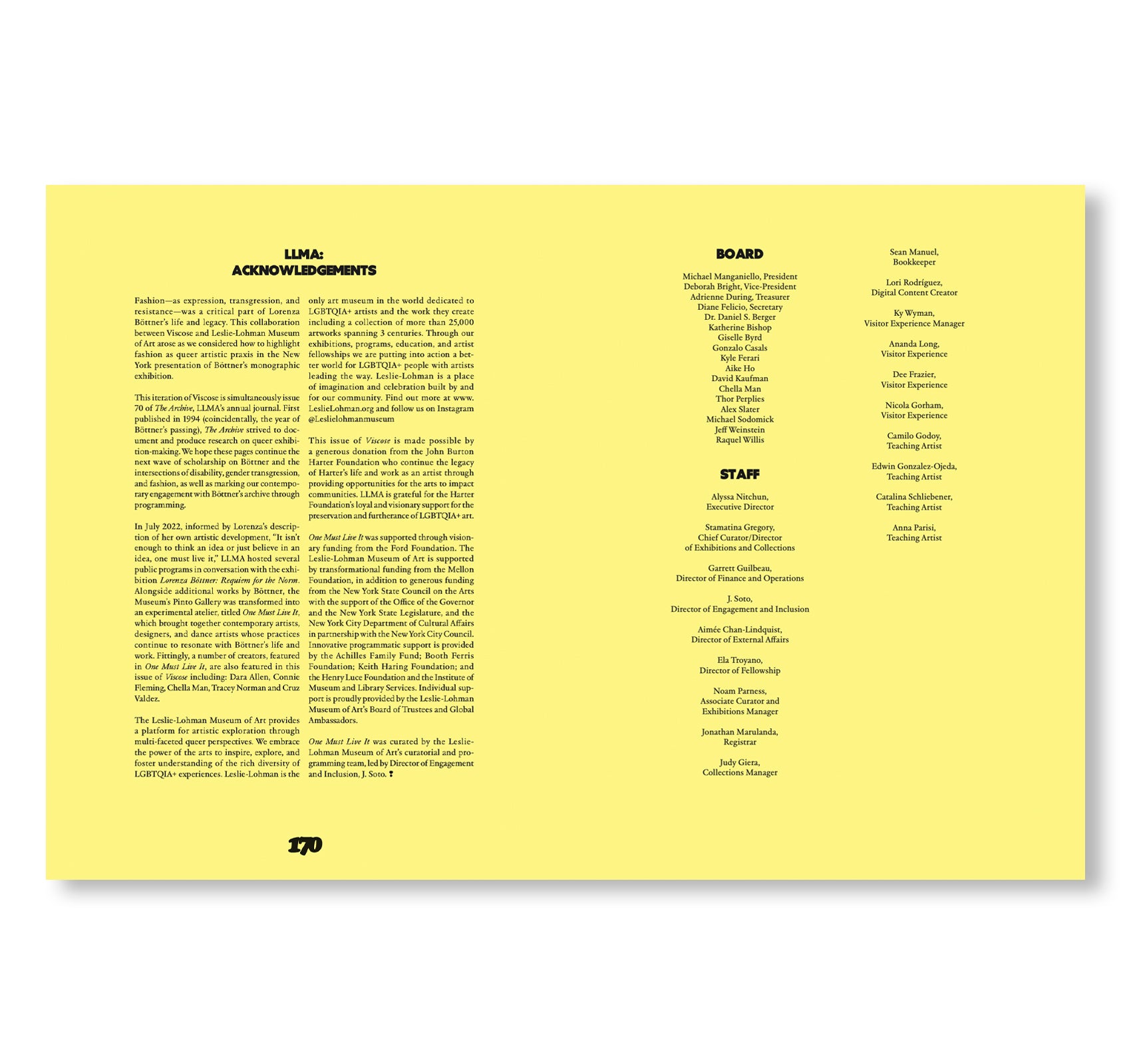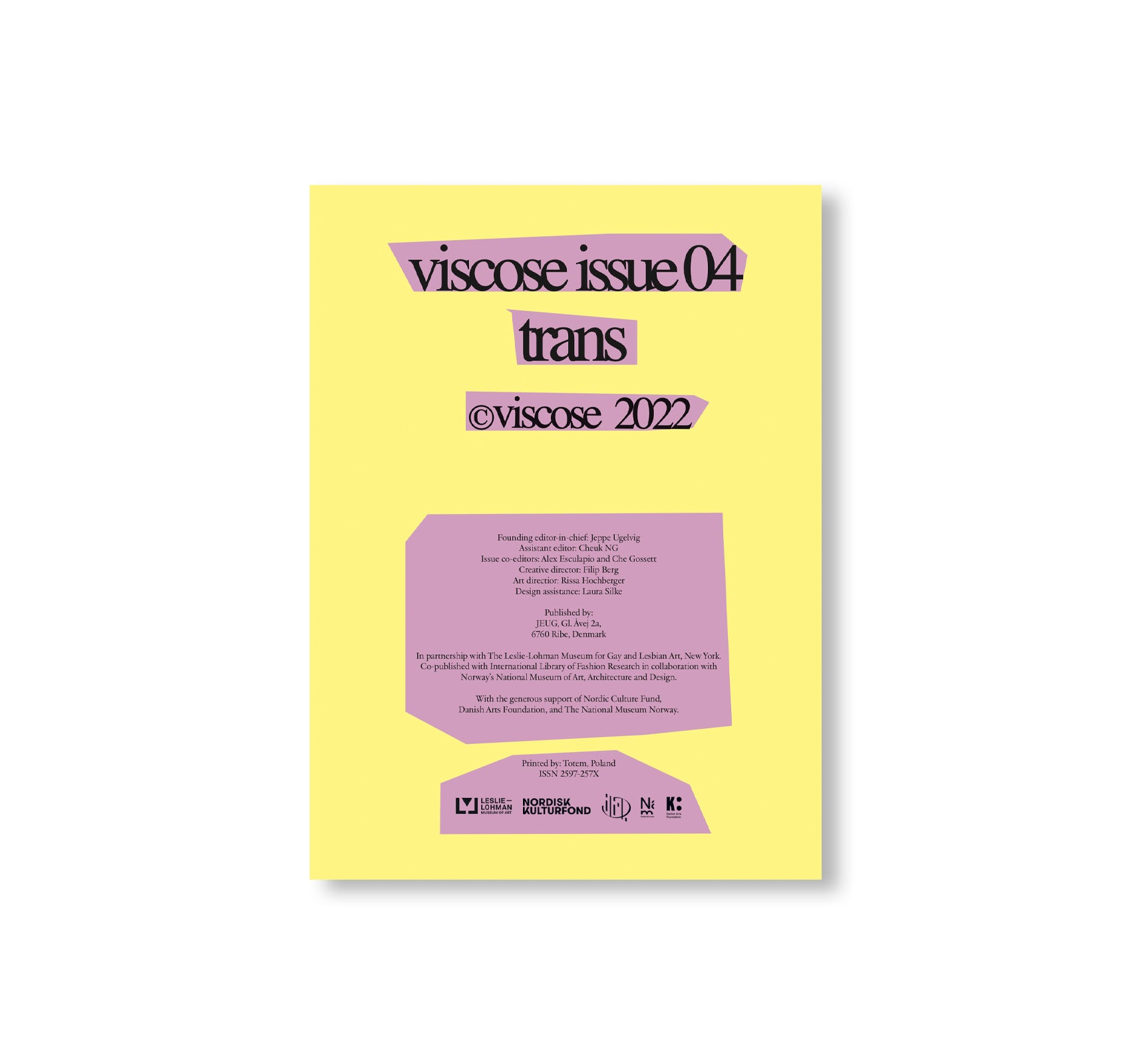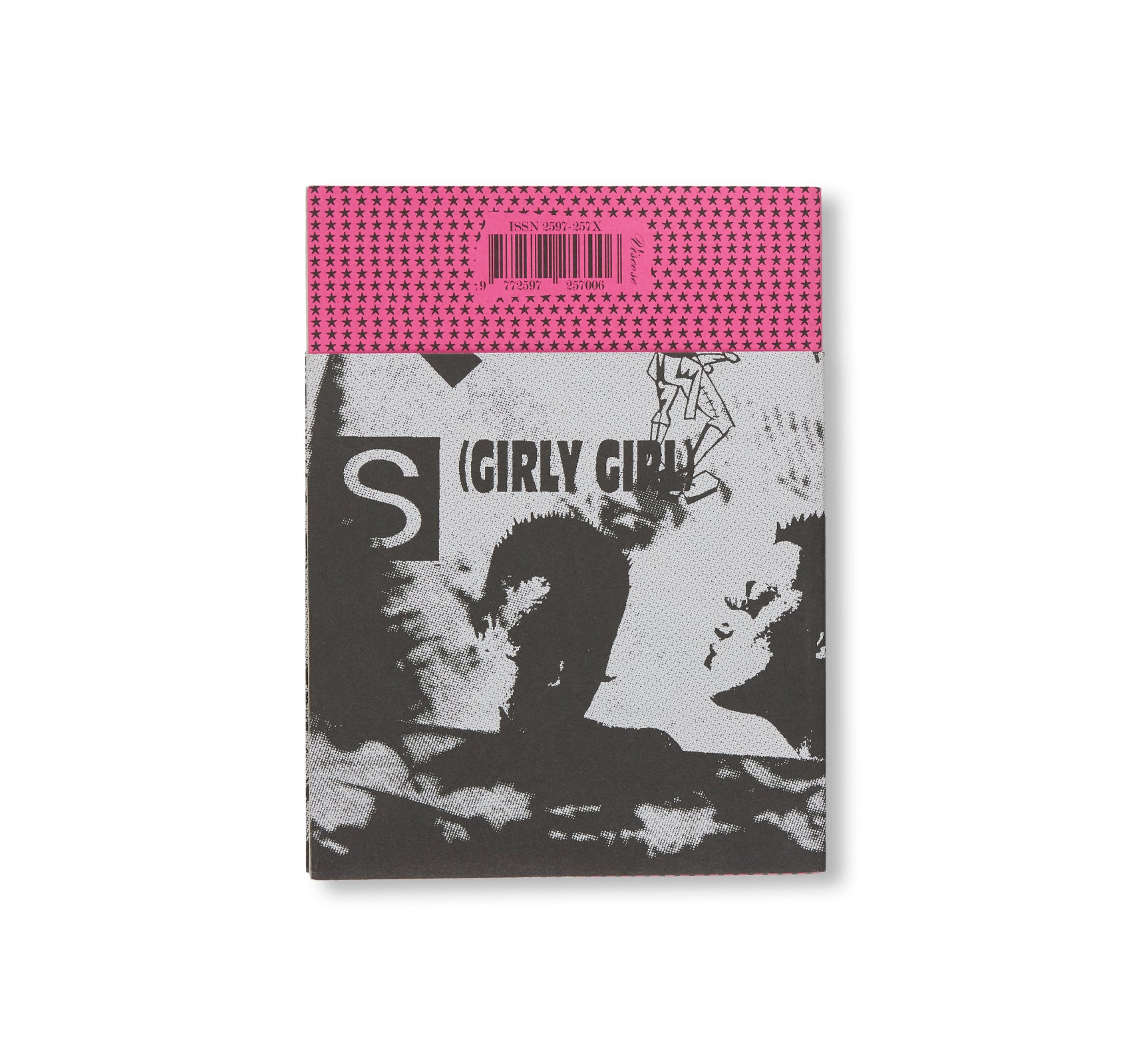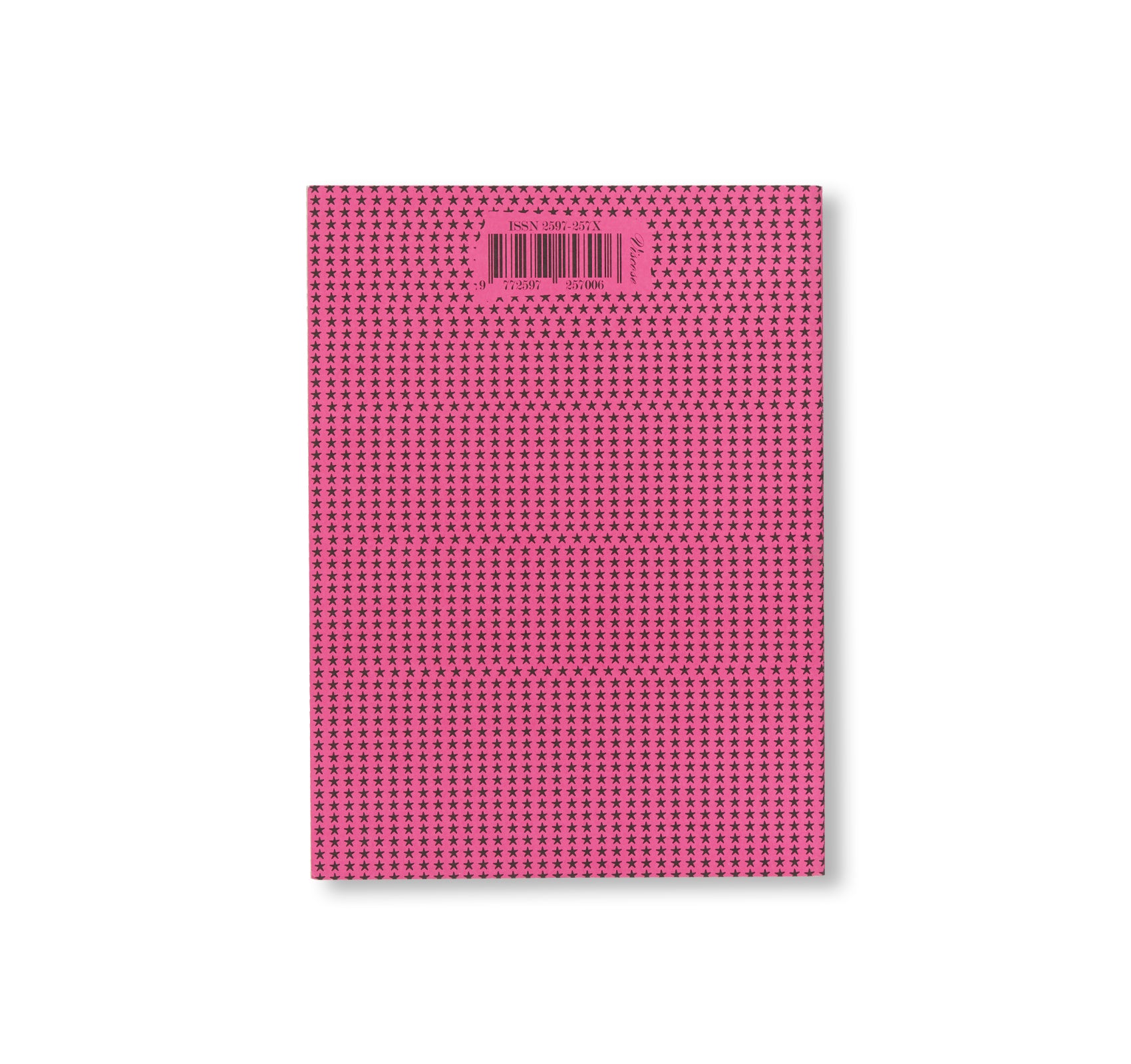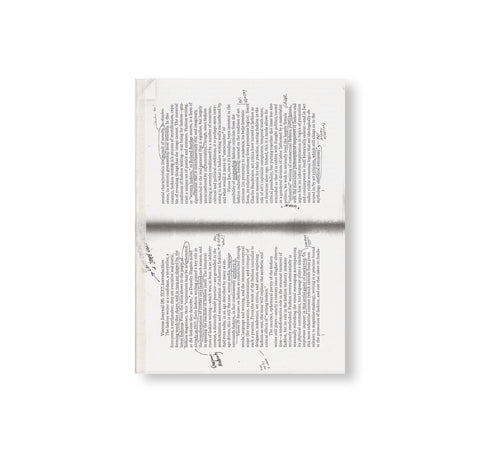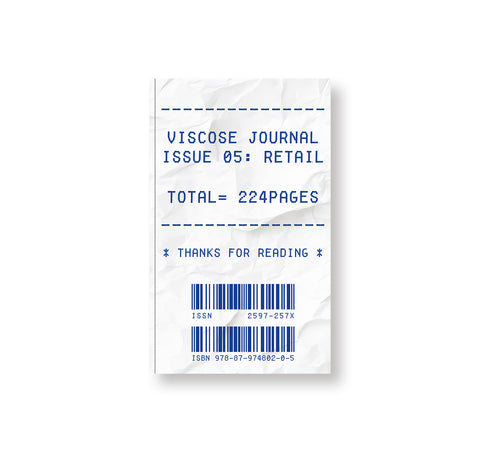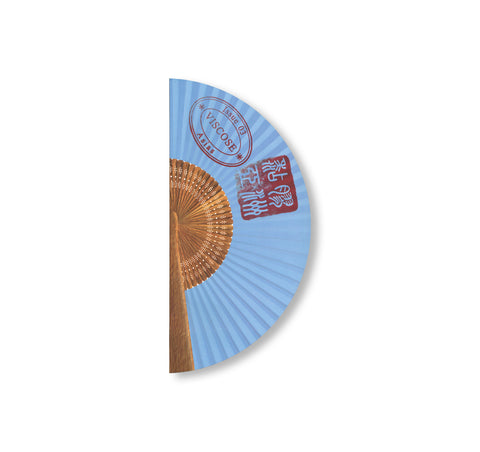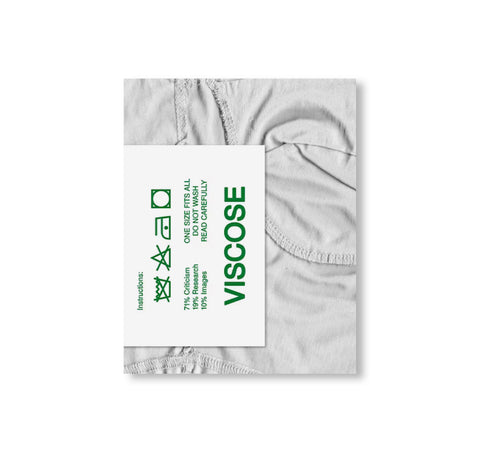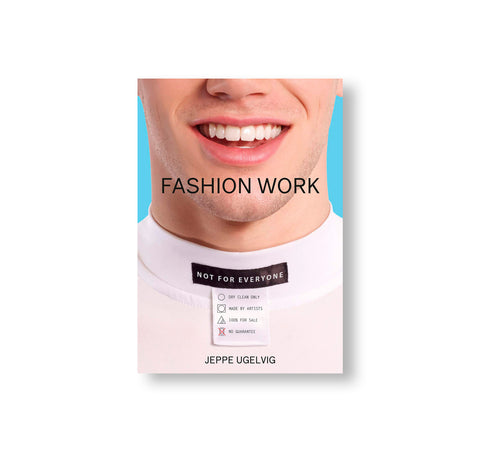VISCOSE JOURNAL ISSUE 04: TRANS
2021年にニューヨークとコペンハーゲンを拠点に始動したファッション批評誌。ファッション・アートスカラーでありキュレーターのイエッペ・ウゲルヴィグ(Jeppe Ugelvig)が編集長を務める。毎号特定のテーマを掲げ不定期に刊行する本誌は、それぞれ異なる本の形式を採用し、ジャンルを超えた思考を提案することで、ファッションにおける研究、制作、また批評の可能性を拡げることに挑んでいる。あらゆる領域、産業、場所の孤立化を拒みつつ、世界中の知的なファッションコミュニティを対象に発信する。また、研究機関や美術館などと共同で研究を進めることで、広告を掲載することなく刊行を続けている。
『Viscose』特別号となる第4号は、トランスジェンダーとファッションの間にあるさまざまな関係性を探求し、批評する。本書が問うのは相反する2つの質問である。一つは「トランスジェンダーにおけるファッション論とは何か」、そしてもう一つは「ファッションにおけるトランスジェンダー論とは何か」。ファッションビジネスの分野でその歴史と批評を研究し教鞭も取るアレックス・エスクラーピオ(Alex Esculapio)、クィア&トランス研究や美学理論、廃止論思想、ブラックネス研究を専門とするブラック・ノンバイナリー批評理論家であるチェ・ゴセット(Che Gossett)ら研究者を共同編集者として迎え、トランスジェンダーの美学と研究とともにファッション学に対し意義のある形で向き合い、ファッションそのものの裏側を形作ったトランスジェンダー史においてほとんど目に留められてなかった記録の発掘を試みる。世界中のトランスジェンダーないしクィアの作家、アーティスト、クリエイターによって書き下ろされたテキストを掲載し、未開拓な概念である「トランスジェンダーの文化的生産性」に対して可能性あふれるジャンルとして取り組んでいる。
この50年の間にトランスジェンダー・ファッション製品が生んだ歴史的あるいは現代的な場面を多数収録。ニューヨーク市を拠点とするデザイナーでありブックメイカーのリッサ・ホックバーガー(Rissa Hochberger)が手がけた本書の表紙は、クィアによる独立系出版の歴史を讃えているようであり、また切り離せばポスターにもできる仕様となっている。
本書は、2022年に「レスリーローマン美術館(Leslie-Lohman Museum of Art)」で開催されたドイツ人アーティスト、ロレンツァ・ベットナー(Lorenza Böttner)による野心的とも形容できる回顧展からインスピレーションを得ている。ベットナーはトランスジェンダーのアーティスト、パフォーマーであり、幼い頃に両腕を切断している。コスチュームやスタイルなどのイディオムやその多才な技術を通じ、性別と身体表現におけるボーダーへと切り込んだ。
トランスジェンダーの人生や表現にとって、ファッションは目新しいものではない。トランスジェンダーの人々が関わっていたかはともかく、むしろファッションにおけるテーマとして繰り返し考えられてきたものである。トランスジェンダーであるということはファッションの枠組みの中では一つの特性であり、現代史を通じて我々の性別に対する解釈をさまざまな方法で形作り、継続し、理解させたシステムなのだ。本書は、ファッション史がどれほどトランスジェンダーの文化的生産性やその美学から学んできたかをもっと広く考慮してもらうべく、哲学的、社会的、あるいは政治的など多様な視点からその系図学を書くという仕事の一歩目となる。
「トランスジェンダーの文化的生産性」とはいまだ不完全な概念であり、ファッション業界におけるトランスジェンダーの人々による様々な貢献だけではなく、現代社会の一現象として、ファッションが生まれるところの中心にトランスジェンダーがあったことも考えられるべきである。言い換えれば、トランスジェンダーが彼ら自身の手で自分の世界を作り出すための型を構成するものが、スタイルやドレスだという事実である。本書は、「トランスジェンダー」を名詞ではなく動詞としてアプローチすることによって、トランスジェンダー的感性の思索的、歴史的価値を高めている。この感性が、ファッション界と結びつき、参加し、活性化させる現象である。それは、着飾った肉体を創るものから壊すもの、イメージを消費するものからイメージそのものになるもの、服を着るものから作り出すものなのだ。トランスジェンダーをただ曖昧なコンセプトとして扱うよりも、知恵を生むためのポジショナリティ、あるいは批評的視点として有効に活用すべきであろう。
ニューヨークの「レスリーローマン美術館(Leslie-Lohman Museum of Art)による協力、ノルウェー、オスロの「ファッションリサーチ国際図書館(International Library of Fashion Research)」と「オスロ国立美術館(Nasjonalmuseet for kunst, arkitektur og design)」による提携、「ジョン・バートン・ハーター財団(John Burton Harter Foundation)」、「デンマーク芸術財団(Danish Arts Foundation)」、「ノルディック・カルチャー・ファンド(Nordic Culture Fund)」の援助により刊行された。
※ 本書は印刷や製本、紙の性質上、細かなスレなど軽度のダメージがある可能性がございます。予めご了承ください。
This special issue of Viscose critically explores the numerous relationships between transness and fashion. This issue sets out to ask two ambivalent questions: what is a fashion theory of transness, and what might a trans theory of fashion be? Co-edited with scholars Alex Esculapio and Che Gossett, Viscose 04 productively confronts fashion studies with trans aesthetics and trans studies, and attempts to excavate the largely invisible archives of trans history that form the underside of fashion itself. The issue features new contributions by a global cast of trans and queer writers, artists, and creatives, responding to the porous notion of “trans cultural production” as a genre full of potentiality. The issue features a wealth of archival and contemporary moments of trans fashion production spanning 50 years. The cover, designed by NYC-based designer and bookmaker Rissa Hochberger, celebrates histories of independent queer publishing, and doubles as a detachable poster. The inspiration of the issue was the ambitious retrospective of German artist Lorenza Böttner at the Leslie-Lohman Museum of Art in 2022. Böttner, a trans artist and performer who had both arms amputated as a child, celebrated the edges of gender and bodily expression through her multifaceted practice, often through idioms of costume and style.
Fashion is no new context to trans lives and trans expression; inversely, transness continues to recur as a theme in fashion, with or without the participation of trans people. Transgender-ing maintains a specificity in the framework of fashion, a system that in many ways has registered, maintained and constructed our understanding of gender throughout modern history. We’re interested in entertaining how a history of fashion is informed by trans cultural production and trans aesthetics more widely, and in beginning the work to write such genealogies from a variety of philosophical, social, and political perspectives.
As a porous notion, “trans cultural production” can not only entail the many ways in which trans people have contributed to the fashion industries, but also include how transness has been central in producing fashion as a phenomenon of modern society. In other words, how style and dress constitute forms of trans world-making in their own right. By approaching ‘trans-’ not as a noun but as a verb, we hope to develop speculative and historical accounts of a trans sensibility as it relates to, participates in, and animates fashion as a phenomenon—from constructing to deconstructing fashioned bodies; from consuming images to becoming image; from wearing clothes to producing clothes. Rather than turning transness into an abstract concept, we hope to productively use it as a critical perspective and a positionality for knowledge production.
We would like to thank all the contributors for gathering around this very special project, which was made possible thanks to the close collaboration and trust of the Leslie-Lohman Museum of Art in New York City. Viscose is published in partnership with International Fashion Research Library and Nasjonalmuseet in Oslo, Norway. With support from Danish Arts Foundation and Nordic Culture Fund.
